Revised lines in the drama version
❻ Pair of butterflies flying together
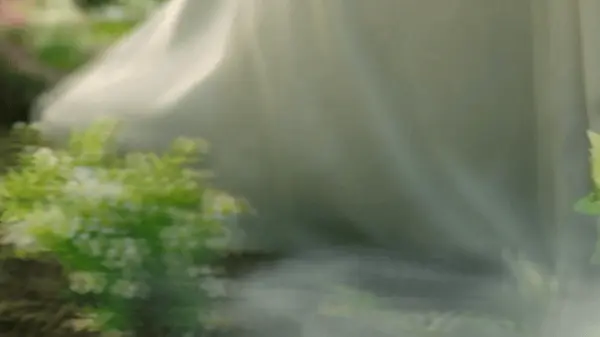
Walking with butterflies
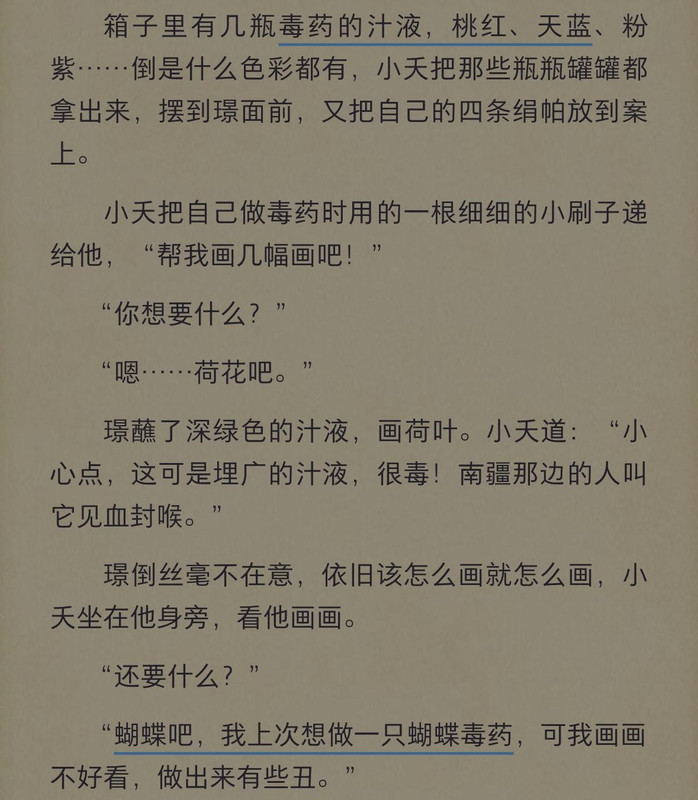
Butterfly poison: peach pink (peach blossom color — Xiaoyao), sky blue (ocean color — Xiangliu)
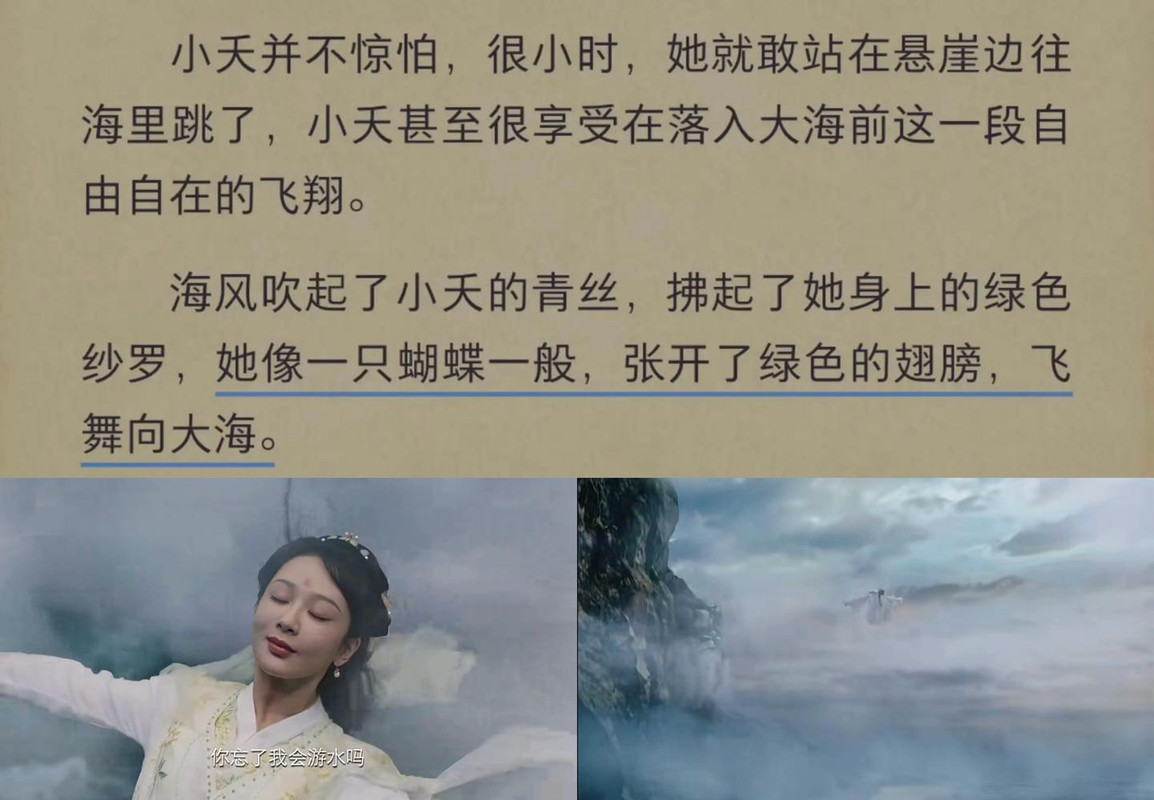
A butterfly
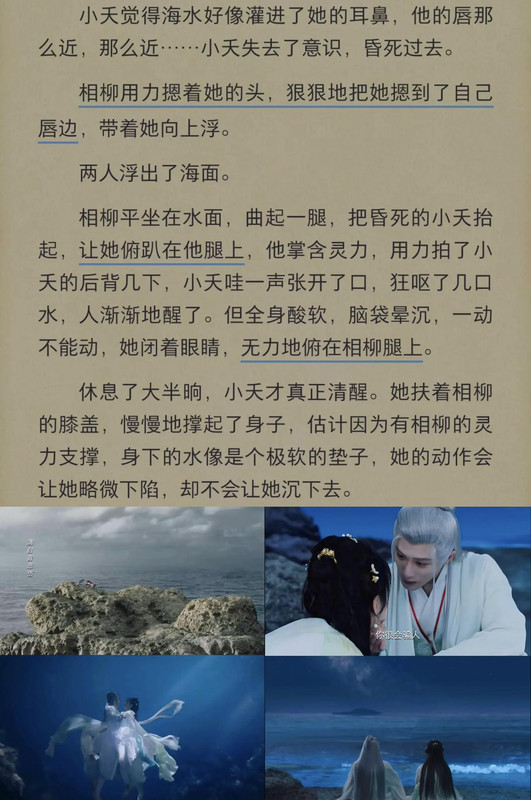
Two butterflies
(In the drama version, Xiaoyao has many butterfly hair accessories, so I won’t attach all the pictures one by one.)
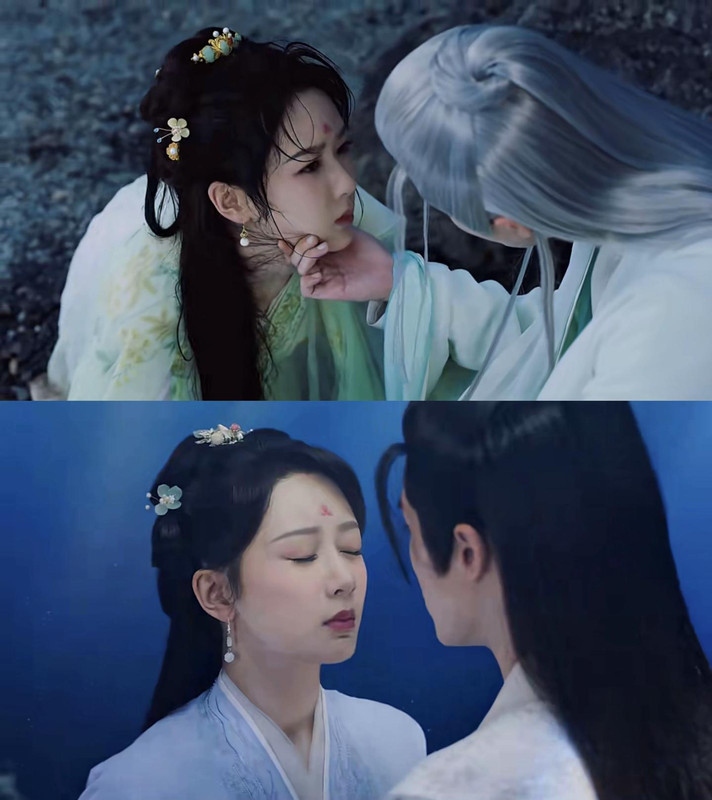
Butterfly hair accessory
❼ Loyal and Righteous (Shennong Rebel Army Arc)
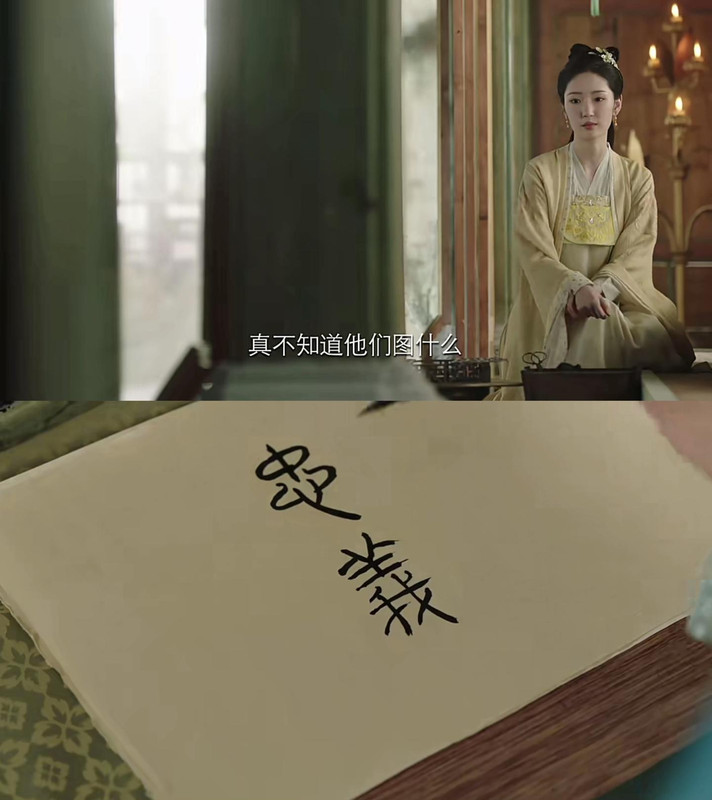 Make Tushan Jing write these two characters...
Make Tushan Jing write these two characters...
① Rather Die Than Submit
Where there is life, there must be death;
An early end is not the fault of fate.
Last night, I was still among the living,
This morning, my name is listed among the dead.
Where has the soul and breath scattered to?
A withered body rests against a hollow tree.
My young child cries, seeking his father,
My loyal friends weep, mourning for me.
Gain and loss are no longer known,
How can right and wrong still be judged?
A thousand autumns and ten thousand years from now,
Who will still care about honor or disgrace?
My only regret in this life:
I never drank my fill of wine.
— Tao Yuanming, "Three Imitated Elegies," No. 1

Theme
["Three Elegiac Poems" were written by Tao Yuanming in his later years, at the age of 63. He passed away two months after composing them. In these poems, the poet imagines the situation of his friends and family after his death, expressing his views on life and death while also comforting his loved ones, telling them not to grieve too deeply.
The first poem describes the situation after his body is laid to rest, with his children and friends weeping over him. With a broad-minded attitude, the poet states that after death, honor and disgrace no longer matter. His only regret is that he didn’t get to drink enough wine before he died.]
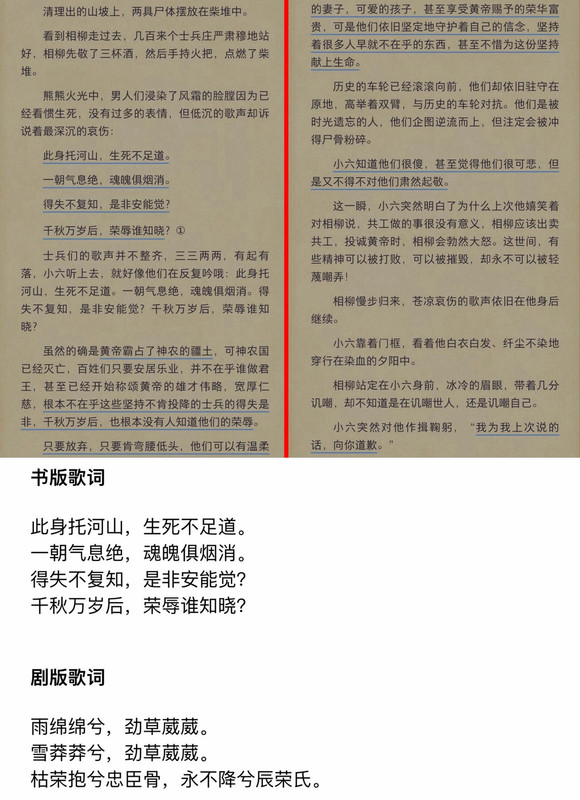
Lyrics from the novel version:
This body is entrusted to rivers and mountains; life and death matter not.
Once breath ceases, the soul disperses like smoke.
No longer knowing gain or loss, how could one discern right from wrong?
A thousand years and ten thousand more—who would still remember honor or shame?
Lyrics from the drama version:
The rain falls endlessly, yet the resilient grass flourishes.
Snow covers the land, yet the resilient grass thrives.
Through withering and blooming, loyal ministers' bones endure,
Never surrendering to the House of Chenrong
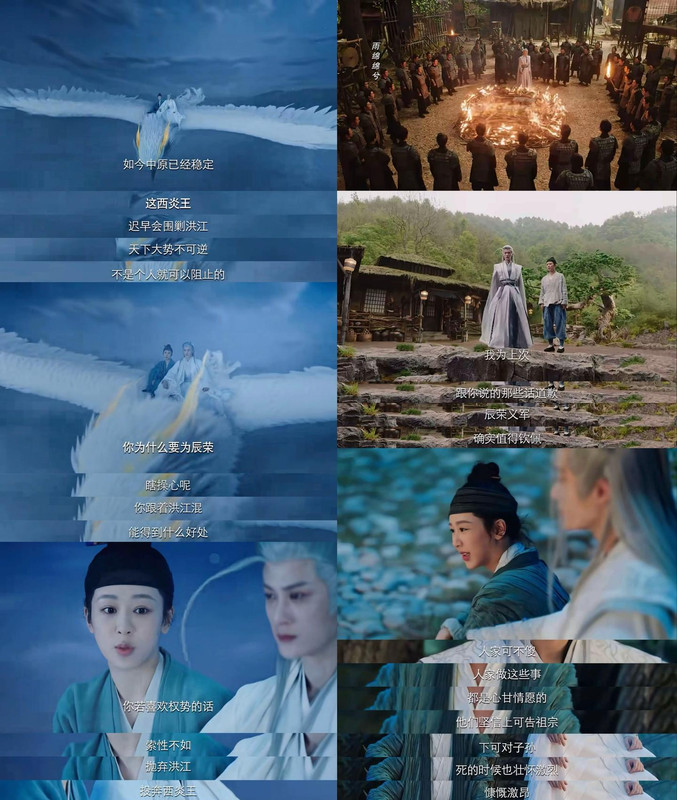
For what purpose?
[The meaning behind the Shennong Rebel Army's perseverance]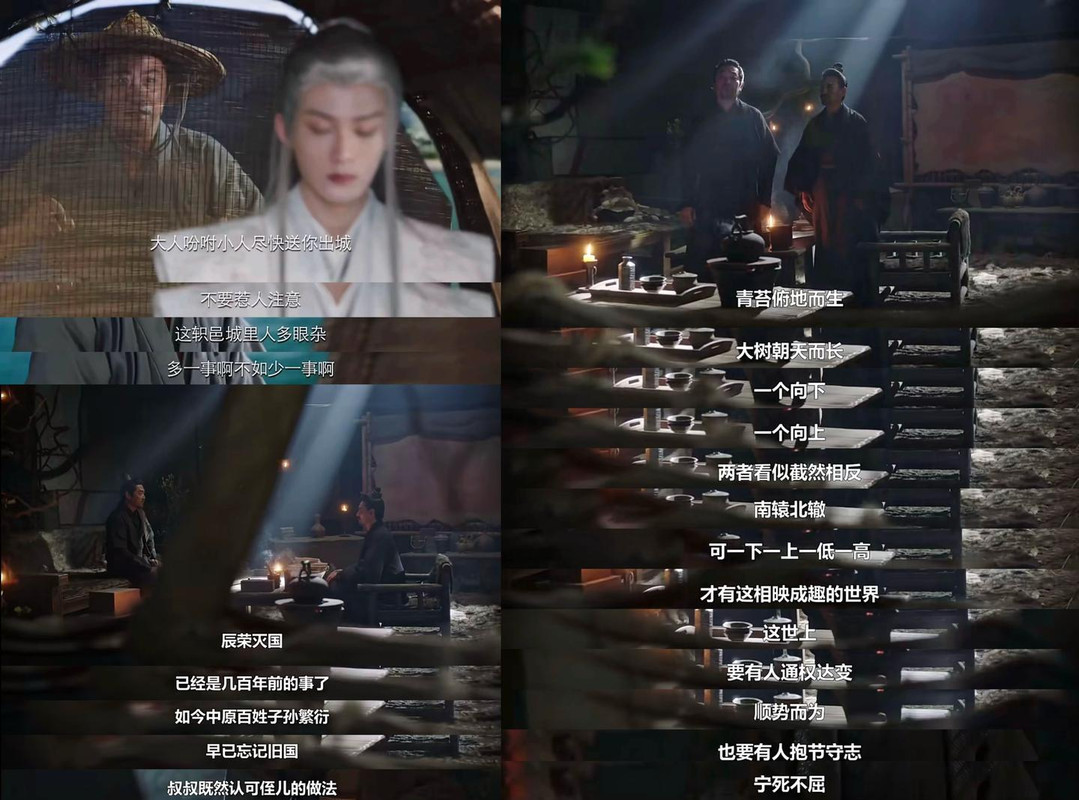
One above, one below — guarding the Central Plains
[New Recruit]: The brave men of the Central Plains, charging forward one after another...
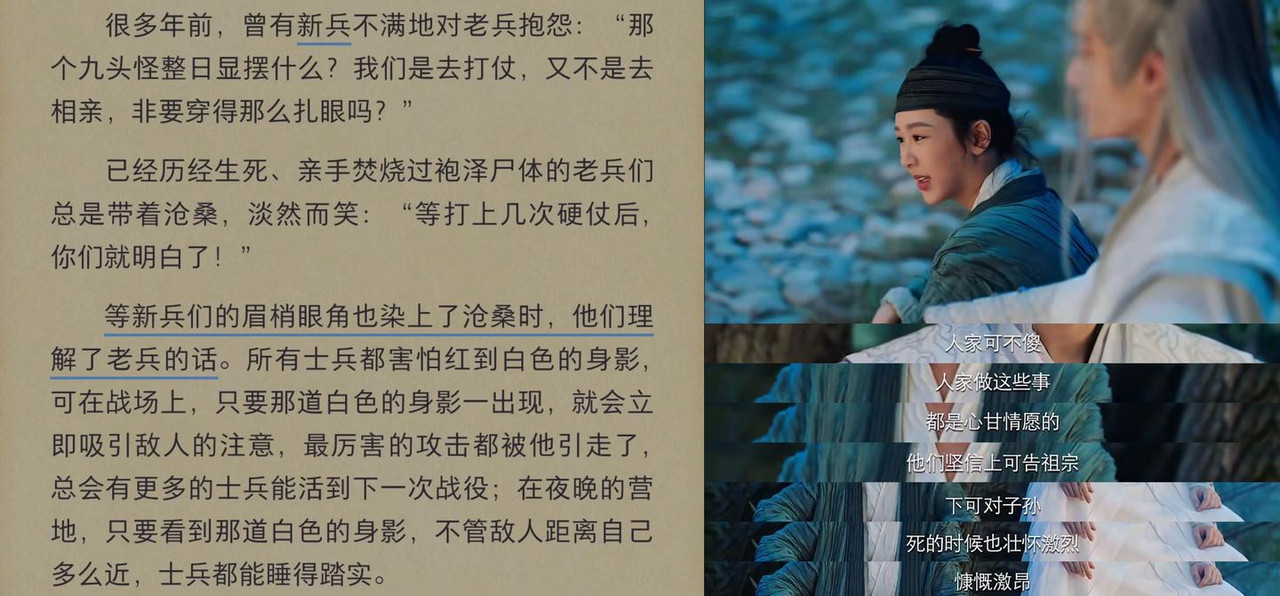
Willingly and wholeheartedly: honoring the ancestors above, protecting the descendants below.
(After Chichen’s death, the BailinClan, left without protection, once again fell into the status of outcasts.)
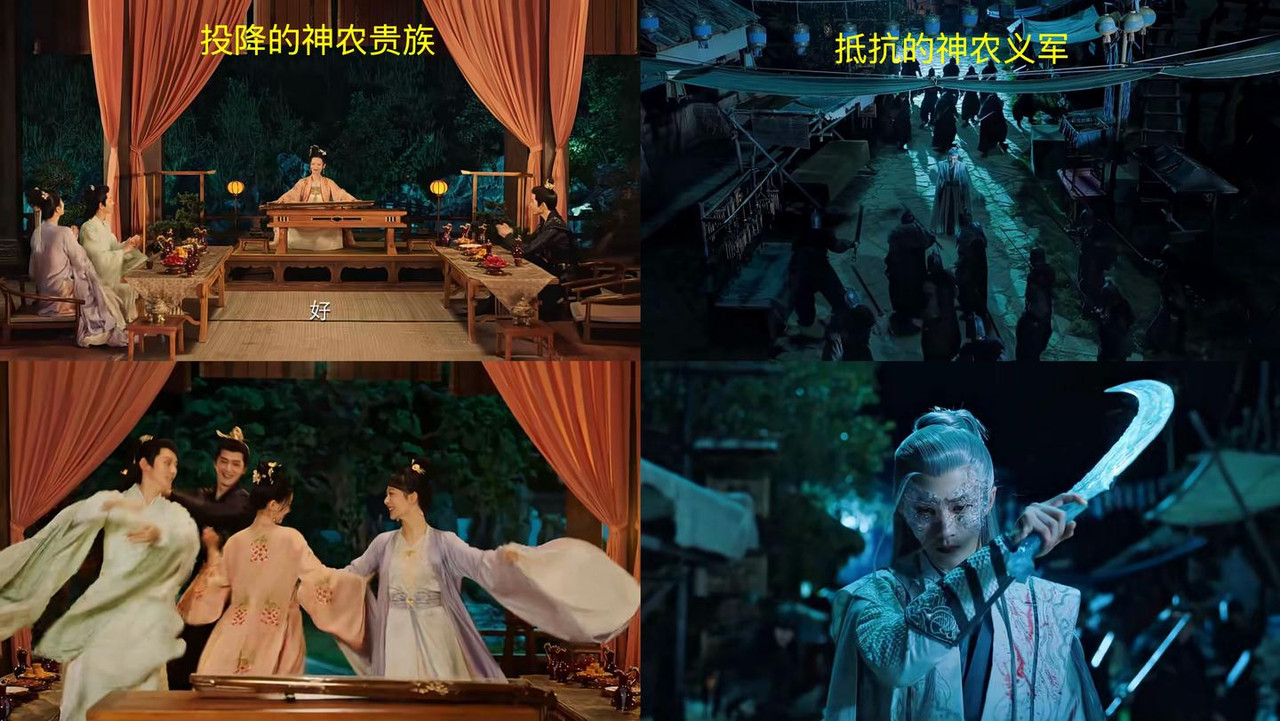
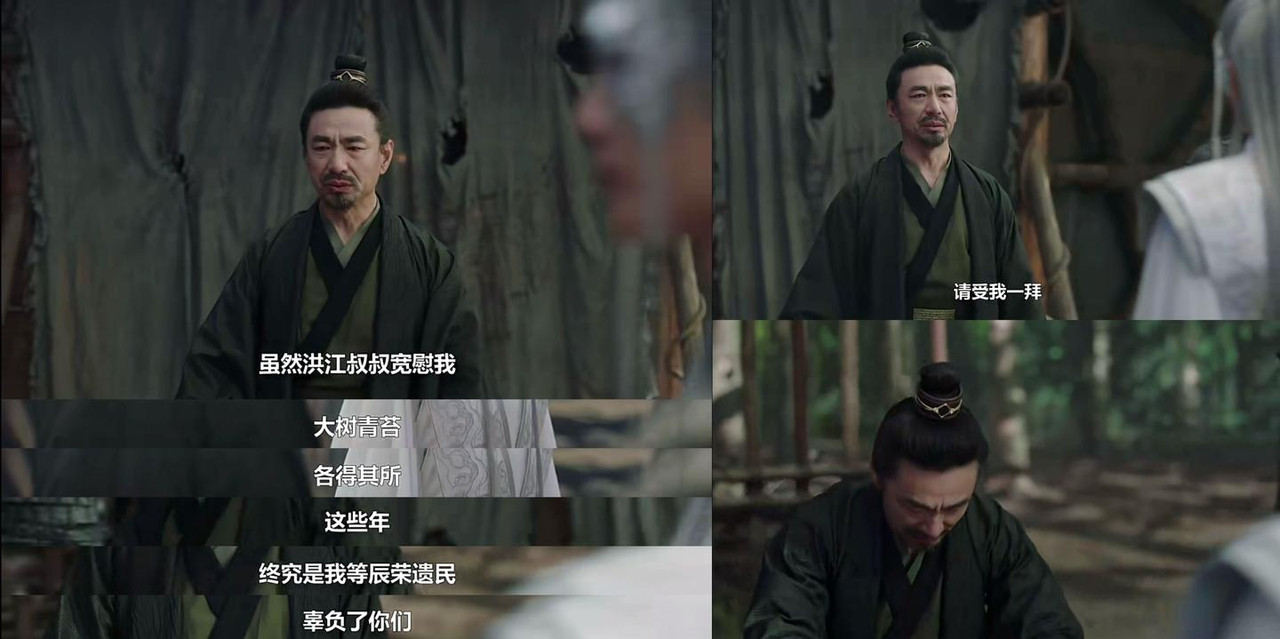
② Sacrificing Life for Righteousness
"Life is what I desire, and so is righteousness. But if I cannot have both, I will give up life and choose righteousness instead."
— Mencius, Warring States Period (Mencius · Gaozi I · Fish, I Desire Also)

"To sacrifice one's life for righteousness"
[Idiomatic Meaning :Since ancient times, China has been a nation that cherishes life, but even more so a nation that upholds integrity and moral principles. Throughout history, there have been countless individuals who sacrificed their lives for the greater good of the nation and for righteousness. These individuals became the spiritual soul and moral role models of the Chinese people, admired and respected by generations.
Wen Tianxiang once said: “Since ancient times, who has ever lived forever? Let my loyal heart shine through the annals of history.” Lin Zexu also stated: “If it benefits the country, I will give my life without hesitation—how can one choose based on personal gain or loss?”
At times, choosing to live dishonorably and choosing to die for righteousness are two vastly different paths.
Those who choose to survive through disgrace may live a lifetime of suffocation and regret; their words are submissive, their actions deceitful, and the reputation they leave behind is tainted and shameful.
On the other hand, those who choose to abandon life in pursuit of great virtue and justice possess noble hearts, radiant minds, honorable actions, and names that shine throughout the ages.]

Loyalty and devotion to the country.
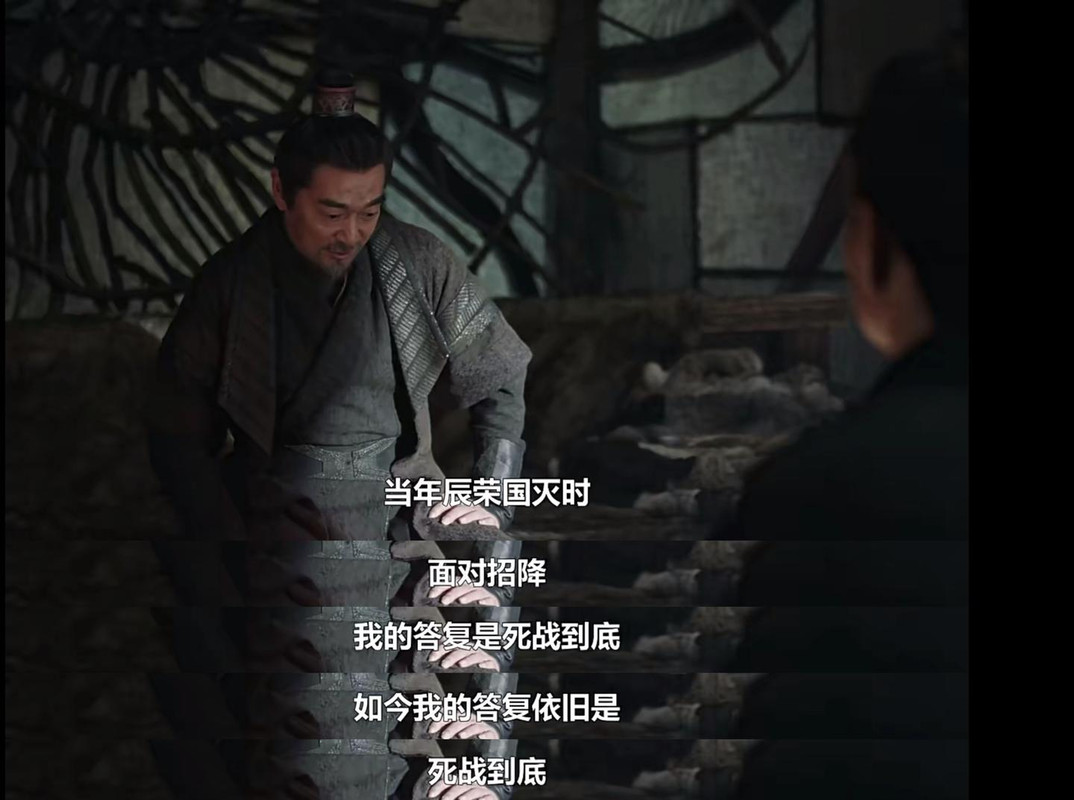
Fight to the death and sacrifice oneself for the country.
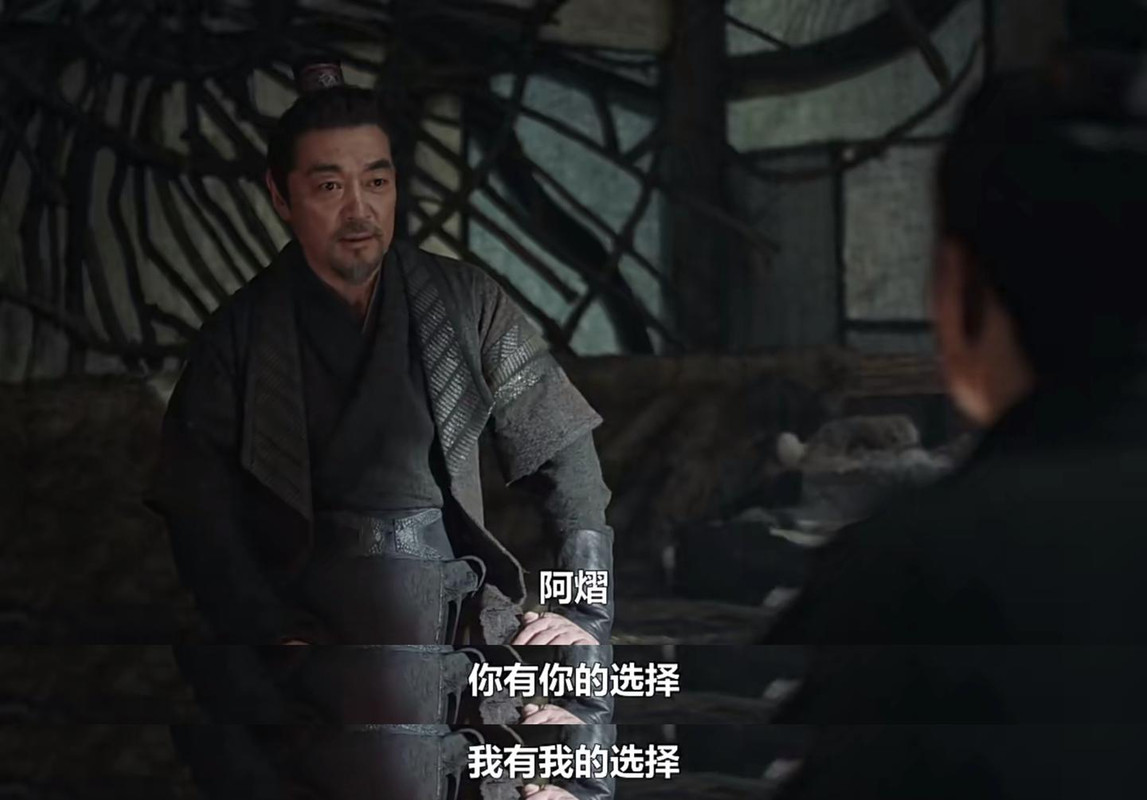
Different Choices: Clinging to Life in Shame vs. Sacrificing Life for Righteousness
③ Even if there are millions of people, I will still go forward
In the past, Zengzi said to Zixiang:
"Do you admire courage? I once heard of true bravery from the Master:
If, upon self-examination, I find no fault, then even facing someone in coarse clothes, I shall not be afraid;
But if I have examined myself and found no guilt, then even if millions stand before me, I will go forward without fear."
— Mencius, Gongsun Chou I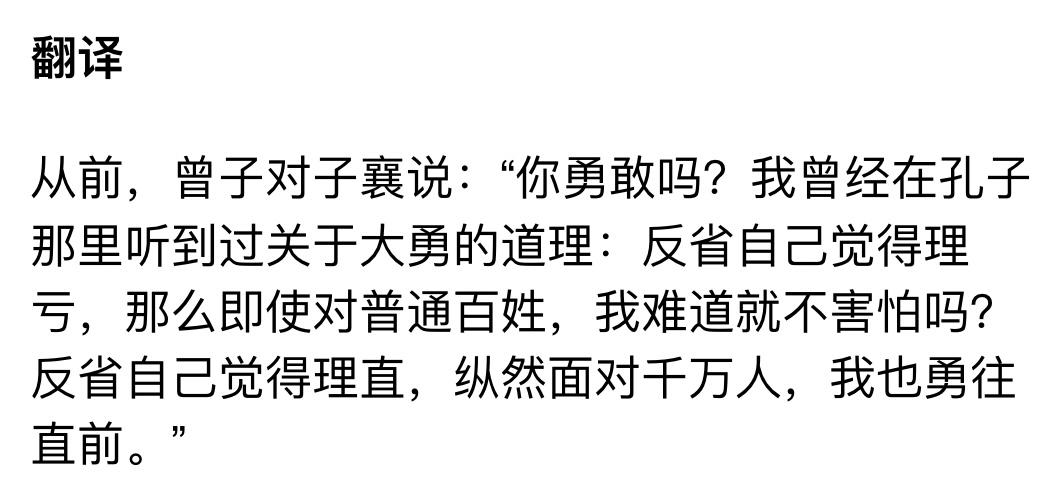
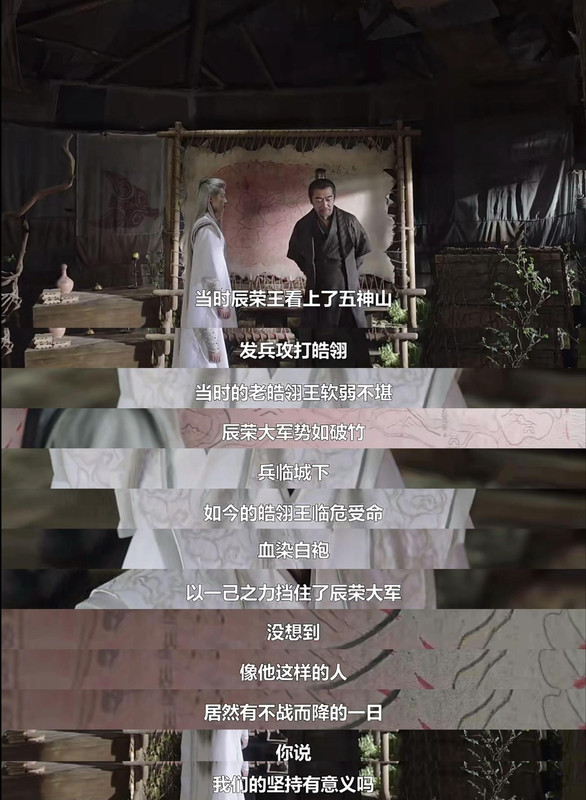
Shao Hao surrendered without a fight—unthinkable.
Even when facing a million men, I will still press forward without hesitation.

④ Wealth and honor cannot corrupt
Jing Chun said: “Aren’t Gongsun Yan and Zhang Yi truly great men? With one outburst of anger, the feudal lords were terrified; when they were at peace, the whole world was calm.”
Mencius replied: “How can they be considered great men? Have you not studied propriety? A man dons his cap at his father's command; a woman marries at her mother's instruction. When the bride is sent off, her mother warns her: ‘When you arrive at your husband's home, be respectful and cautious. Do not disobey your husband!’ Making obedience the central principle is the way of a wife.
A true gentleman, however, resides in the vastness of the world, stands in a righteous position, and walks the grand path of righteousness. If he achieves success, he leads the people along that path; if he fails, he still follows it alone. Wealth and honor cannot corrupt him, poverty and hardship cannot sway him, power and force cannot bend him. This is what is called a true gentleman.”
— Mencius · Teng Wen Gong II
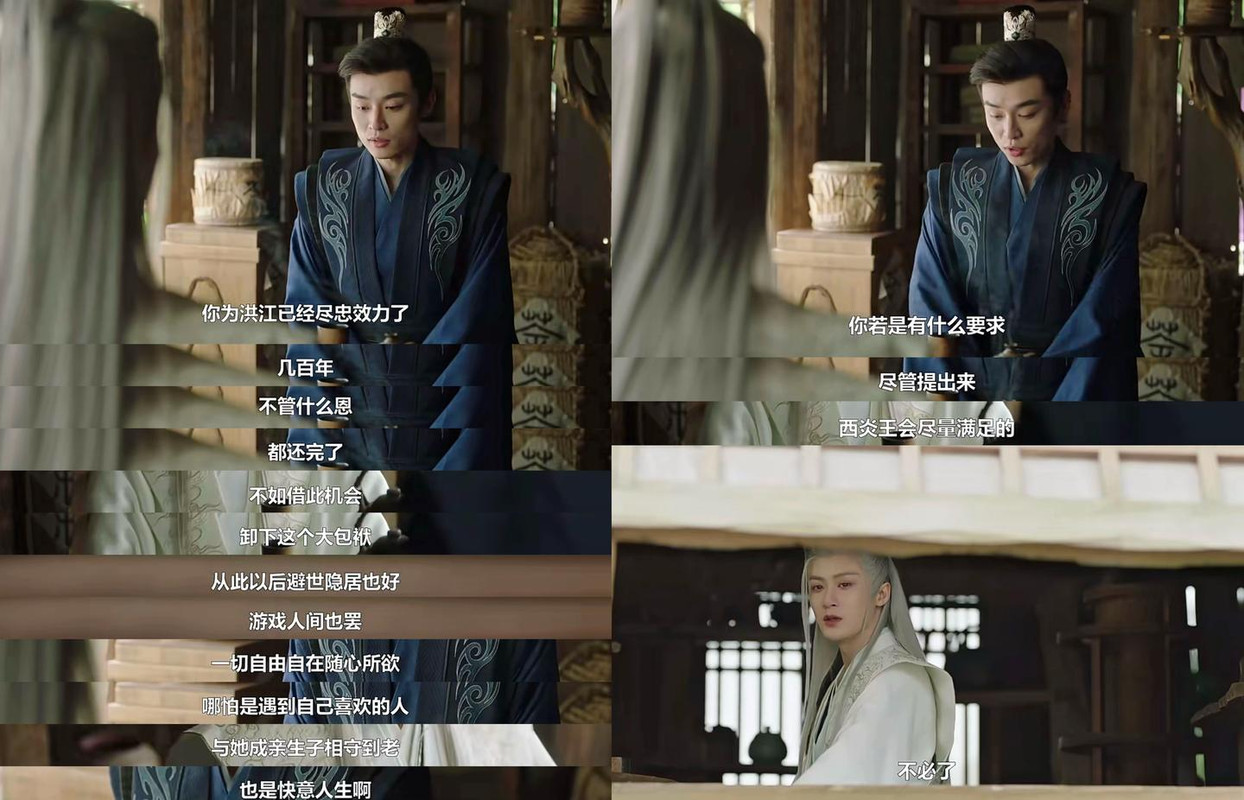
"One's morals should not be corrupted by wealth and rank." or "Wealth and honor cannot lead one astray."
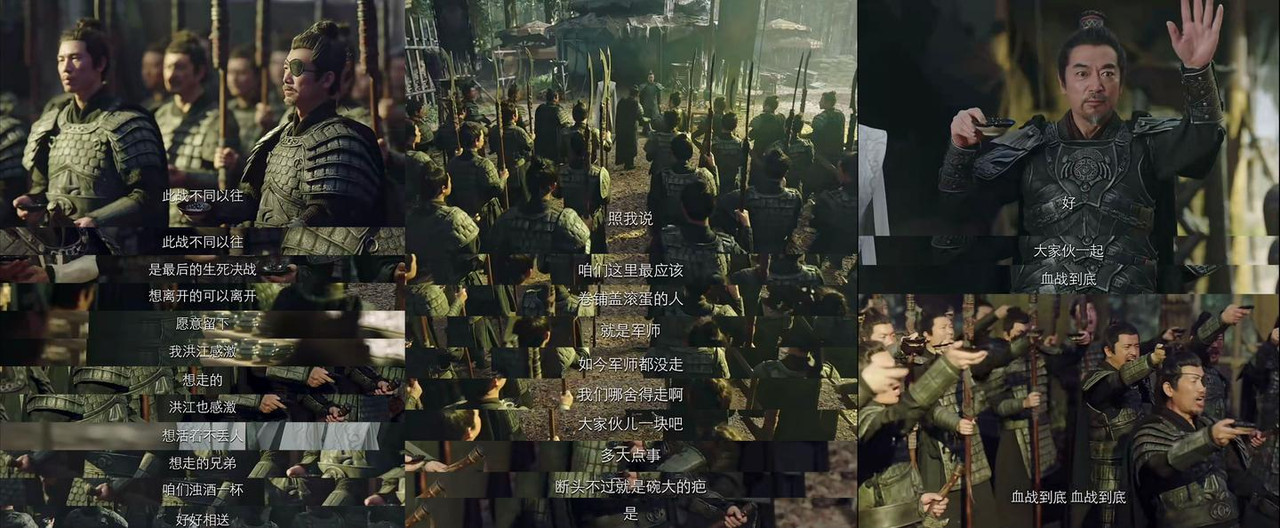
"Poverty and low status cannot shake one's principles."
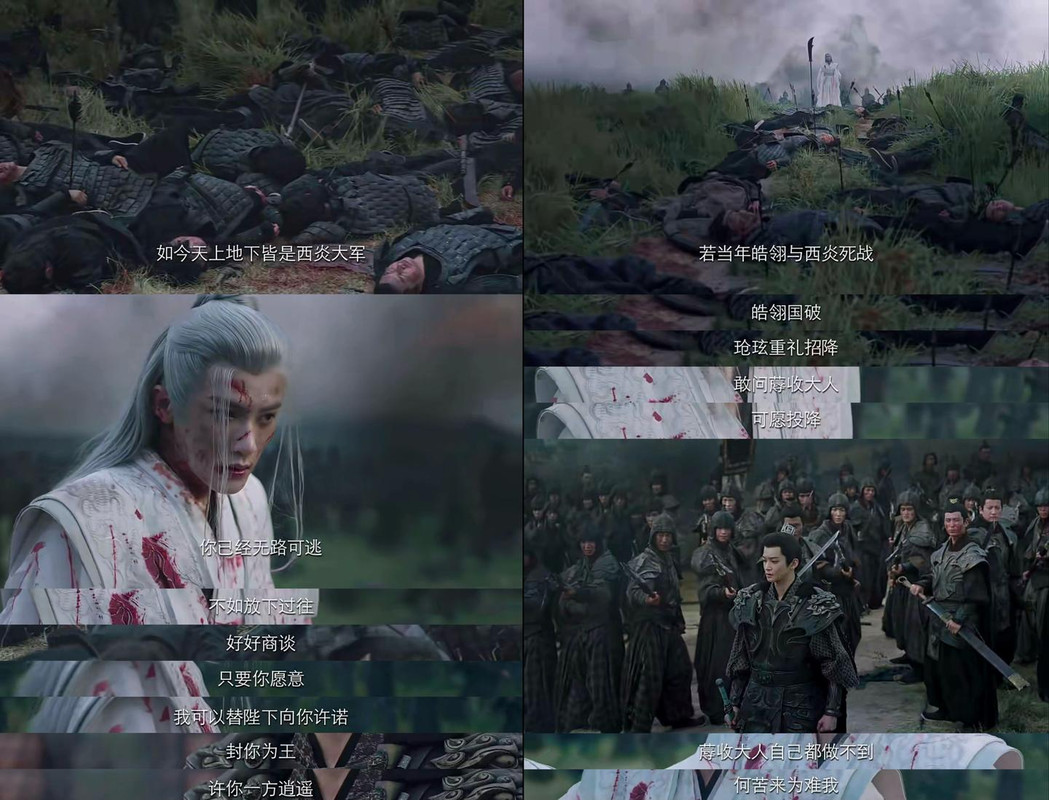
Power and force cannot make him yield — this is what is called a true man.
⑤ 士可杀不可辱
A scholar may be killed, but must not be humiliated.
"儒者可亲而不可劫也,可近而不可迫也。可杀而不可辱也。"
"A Confucian is approachable but cannot be coerced, can be close yet not forced. He may be killed, but he must not be humiliated."
— The Book of Rites · Conduct of the Scholar (Liji · Ruxing)
◐ An Alternate Fan-Made Ending for the Shennong Rebel Army
(This is purely my imagination — please don’t take it seriously ❌ Just for fun!)
Blogger's fan-made version
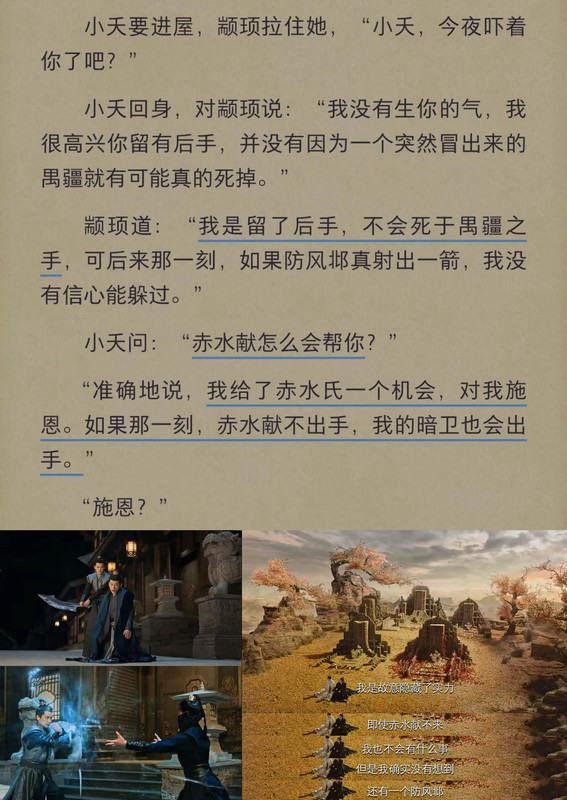
The same tactic: deliberately giving Fenglong a chance to show kindness.
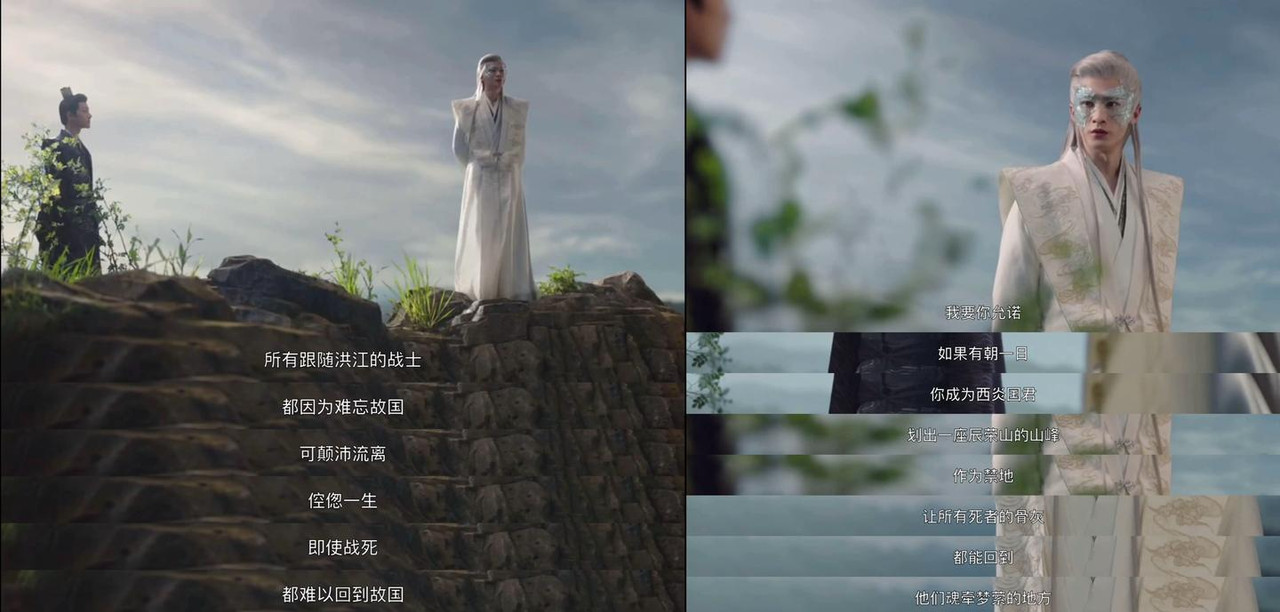
Rescue Xiaoyao, trade Shennong Mountain's Liangwang Peak, and let the righteous army "return home."
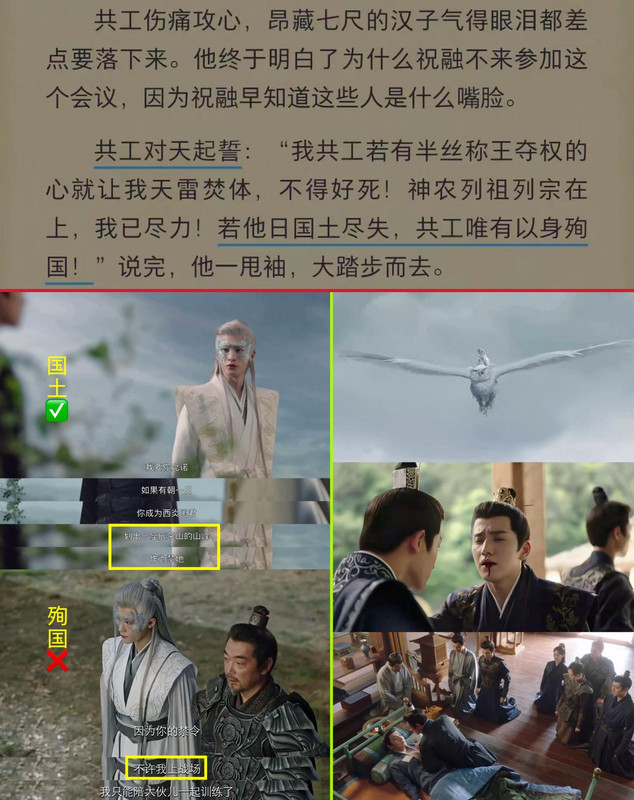
Kill Fenglong, trade to let the righteous army “return home alive.”
(Just like how Maoqiu was sent away before the final battle, that’s exactly how Hongjiang and the righteous army were sent off...)
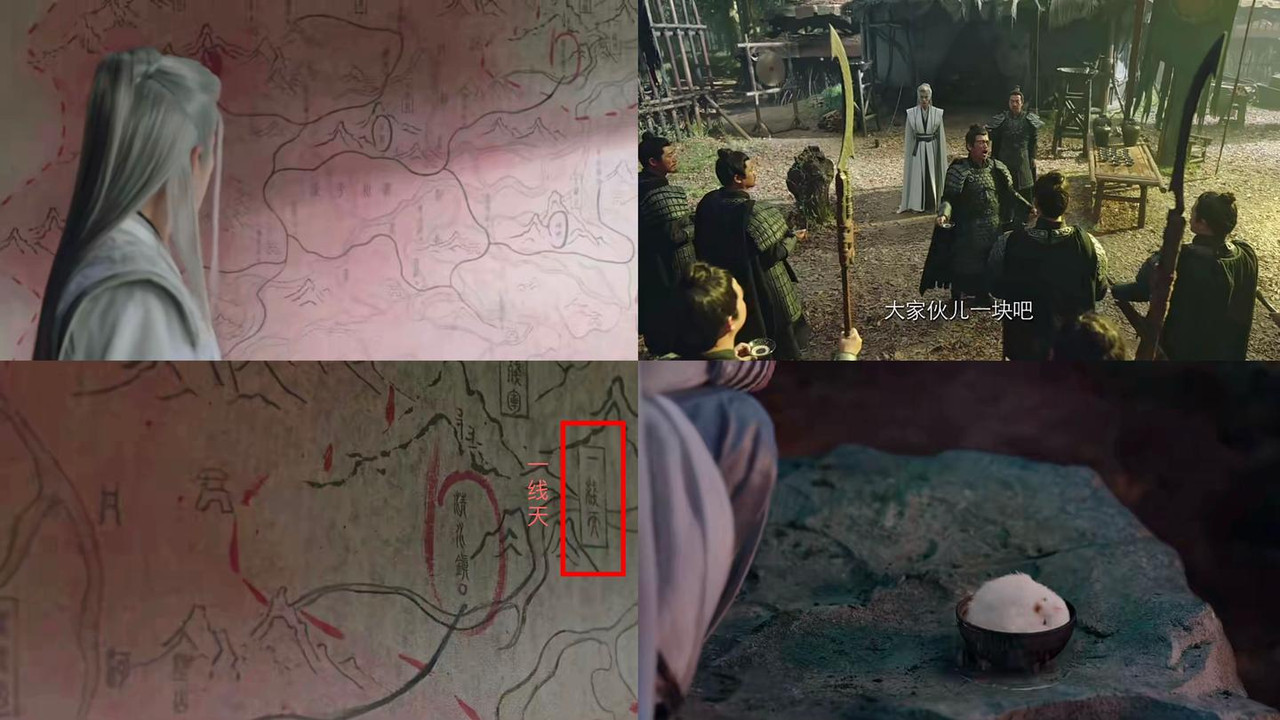
Search for "Yixiantian" (literally: "a sliver of sky" — often refers to a narrow gap in mountains or a slim chance of survival).
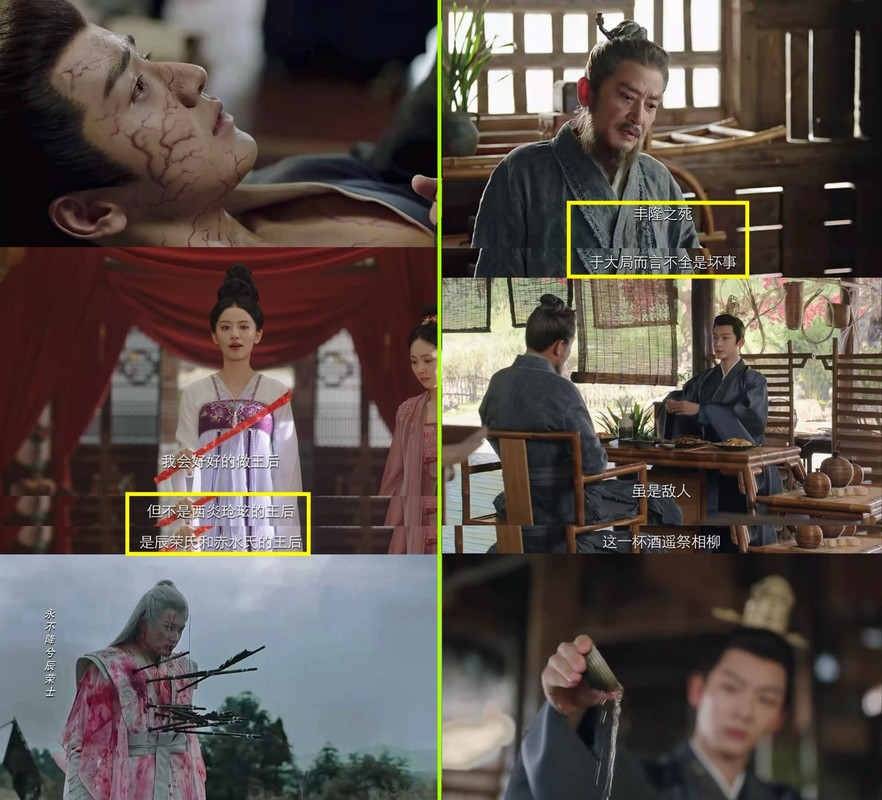
Once Fenglong dies, Xiangliu is destined to die as well... Xiangliu uses his own death in exchange for the survival of the righteous army.
[This is what's called the truth.]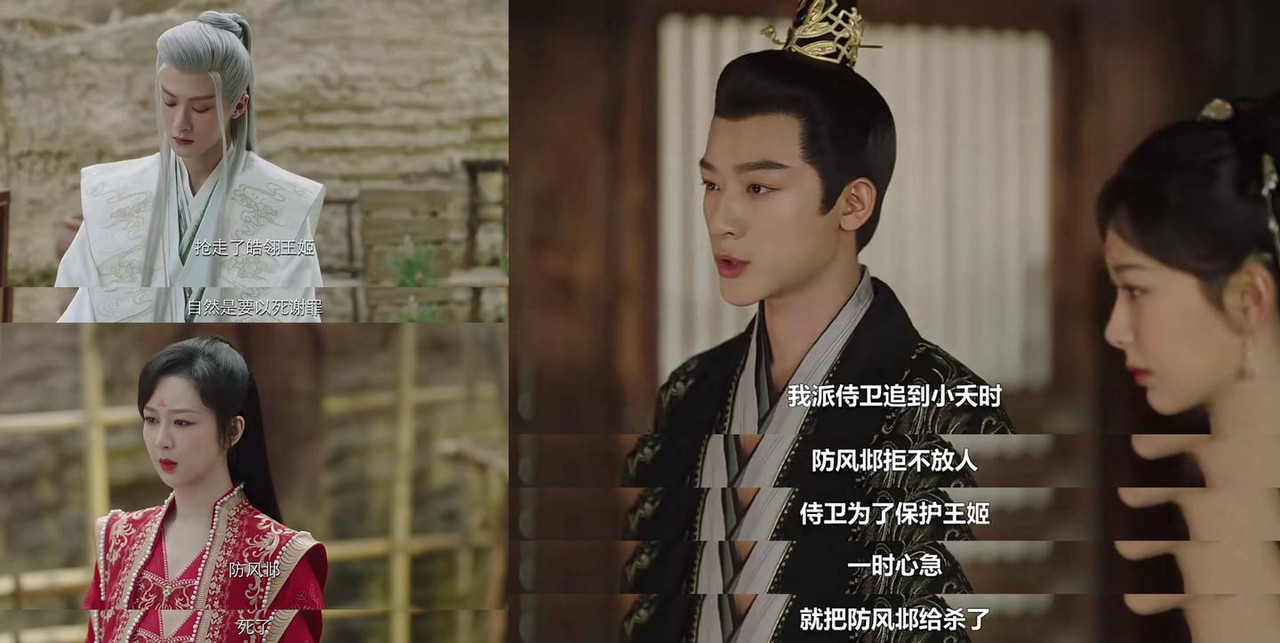 “The truth” is merely a word from cangxuan’s mouth… (no evidence needed)
“The truth” is merely a word from cangxuan’s mouth… (no evidence needed)
What Xiangliu seeks: unification of the world, Hongjiang’s survival, the righteous army’s return home, and staying true to both the people and to lovers
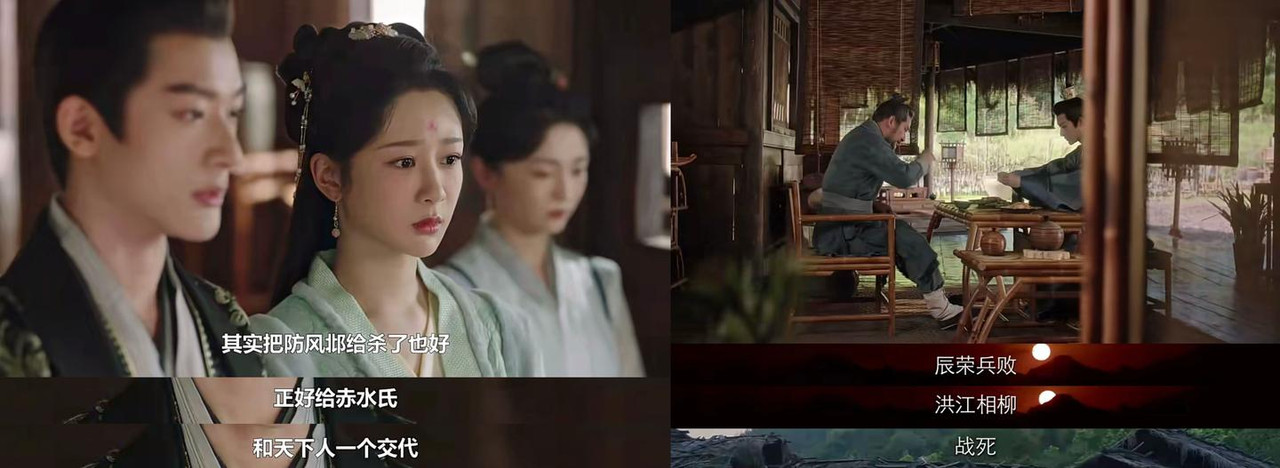
“The truth”
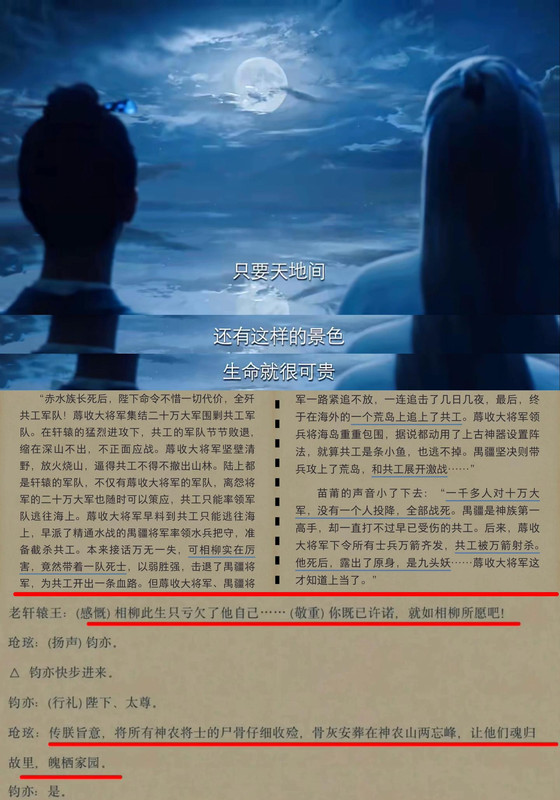
Xiangliu led the death warriors to die in battle, giving an explanation to Chishui and the world. Cangxuan promised to let the righteous army “return home.”
“The truth” was just a sentence from cangxuan’s mouth...
Xiangliu believed that life was precious (the righteous army was loyal and patriotic, sacrificing their lives for righteousness—they shouldn’t have ended up like this. Xiangliu used his own life to carve out a path home for them).
Summary: 9 lives = 3 for Xiaoyao + 6 for the righteous army.
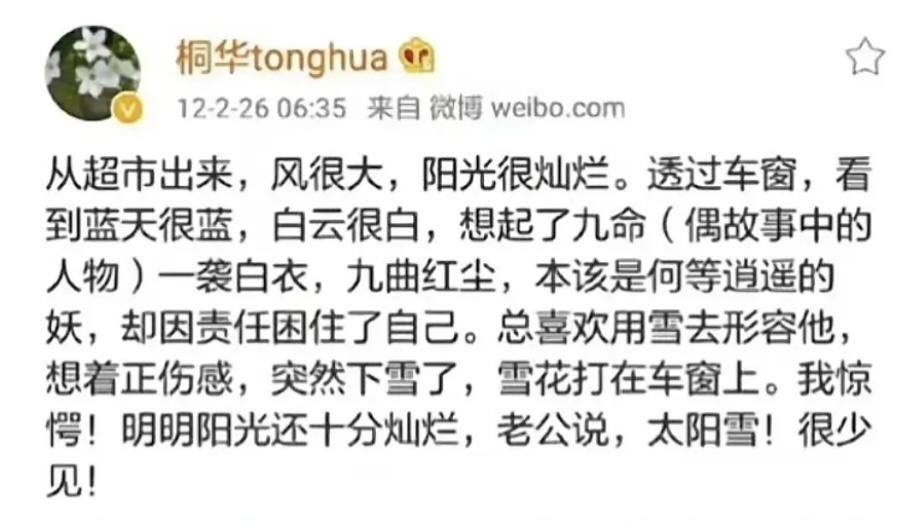
◐The Four Great Warriors of Shennong
After King Yuwang of Shennong was killed, the four great warriors of Shennong—Chi Chen (Chiyou), Yanzhuo (Zhurong), Houtu, and Hongjiang (Gonggong)—each acted independently to resist the Xuanyuan forces.
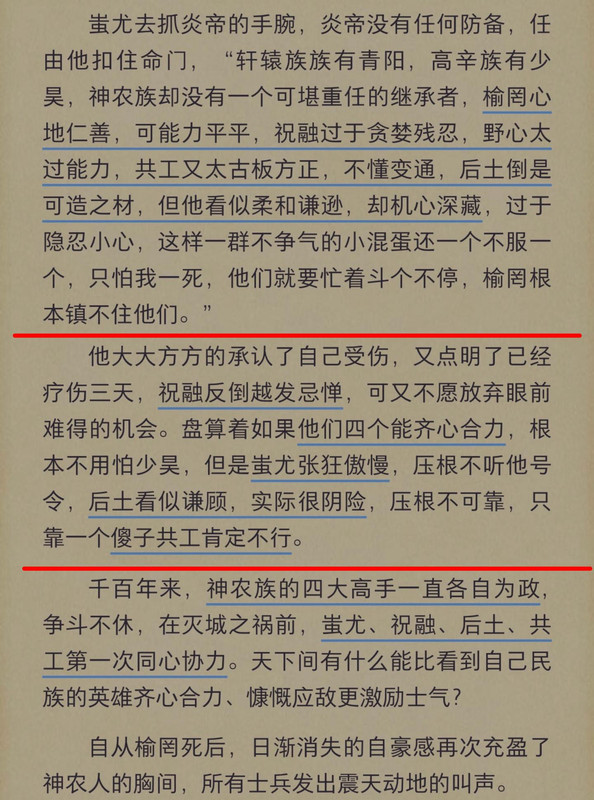
Personalities of the Individuals
【According to the Timeline】
1️⃣ Houtu Surrenders
Surrendered with her troops.
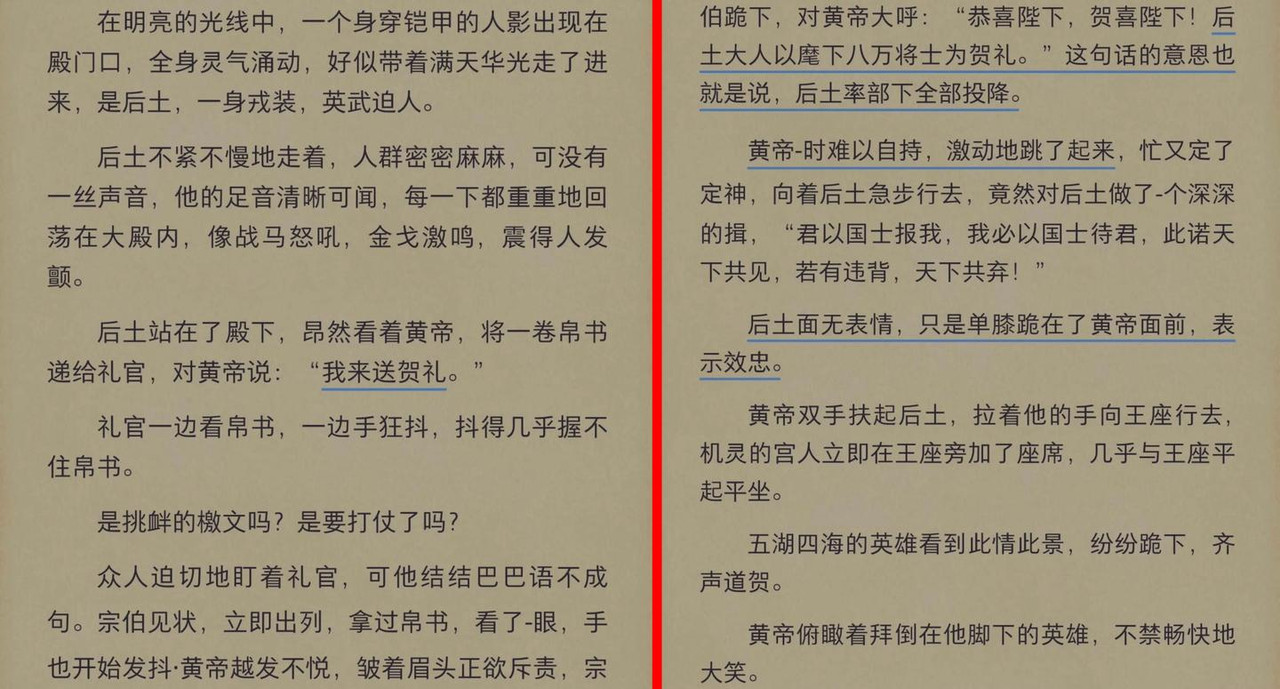
2️⃣ Yanzhuo Died in Battle
Yanzhuo (father of Shennong Yi, grandfather of Fenglong) triggered a volcanic eruption to perish together with Zhongyi (father of cangxuan).
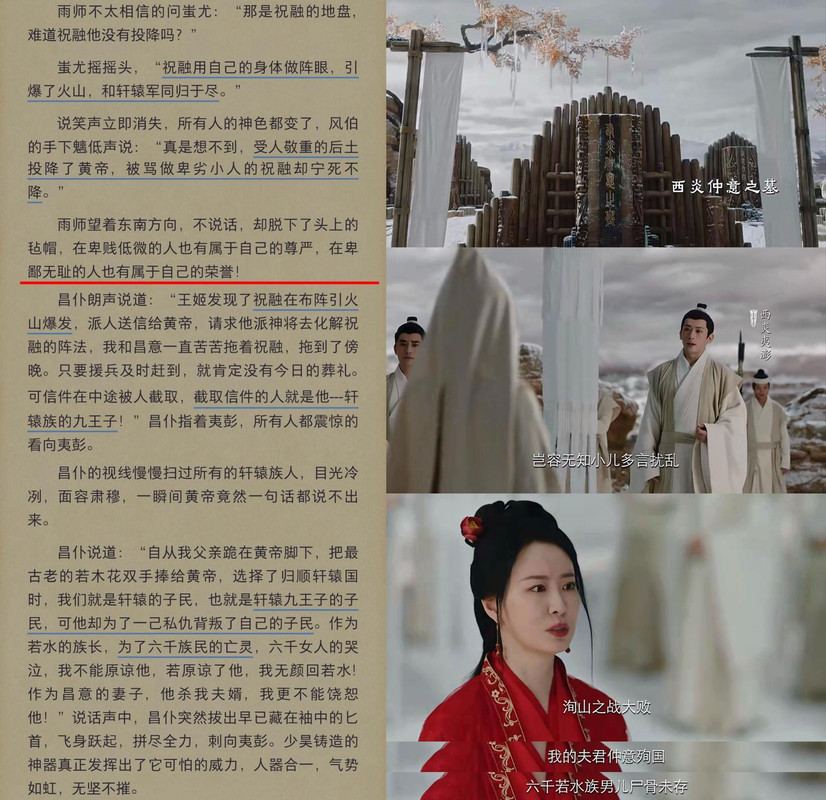
• Shennong Yi (Young Zhurong) surrendered.
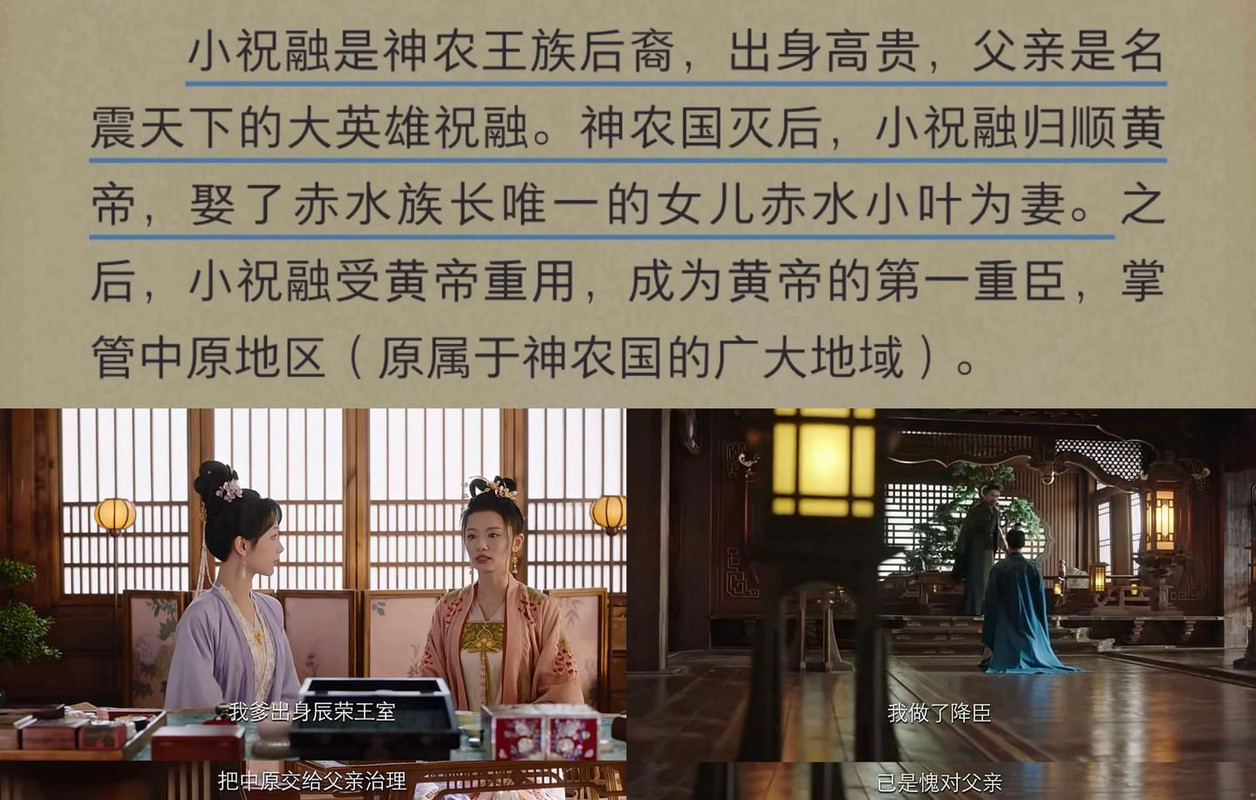
3️⃣ Chichen died in battle
Chichen perished together with A Heng on the battlefield.
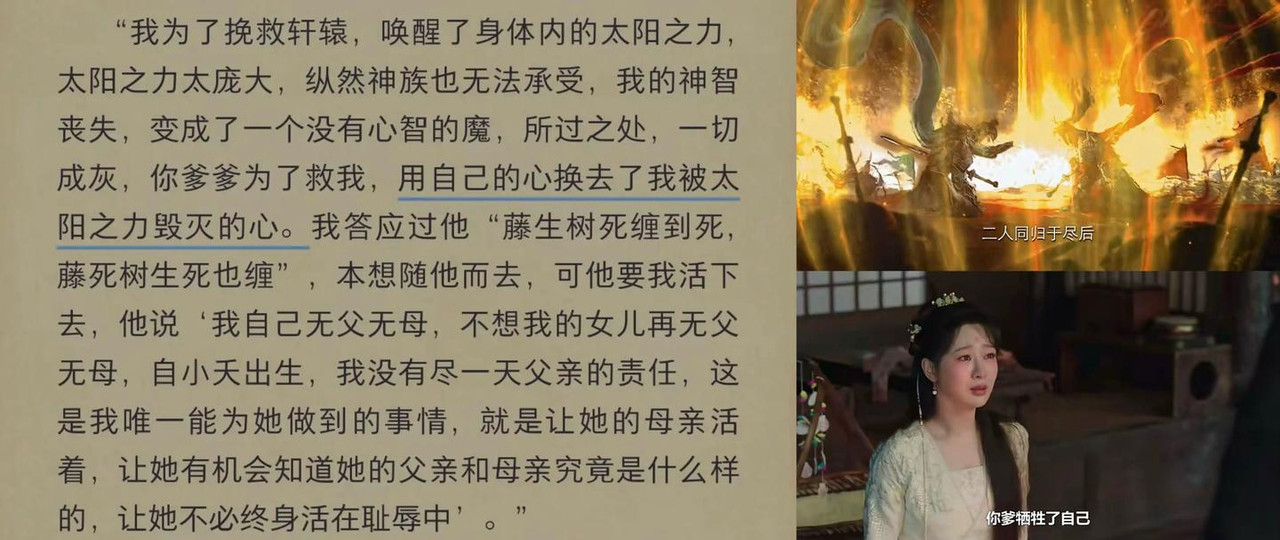
He didn’t completely die — he was left in a state worse than death.
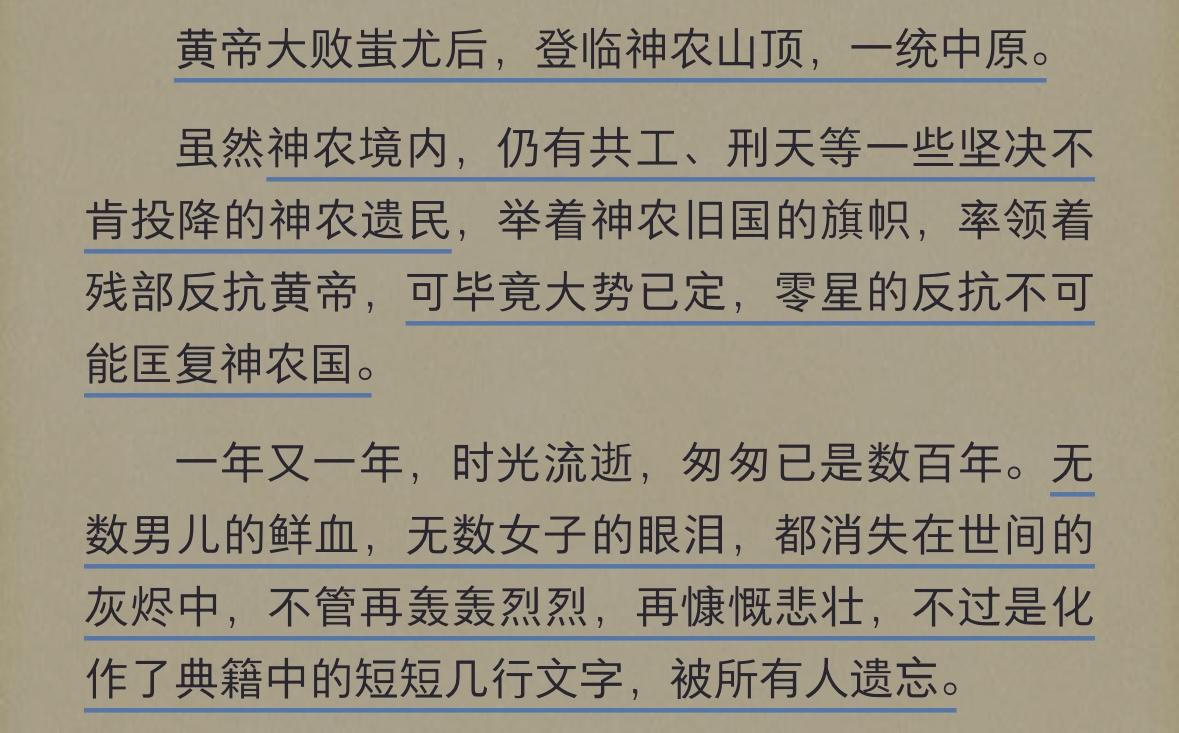
After Chi Chen’s death, the Shennong army was defeated.
•During the second inspection tour of the Central Plains by the old Xuanyuan King, Xingtian attempted to assassinate him.
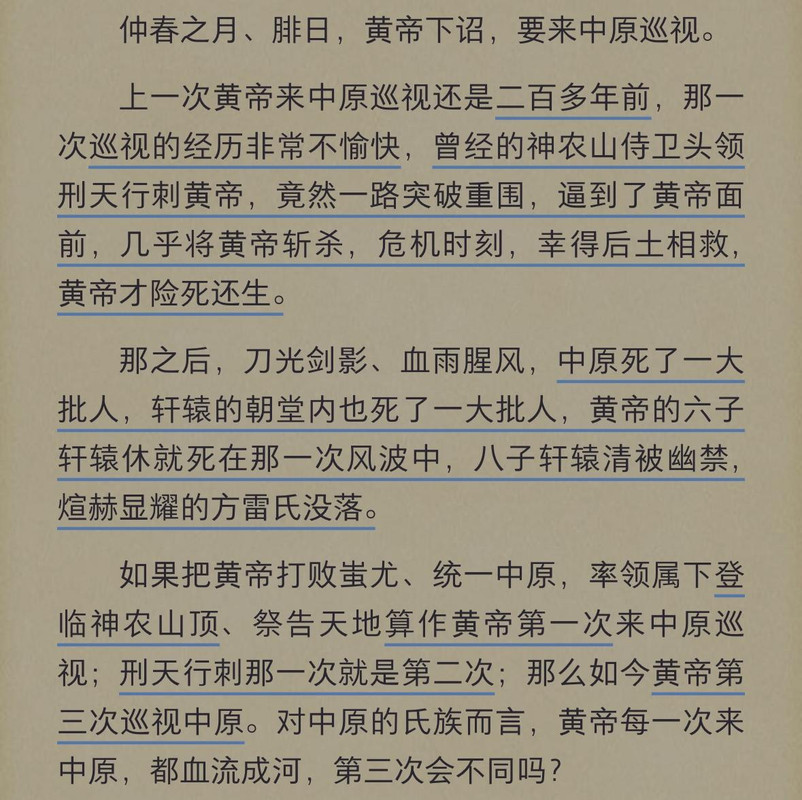
Xingtian
Xiangliu hunted down the surrendering factions: Houtu and Little Zhu Rong.
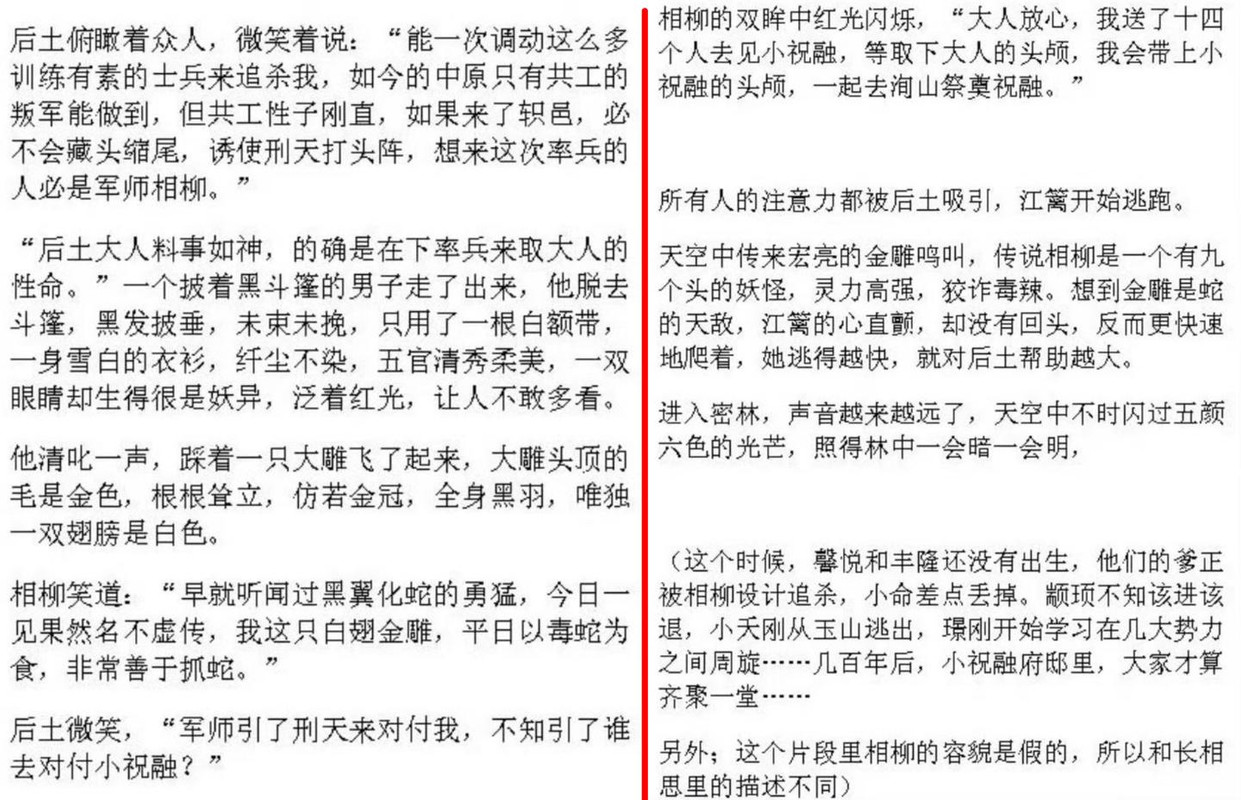
Excerpt from A Thousand Faces of Xiang (sourced from the internet)
4️⃣ Hongjiang died in battle
He would rather die than surrender, sacrificing himself for the nation.
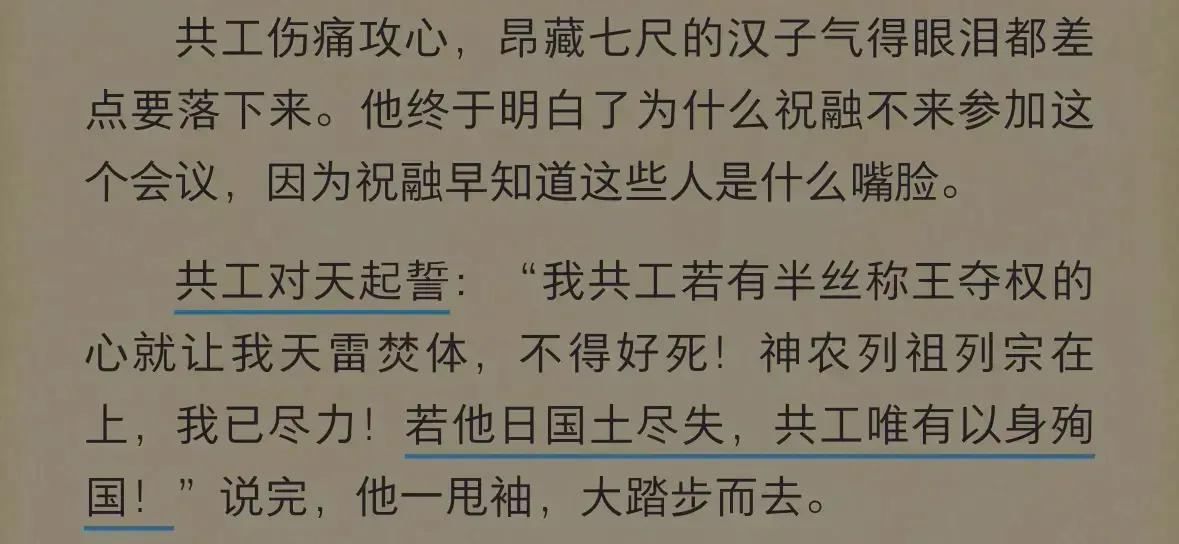
Sacrificing oneself for the country.
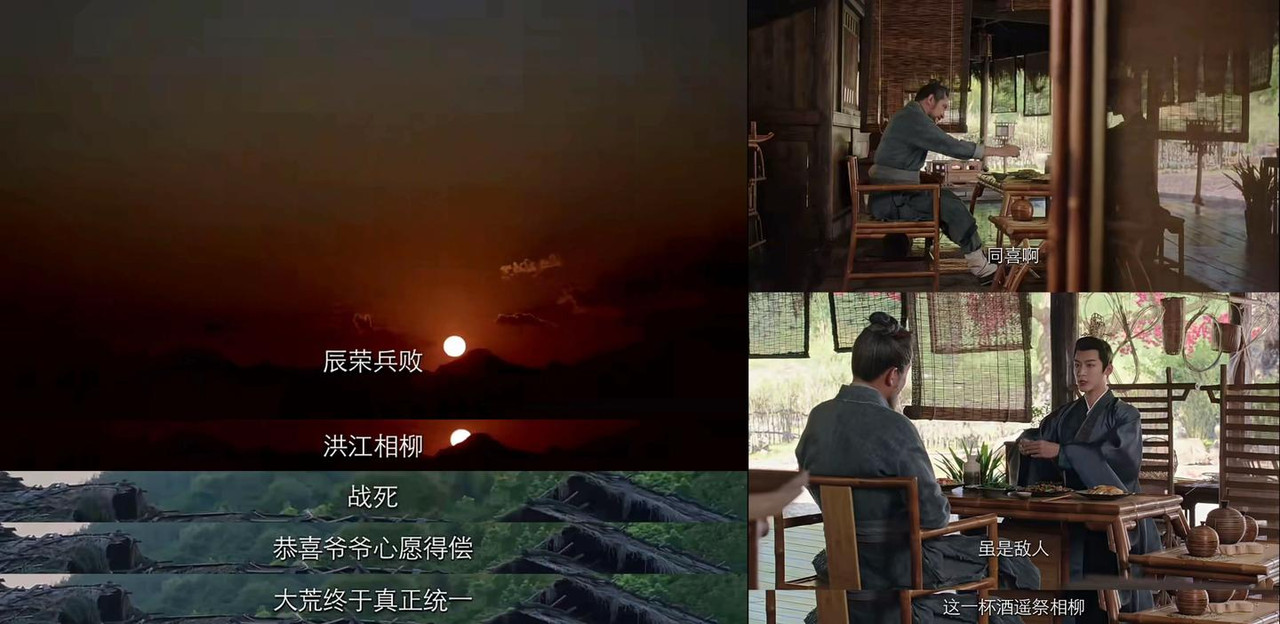
Drama version brief.
◐ Xiangliu's Generational Status Issue
Hongjiang and Zhurong both belong to the Shennong royal clan, and Hongjiang is Xiangliu’s adoptive father.
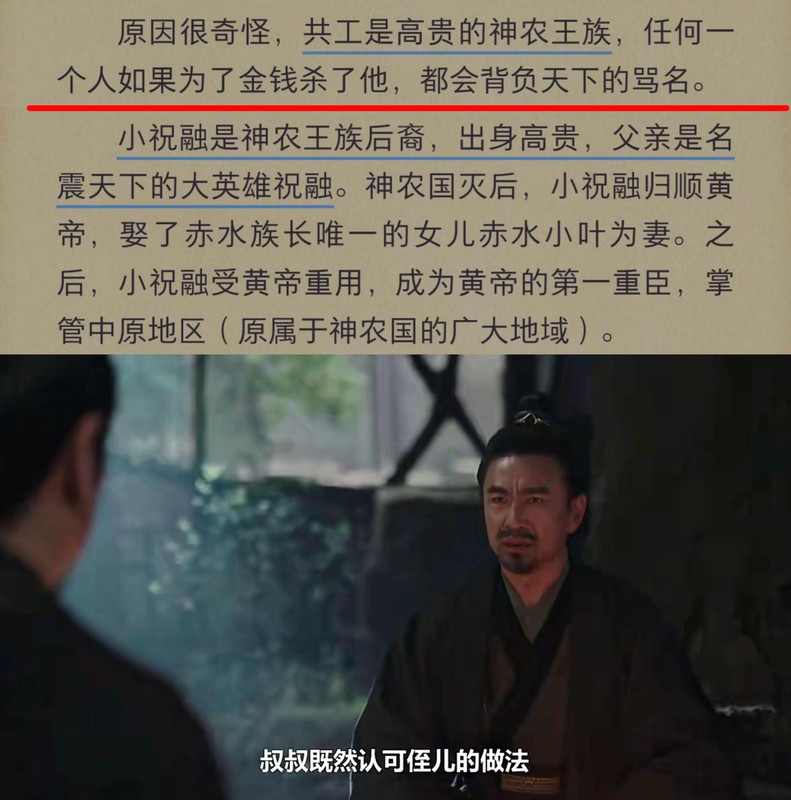
Hongjiang is Shennong Yi’s uncle.
Xiangliu and Shennong Yi are of the same generation, and are considered elders to Fenglong and Xinyue (not much older in age, but in terms of seniority, that’s the case…).
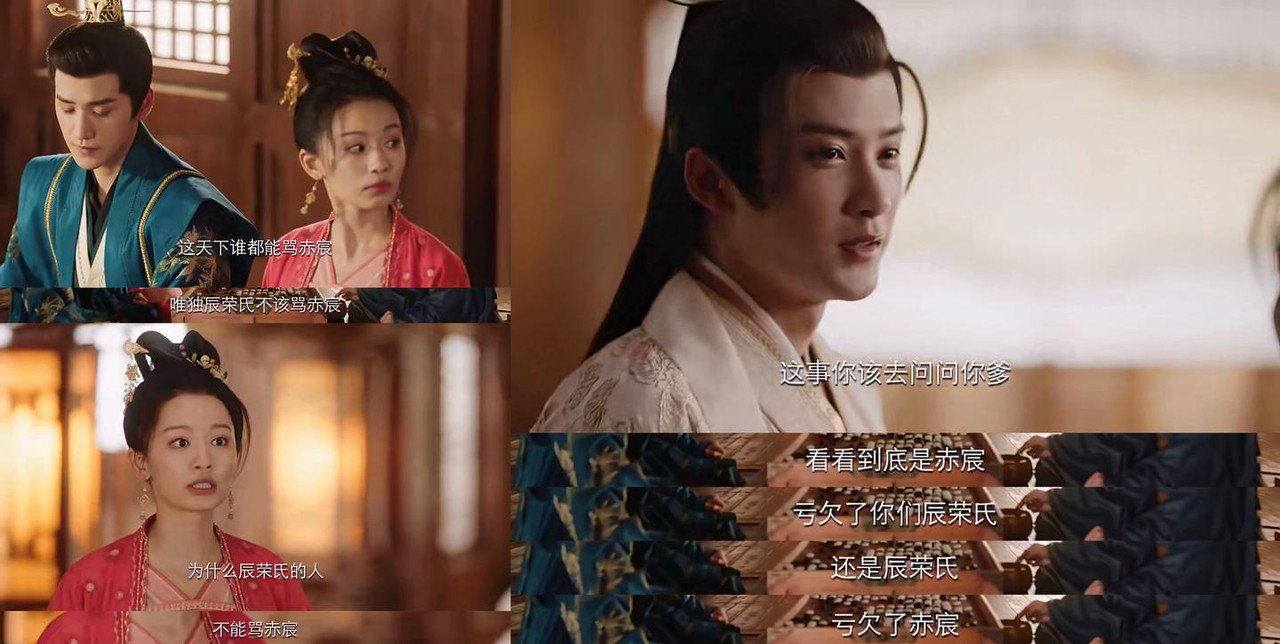
Xiangliu scolded Xinyue by taking the position of an elder (Xiangliu: "Go home and ask your father").
(In Xinyue’s eyes, who would dare to tell her to go ask her own father?)
② "Why not eat meat porridge?"
(Note: This is a historical allusion referring to a ruler being out of touch with the hardships of the people. It implies ignorance of others' suffering.)

["Why don’t they eat meat porridge?" / Book of Jin – Annals of Emperor Hui
Emperor Sima Zhong was once strolling in the Hualin Garden when he heard frogs croaking. He asked his attendants,
"Are these croaking creatures public or private property?"
One of them replied,
"If they are on government land, they’re public; if on private land, then they’re private."
Later, during a time of widespread famine when people were starving to death, Emperor Sima Zhong astonishingly asked,
"Why don’t they eat meat porridge?"
Such remarks reflected his ignorance and cluelessness about the suffering of the people.]
● Putri dari Dua Raja Gaoxin, Putri Gaoxin Yi
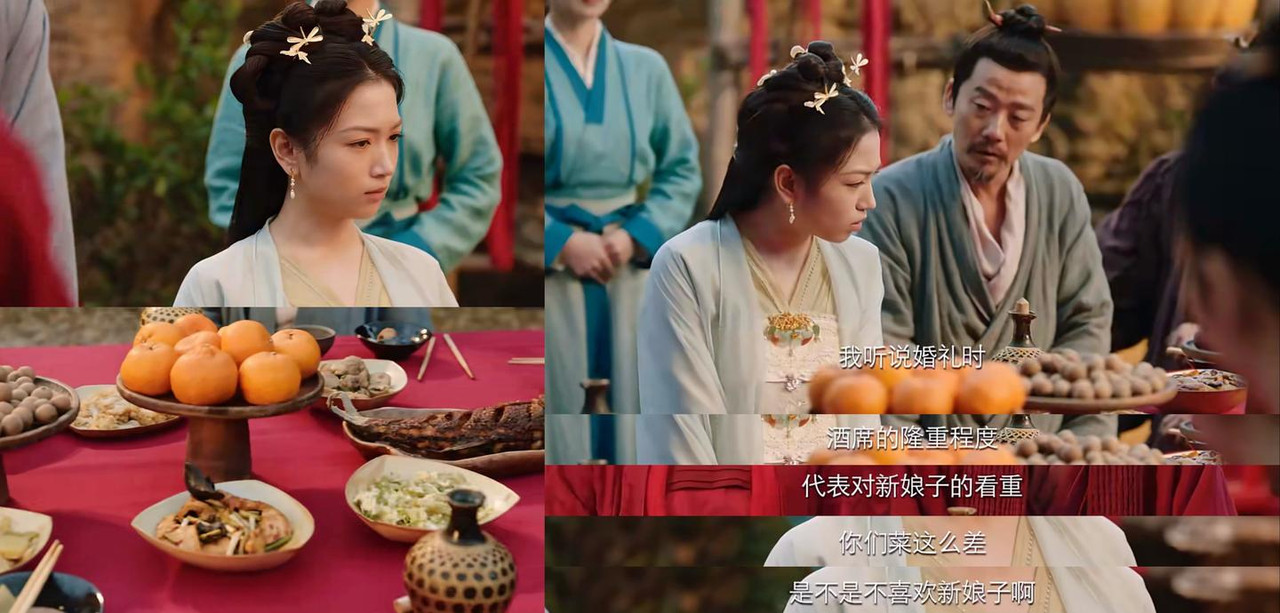
The food is so bad? Why don’t you eat meat porridge instead?
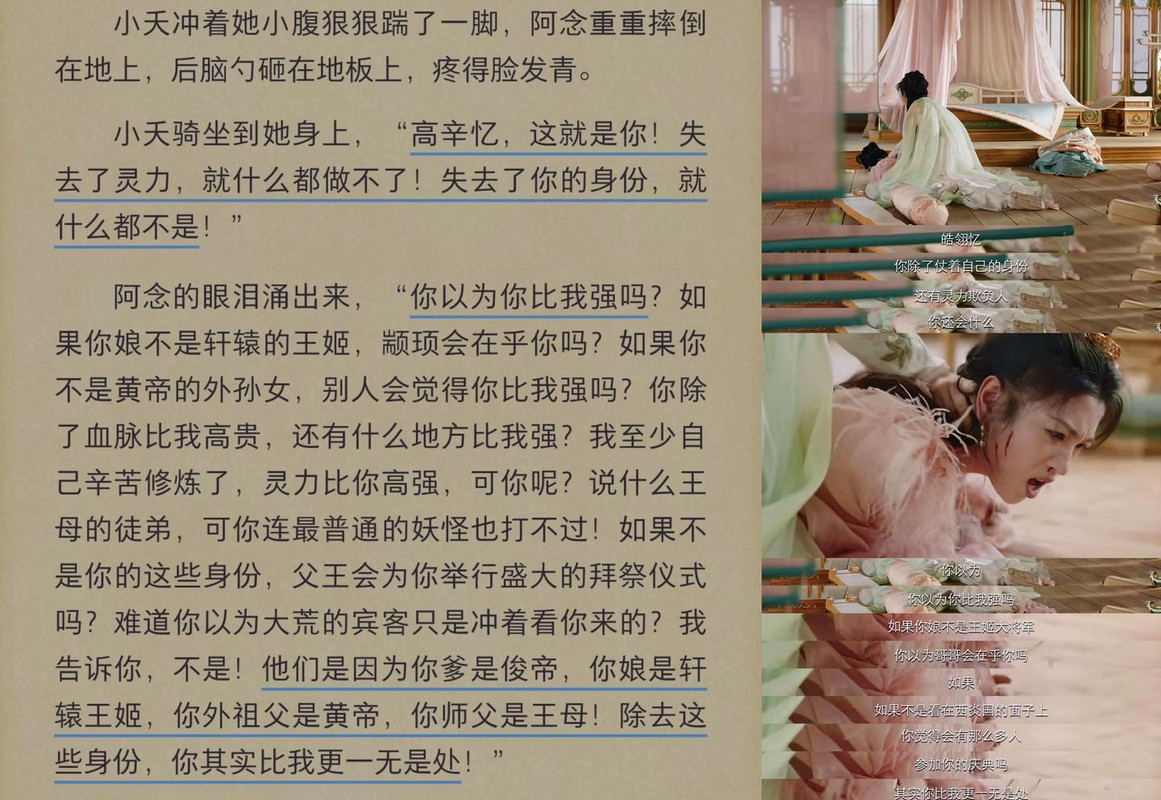
Without status, you are nothing.
[The growth of a royal princess]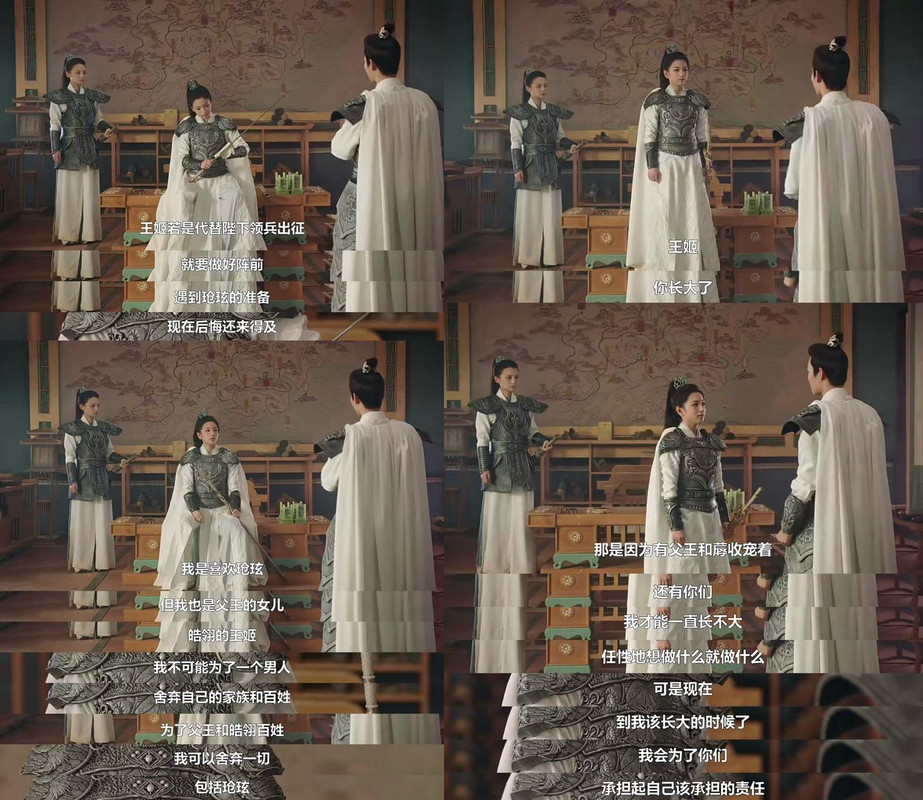
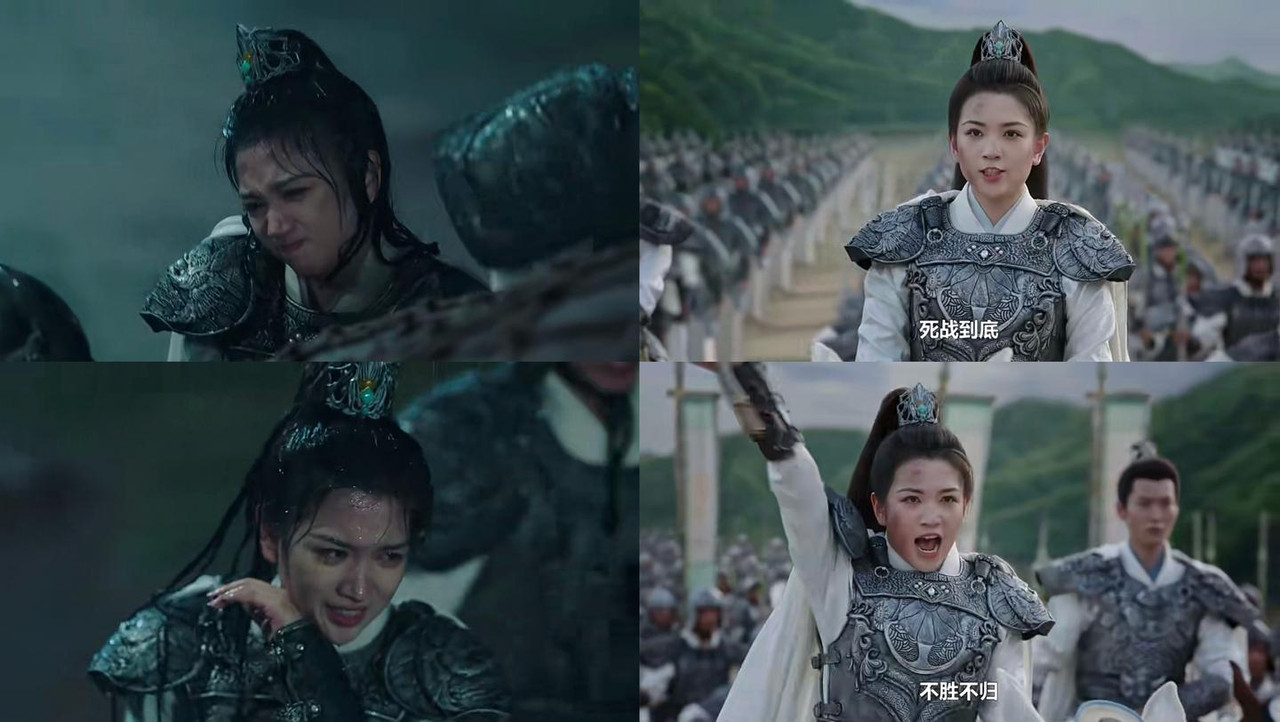 The responsibility of a royal princess (Is there anyone to back her up?)
The responsibility of a royal princess (Is there anyone to back her up?)
● Tushan's Second Young Master, Tushan Jing

Ice crystals in the scorching summer, the enjoyment of wealth and luxury.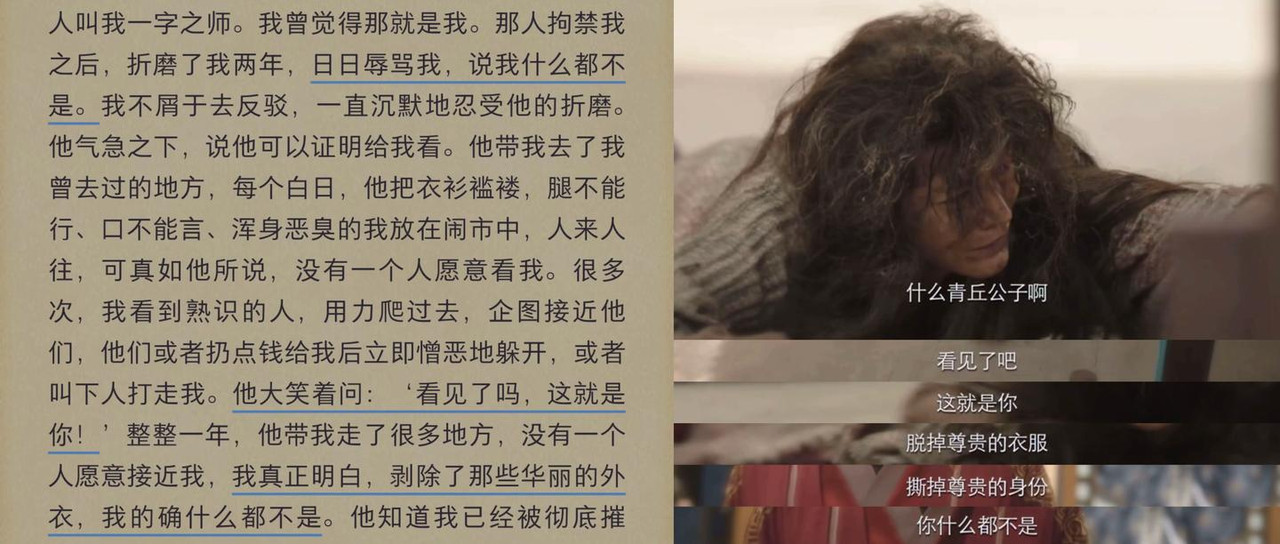
Without status, you are nothing.
[The "growth" of a fallen tycoon]
1. Releasing miasma poison.
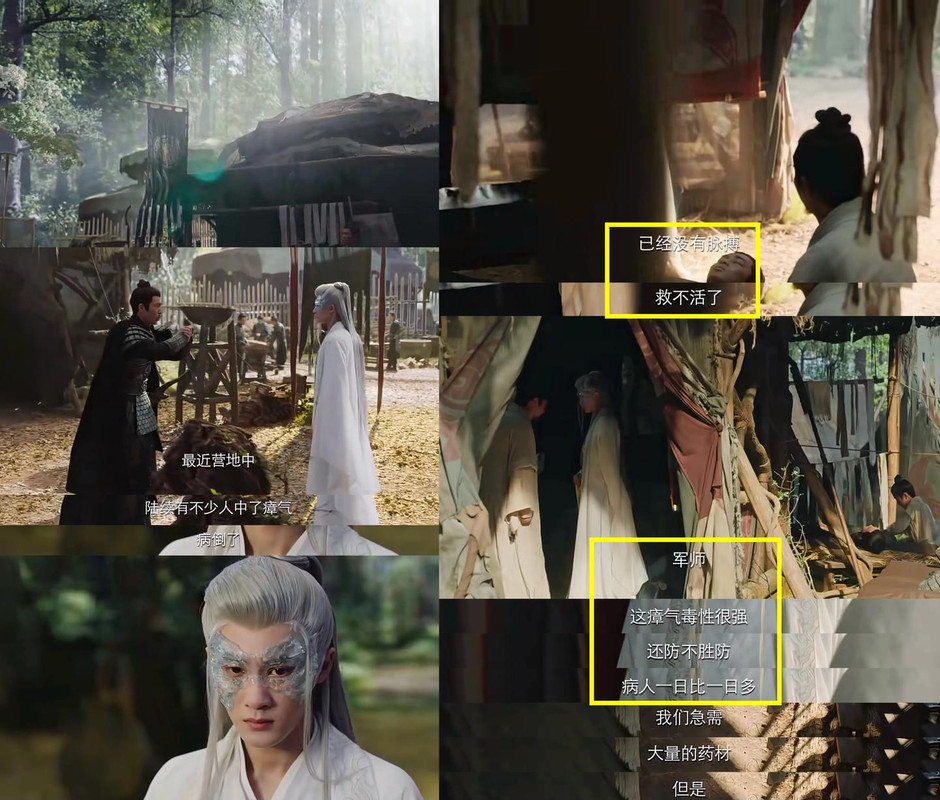
A fragile life under the miasma poison.
(Tushan Jing released the miasma poison — see Contents IV-❼-②)
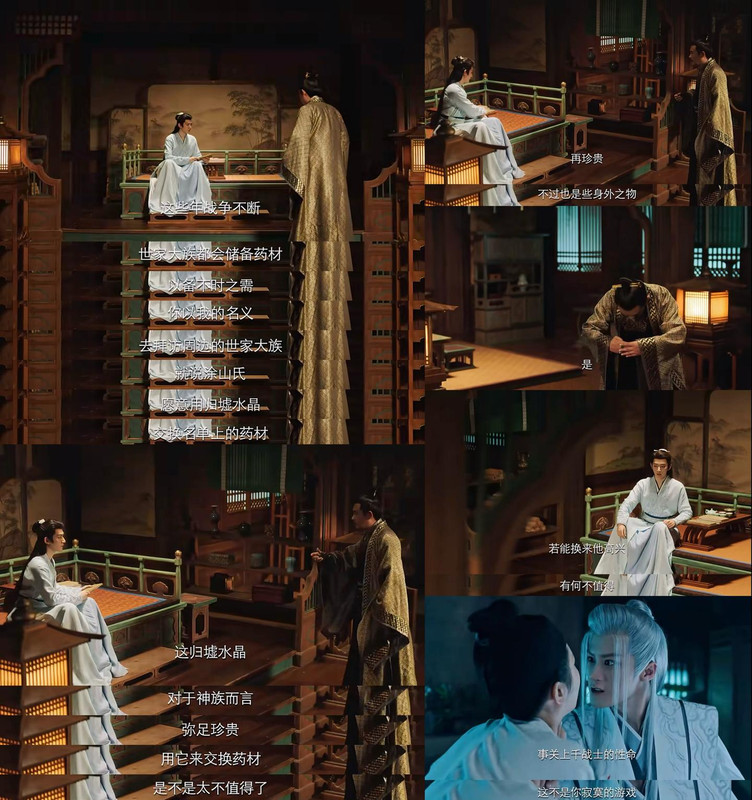
Why not eat meat porridge, Tushan Jing?Are the lives of the righteous army nothing more than playthings for you to please Xiao Liu?
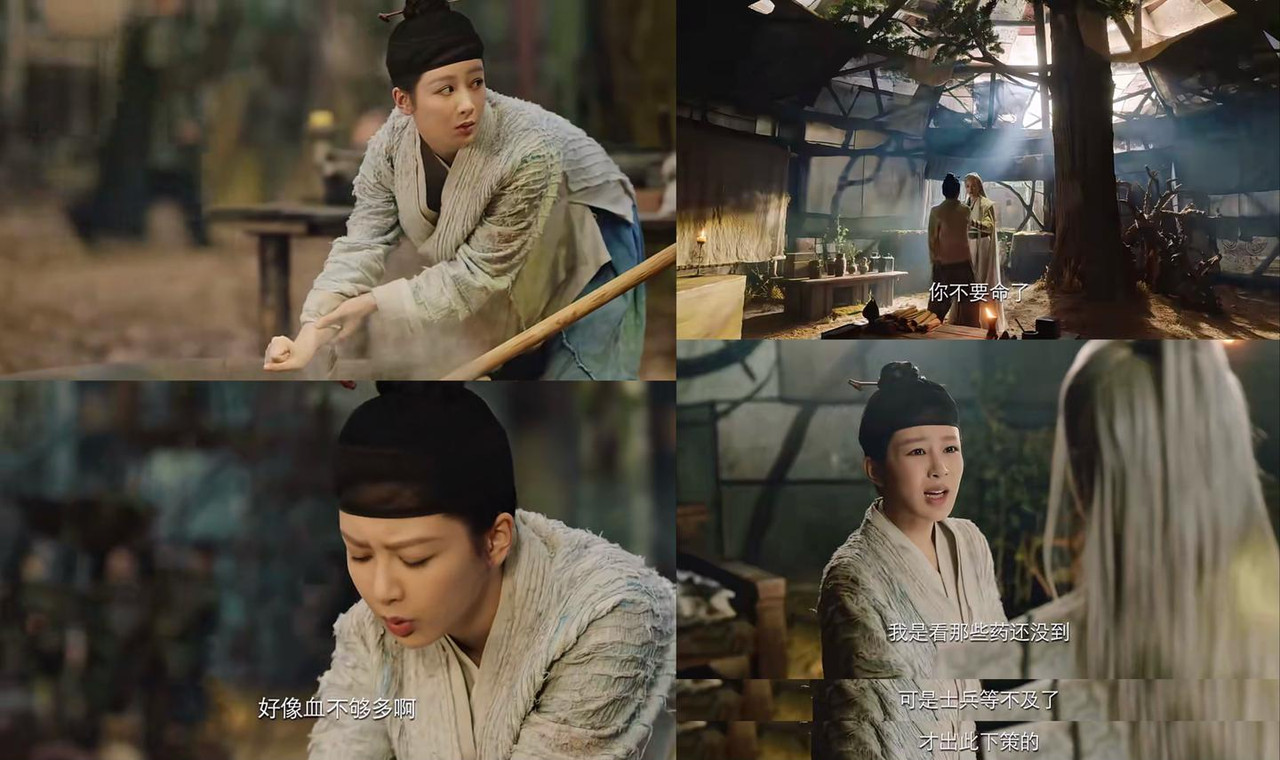
True kindness and false kindness—can the world truly see the difference?
Toying with the lives of the righteous army, Xiangliu could hardly resist the urge to kill Tushan Jing, but he was powerless to do so. The righteous army still had to rely on him for support just to barely survive…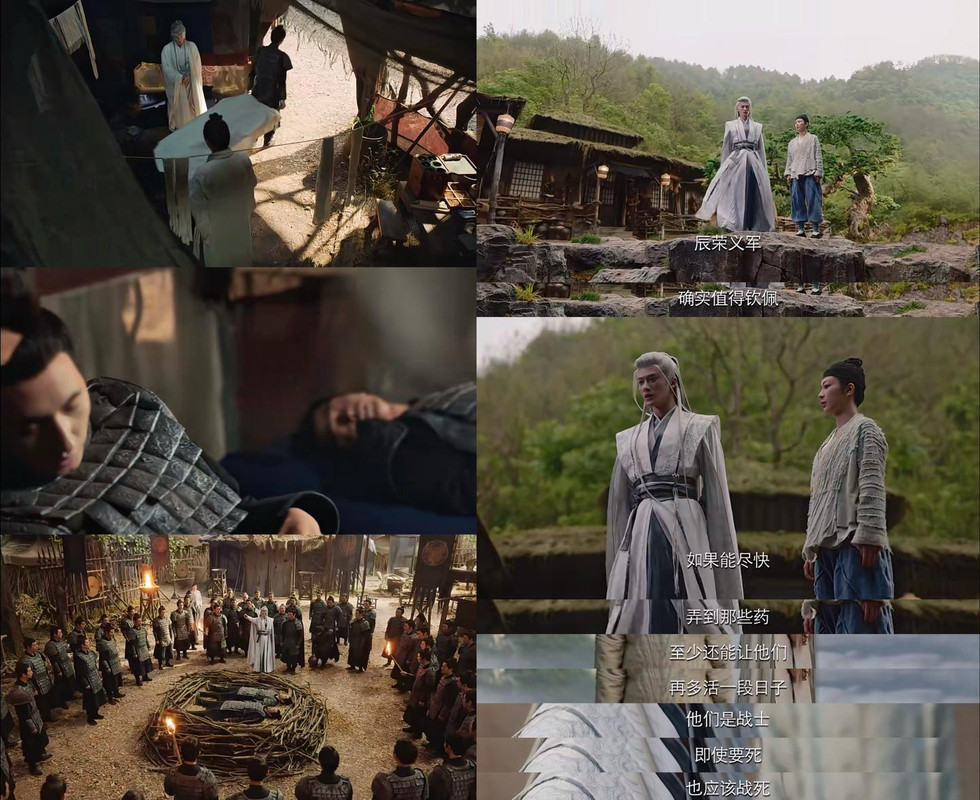
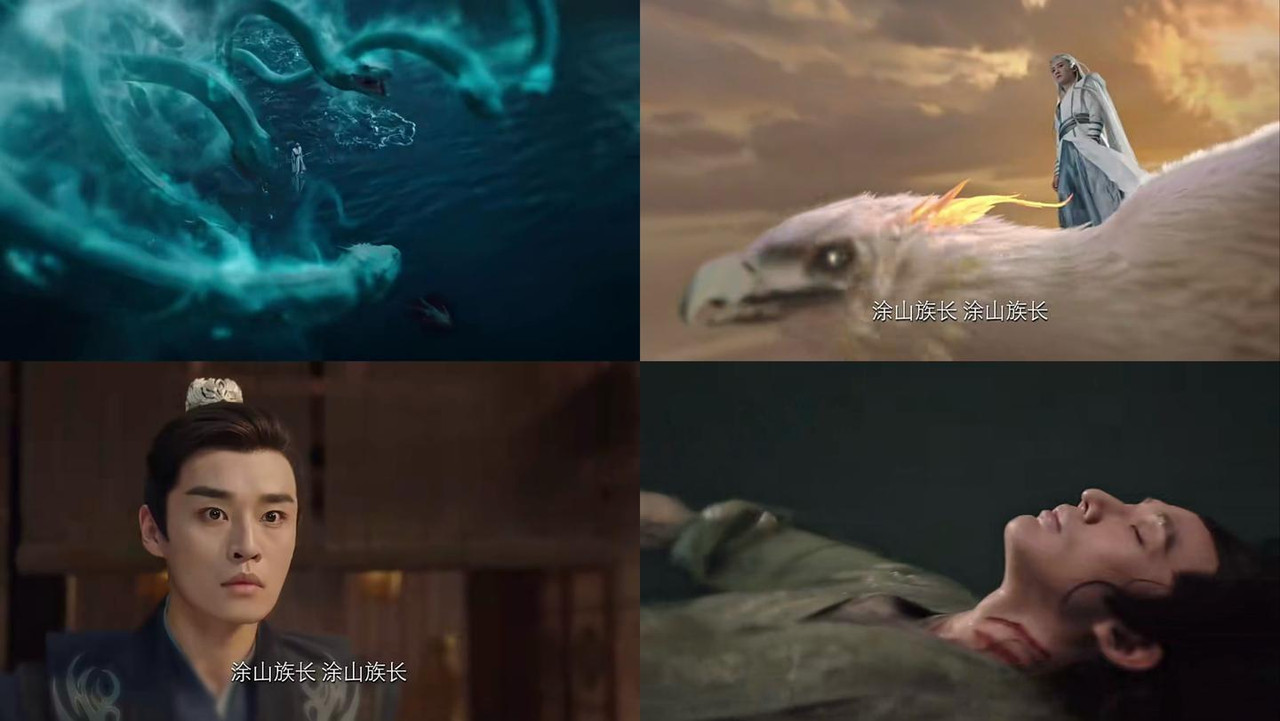
He went to save Tushan Jing? What a hell of a joke~ Hahaha, the blogger laughs three times...
Believe it if you want to.
2. Underground casino
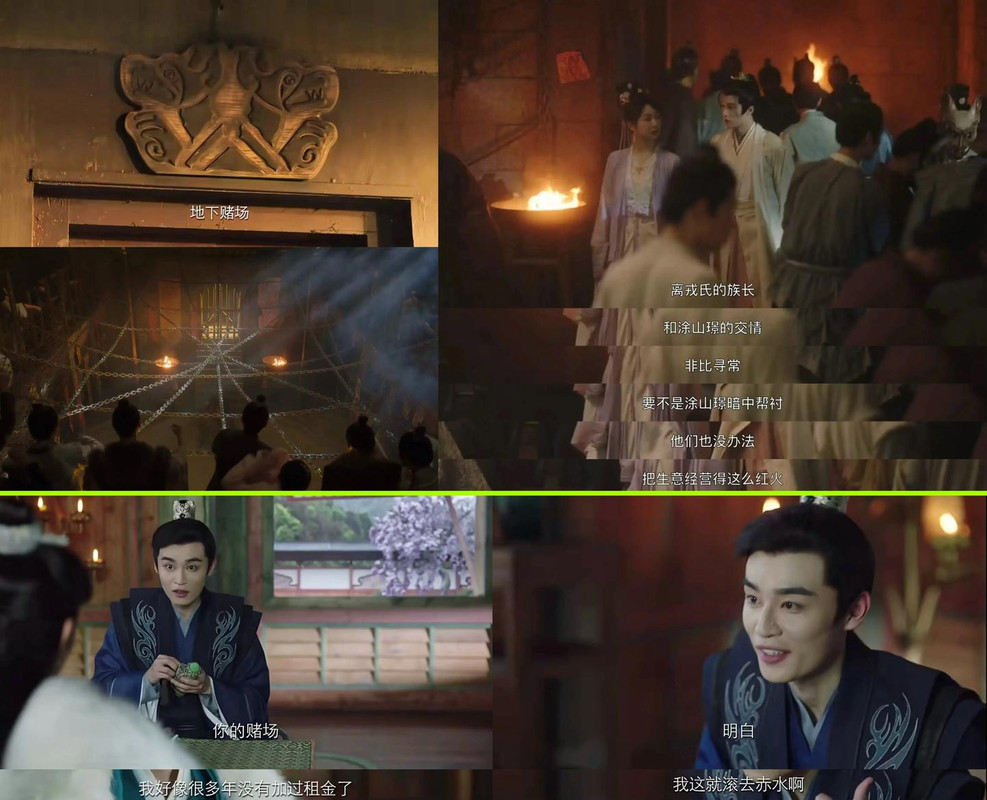
The lives of the demon clan are nothing more than tools for making money.
3. After rebirth, the Consciousness Deity is unsealed.
• The heartthrob young master of Qingqiu.
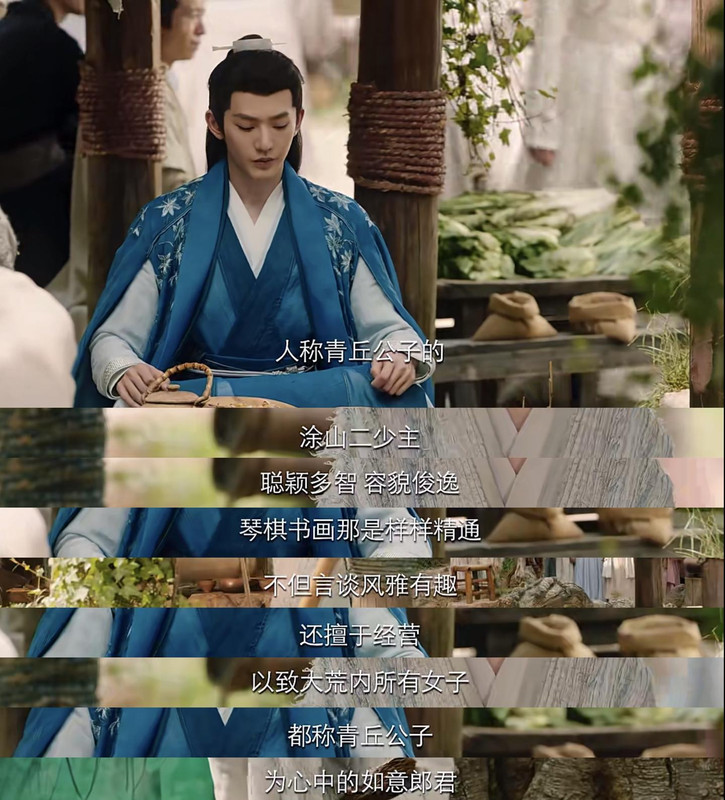
Wilderness “Hot Search”: Heartthrob Young Master of Qingqiu
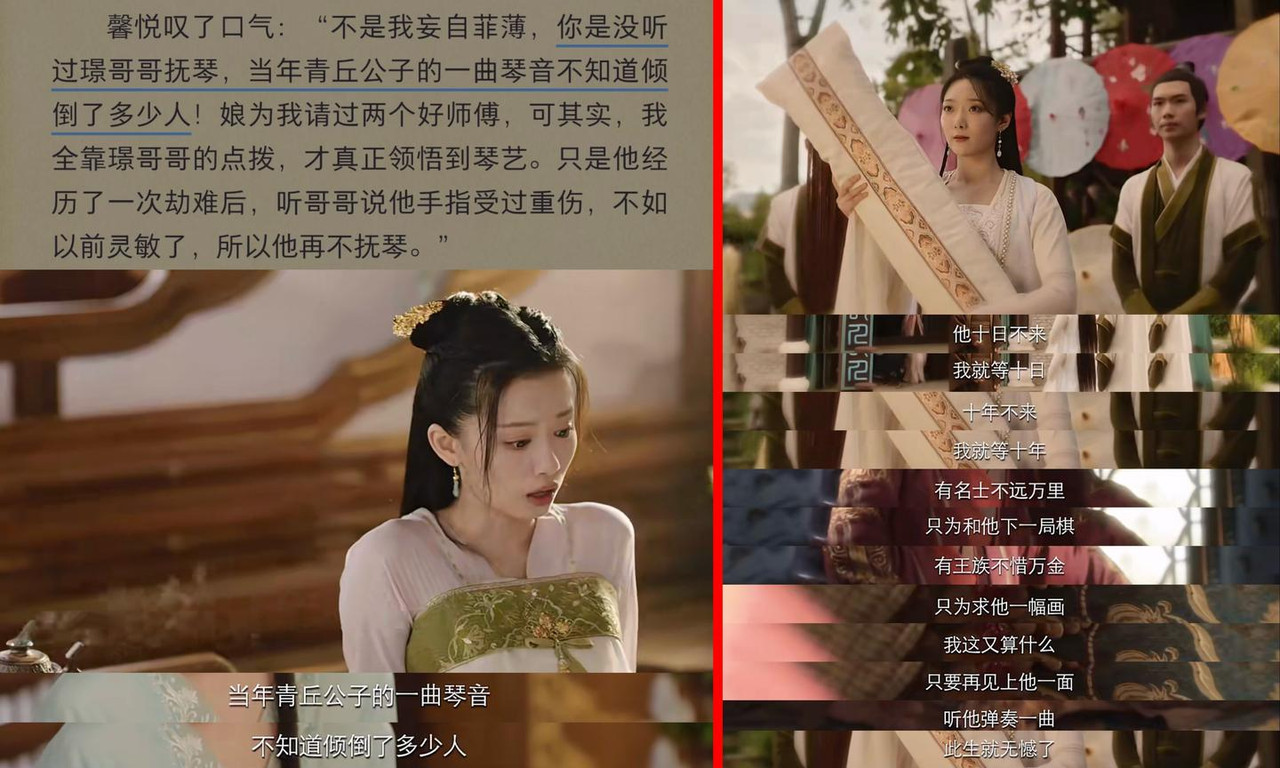
Once, the Young Master of Qingqiu played a “bewitching melody” that captivated countless people. Admirers eagerly rushed to request an audience with him...
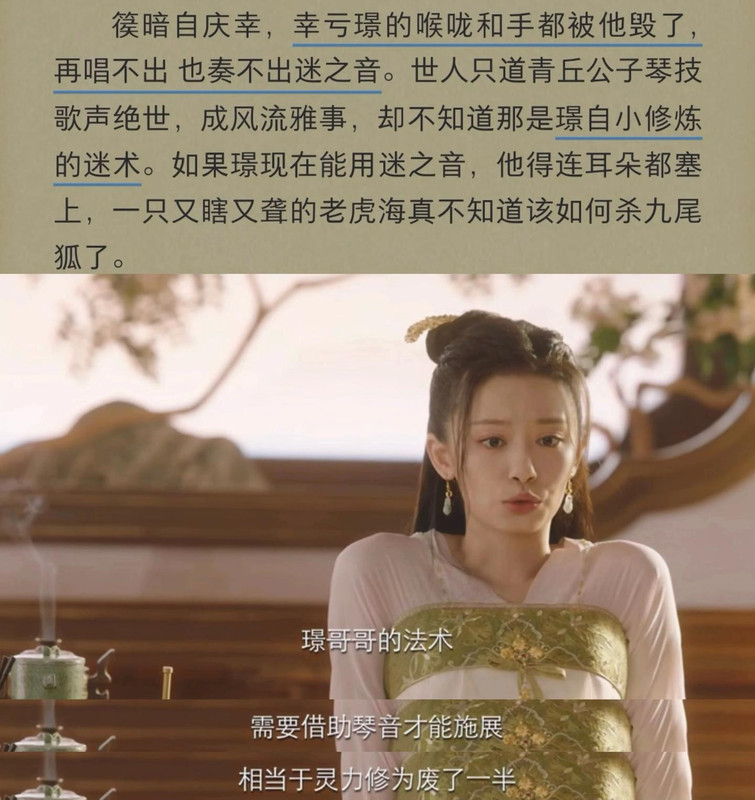
The bewitching melody wasn’t mastered effortlessly.
• Ragged and worn-out Ye Shiqi.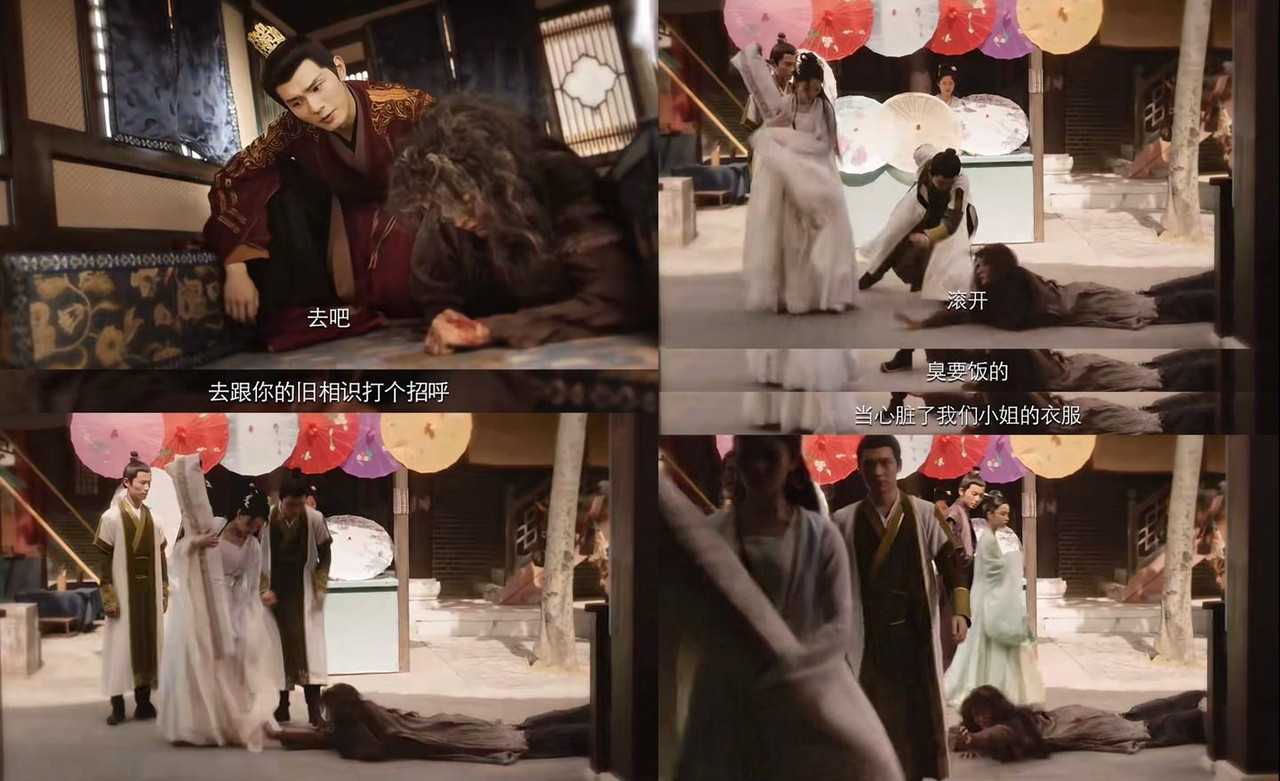
Unwanted by anyone.
The current Ye Shiqi is extremely devoted—he wants only one person!
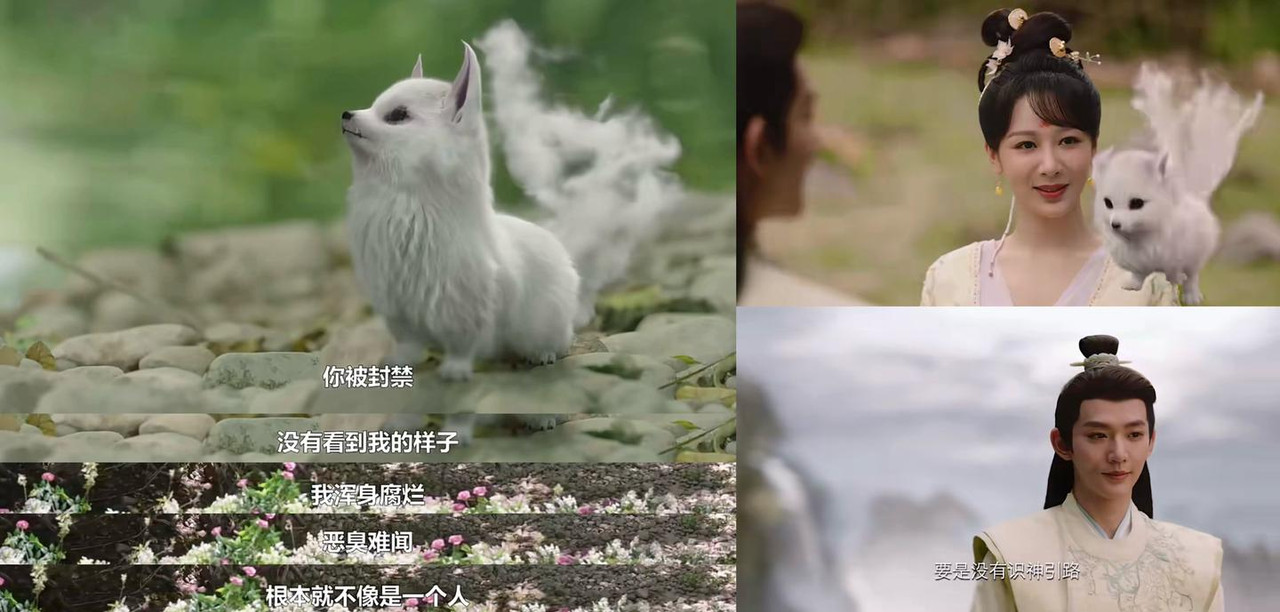
With his divine consciousness unsealed, this time he's very focused—he only absorbs Xiaoyao.
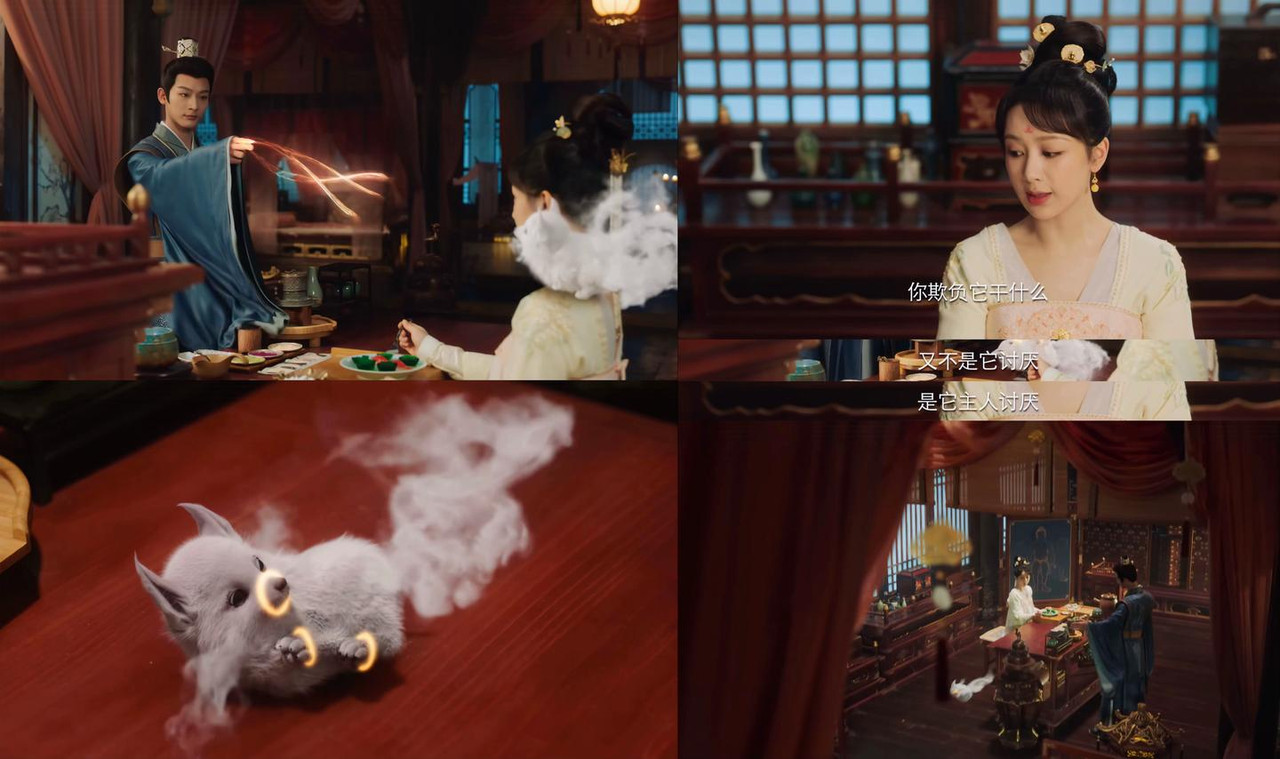
The divine consciousness isn’t even the most annoying one—Xiaoyao thinks Jing is even more annoying than the divine consciousness.
(For the secret of the divine consciousness, see Contents_5-❺-④)
7. Little Scenes
❶ Five Blood-Sucking Moments in Qingshui Town That Sealed Their Love
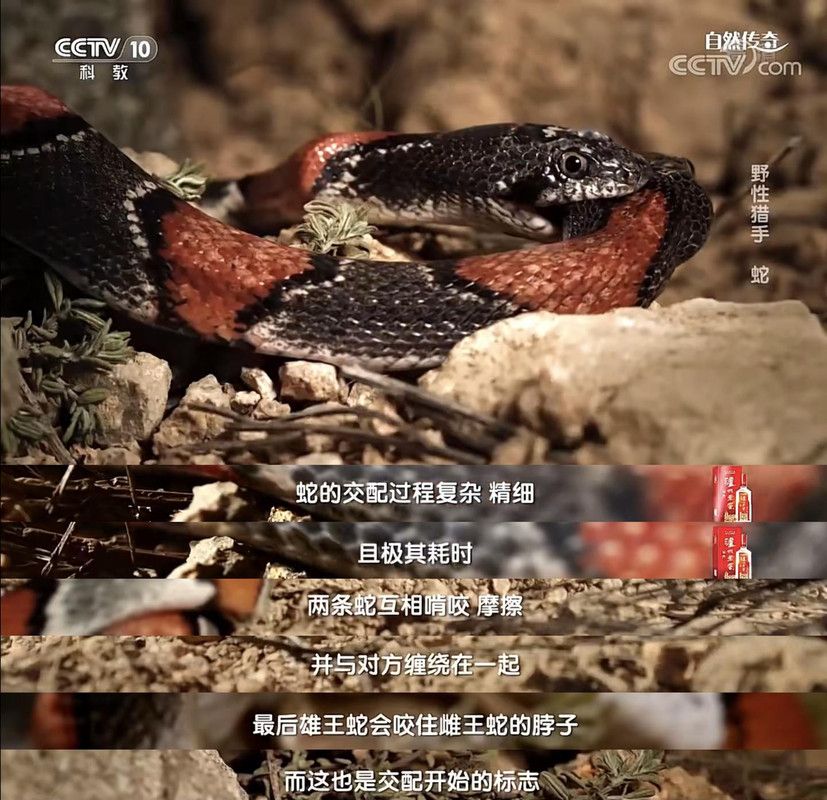
Science/Explanation
[The mating process of snakes is complex and delicate—and extremely time-consuming.
Two snakes bite and rub against each other,entwining their bodies together.
In the end, the male king snake bites the female king snake’s neck,and this marks the beginning of the mating process.]
① The first blood-sucking — Fish Fire
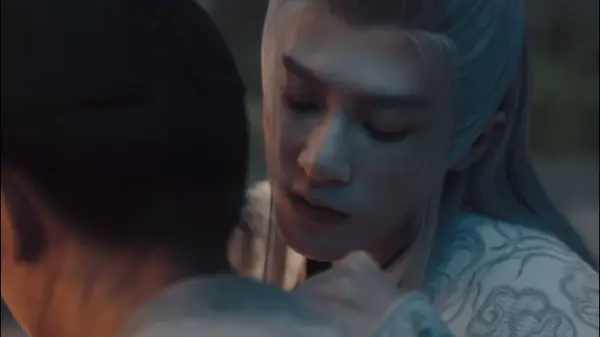
It was “desire fire” (a forceful first kiss).
② The second blood-sucking — Heart stirred by the Red Matchmaker Star (wearing the red-thread marriage garment).
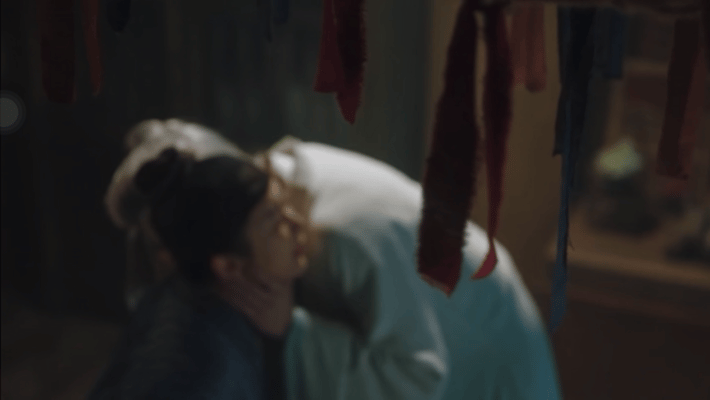
Burying the neck.
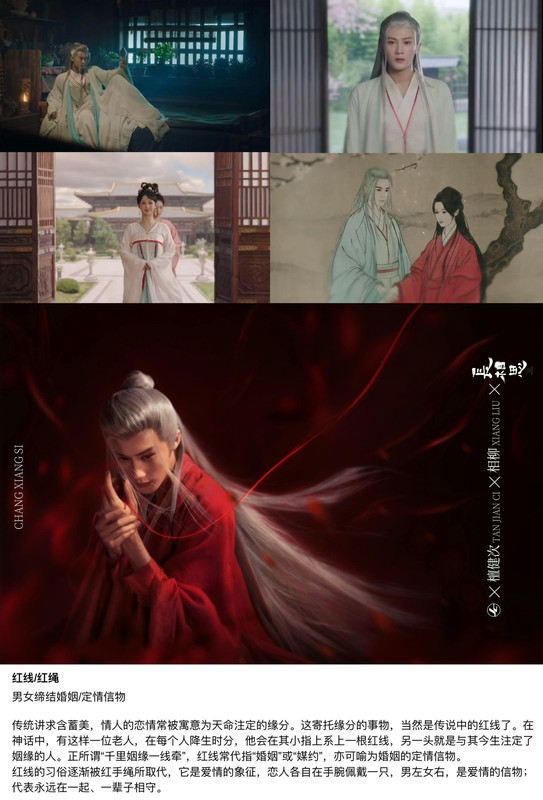
A thousand miles of destined love, connected by a single thread.
[Red thread / red string
It symbolizes the bond of love or marriage between a man and a woman, as well as a promise to stay together for a lifetime.
The tradition of the red thread has gradually been replaced by wearing red string bracelets, which also symbolize love. Lovers each wear one on their wrists—men on the left, women on the right—as a token of their affection.
Those destined to be together are called “fated partners.”
As the saying goes, “A thousand miles of fate are tied together by a single red thread,” the red thread is often used to symbolize marriage or matchmaking, and it also serves as a token of commitment in love.
In mythology, there is an old man who is believed to tie a red thread around the pinky finger of every newborn. The other end of the thread connects to the person destined to be their lifelong partner.
Because traditional Chinese culture values subtle beauty, romantic relationships are often interpreted as fated by heaven. And the object that carries this symbolism of fate is, of course, the legendary red thread.]
③ The third blood-sucking — Wind stirs the fluttering banner.
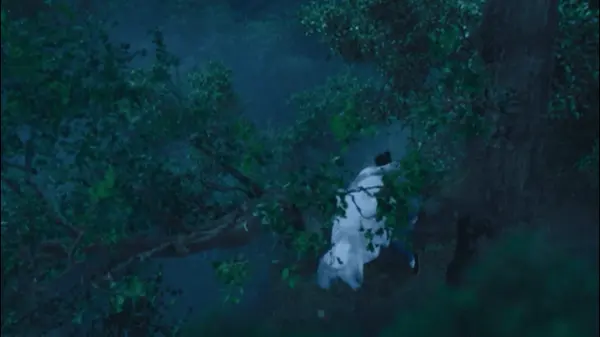
It is not the wind that moves, nor the banner that moves—it is the heart of the kind that is stirred.

Expansion
[In the Platform Sutra, it is written:
“At that time, the wind was blowing and a banner was fluttering.
One monk said, ‘The wind is moving.’
Another said, ‘The banner is moving.’
They argued without end.
Then Huineng stepped forward and said:
‘It is not the wind that moves, nor the banner that moves—it is the kind person’s heart that moves.’”]
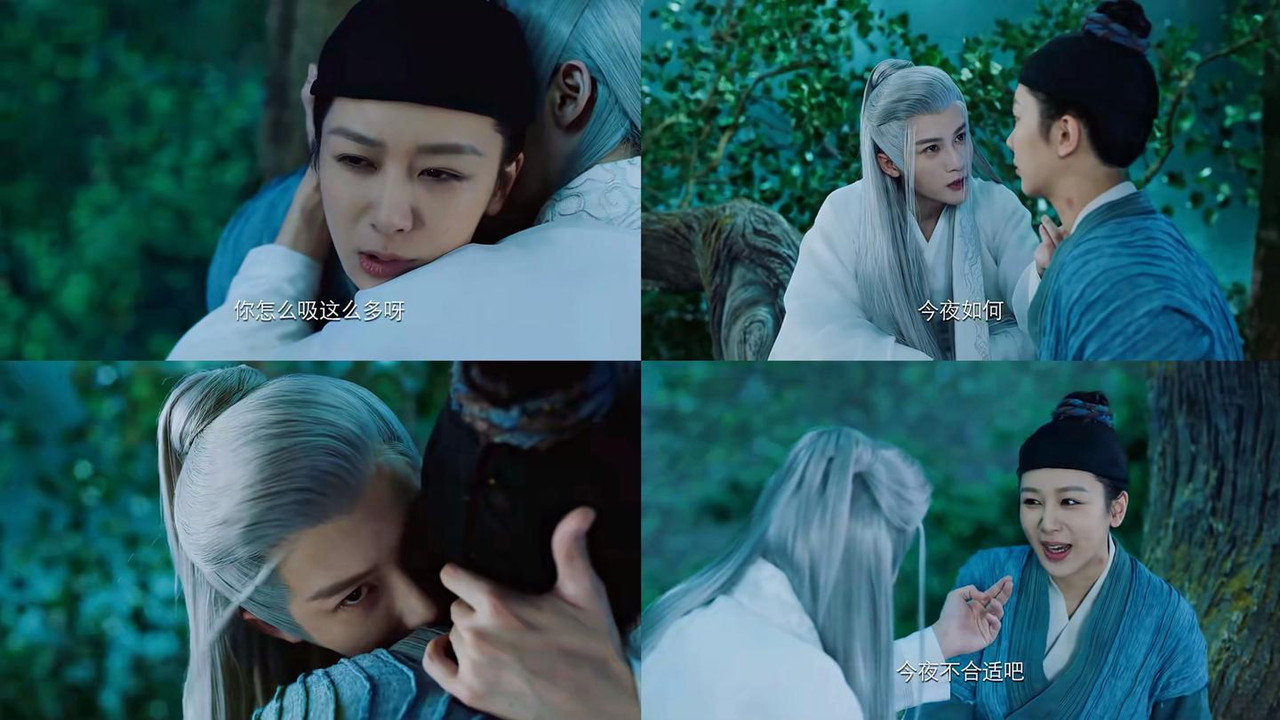
After “sucking” for too long, the snake gets embarrassed.
④ The fourth blood-sucking — Waiting
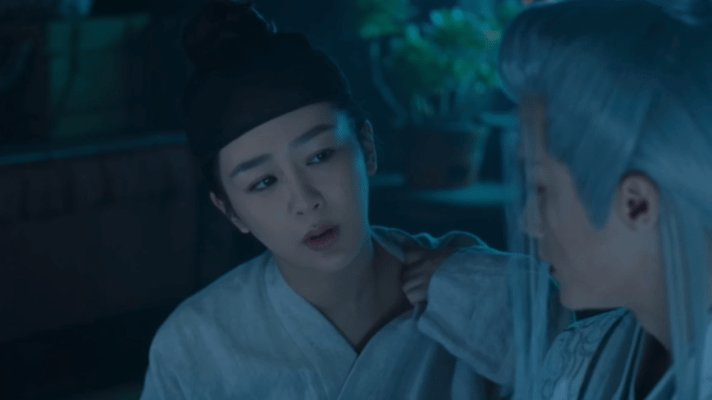
⑤ The fifth blood-sucking — Passion and desire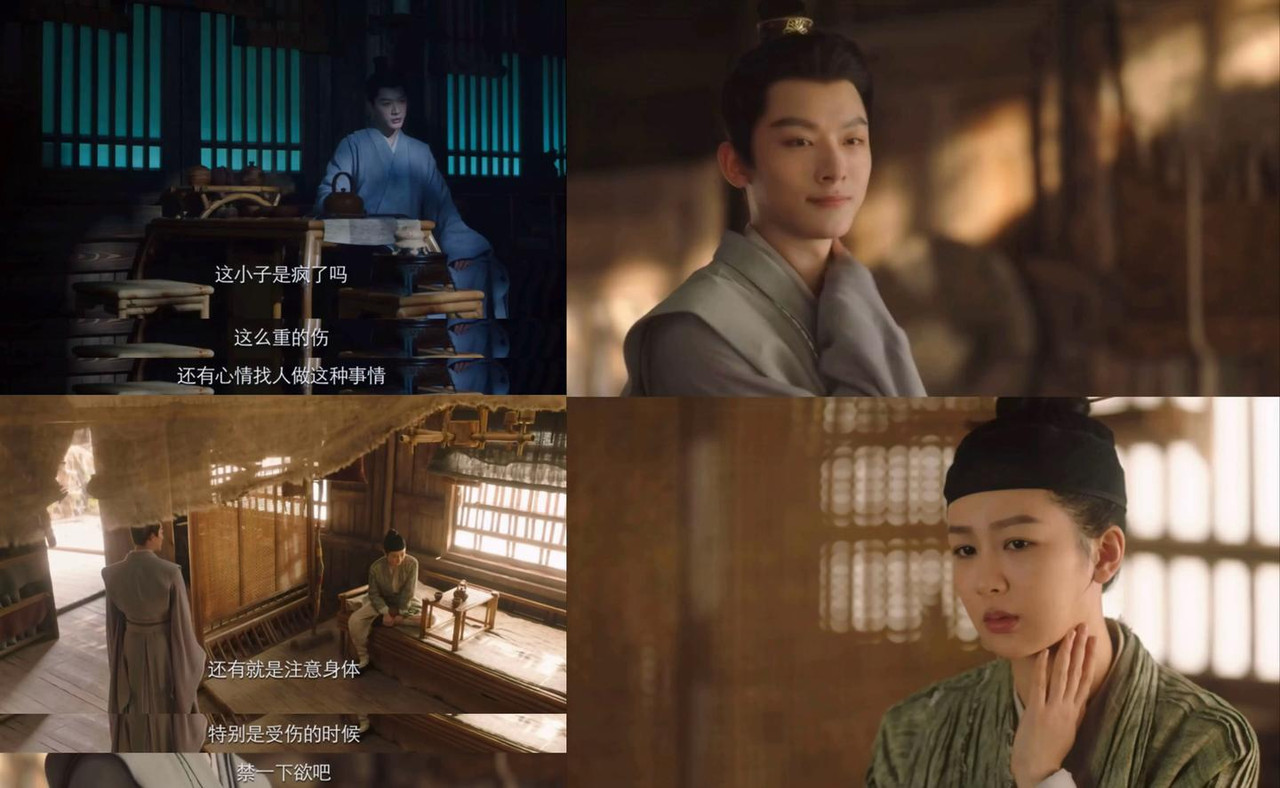 Passion and desire
Passion and desire
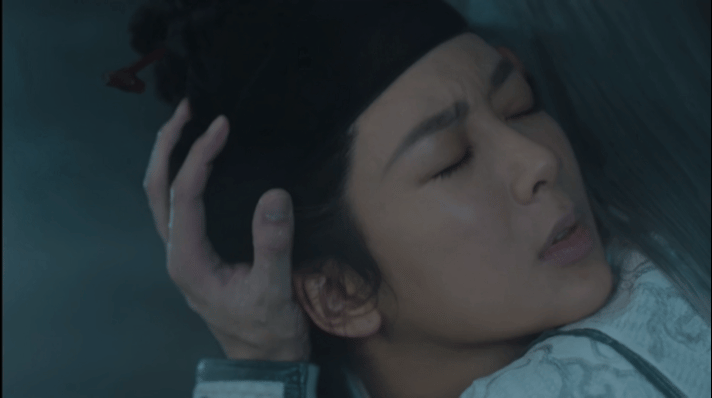
Xiao Liu had his passion and desire drawn out.
▽–Can cangxuan guess who the person getting intimate with Xiao Liu is?
•Could it be…?
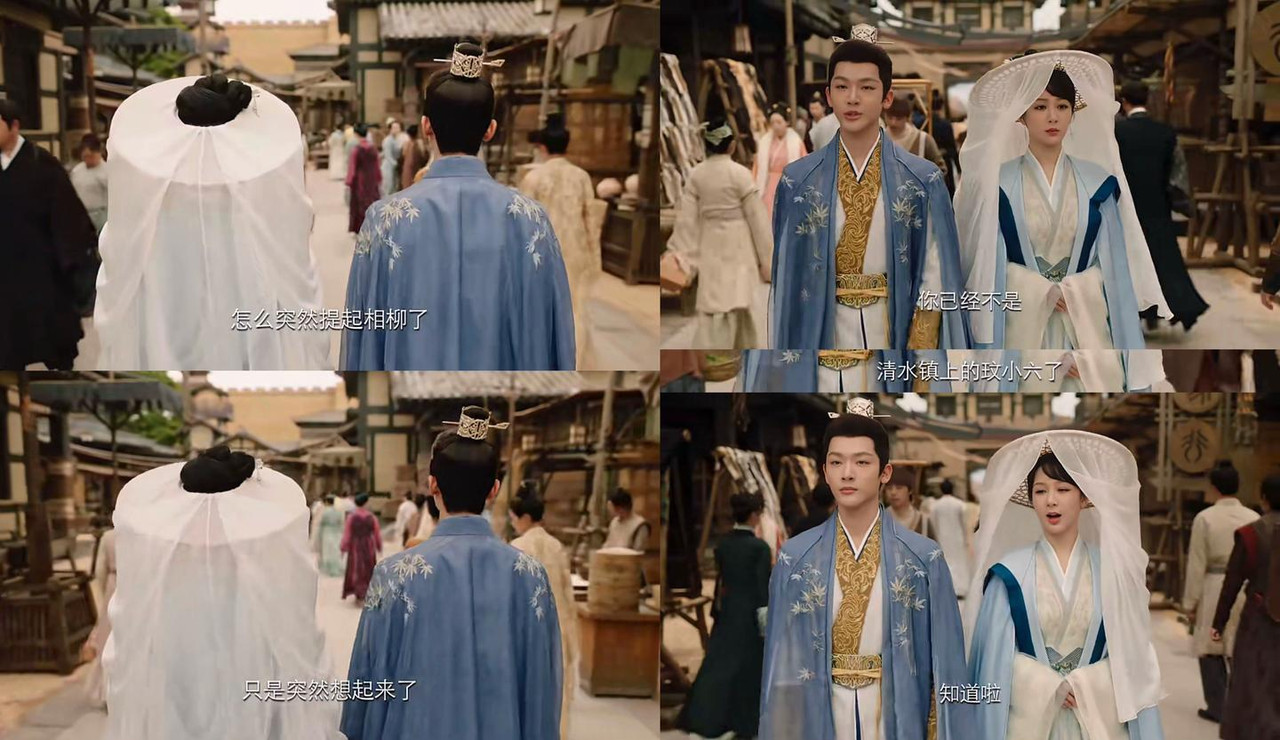
Your sister isn’t allowed to think about Xiangliu, but Wen Xiaoliu is?
【From this moment, a lifelong yearning】
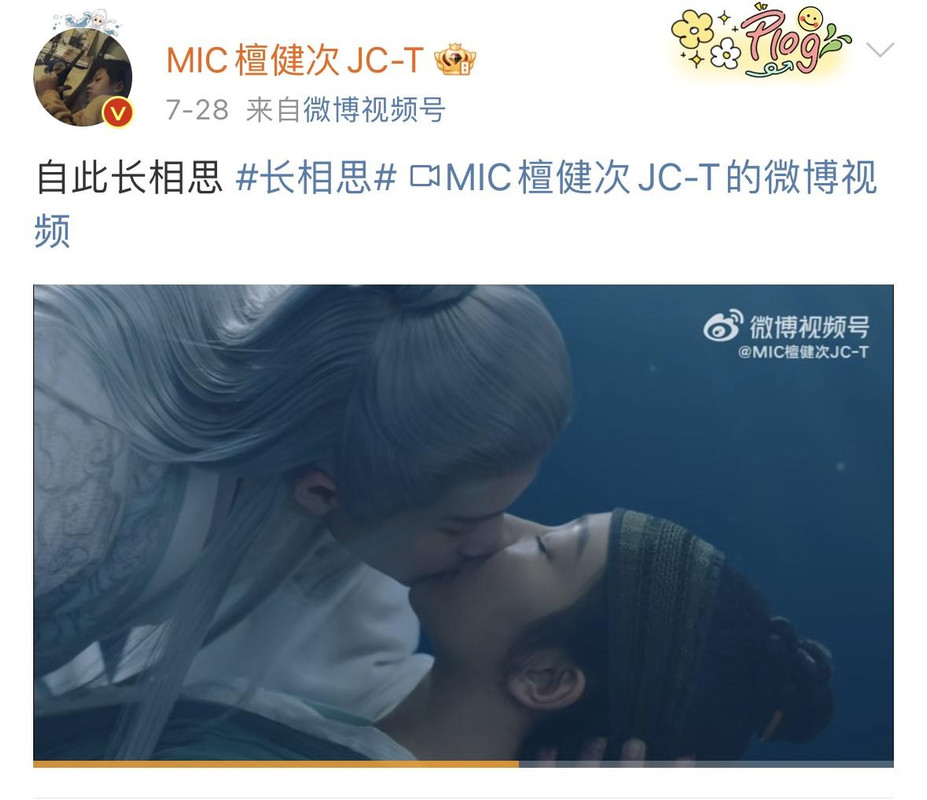 ⑥ The “pleasure” of the boudoir
⑥ The “pleasure” of the boudoir
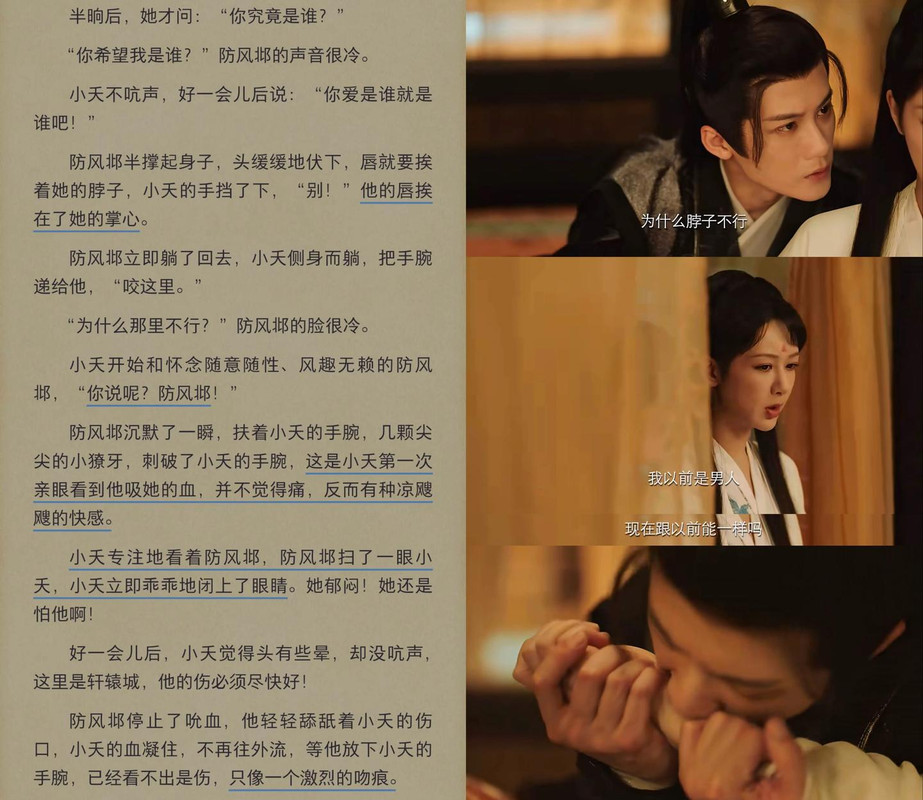
The neck won’t do—just biting the wrist already brings pleasure.
⑦ The great whirlpool — “Waves surging wildly”
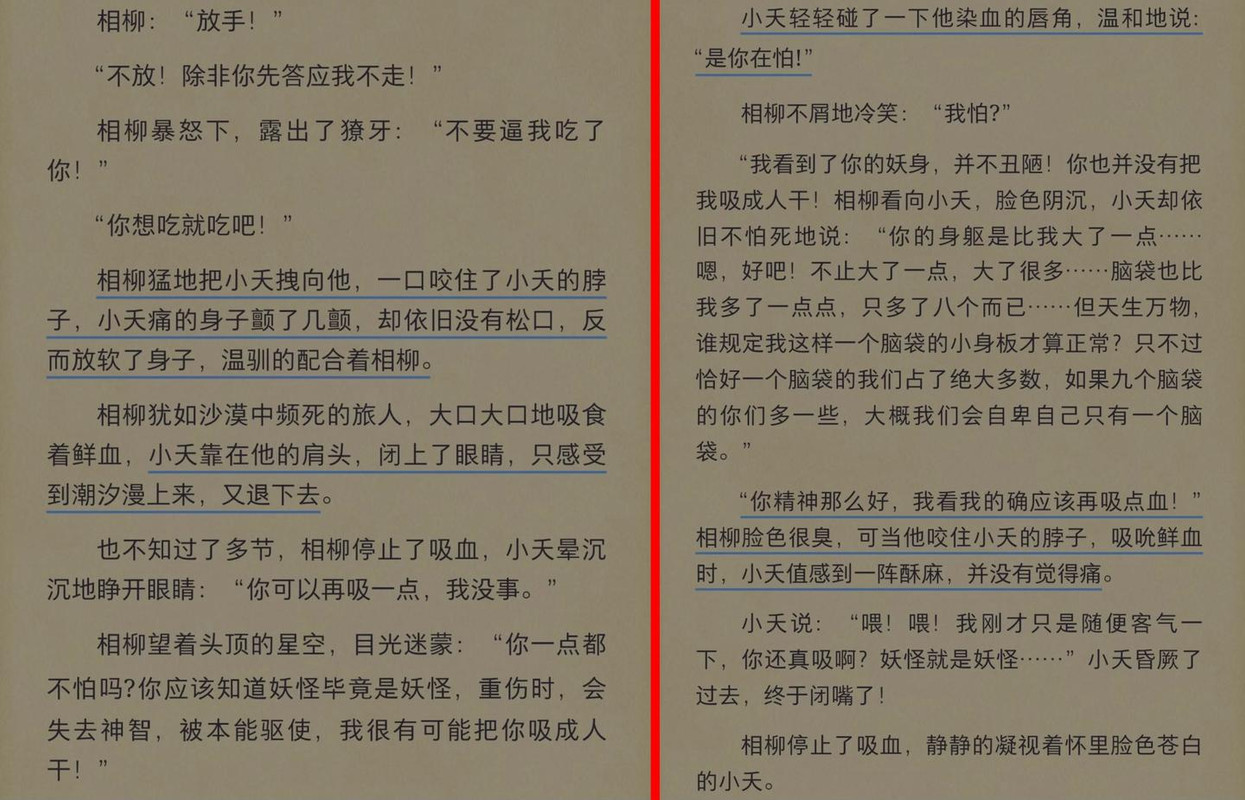
Couldn't resist—took two bites.
⑧ Farewell kiss at Gourd Lake
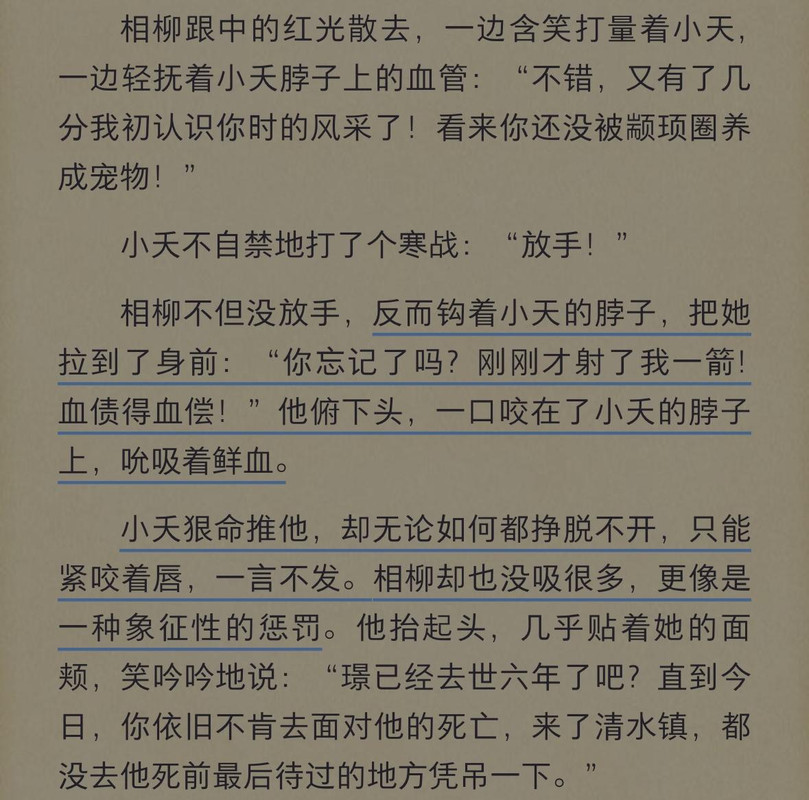
❷ Sea and Sky Moon / The Moon
The bright moon carries longing
① Admiring the sea and sky moon together
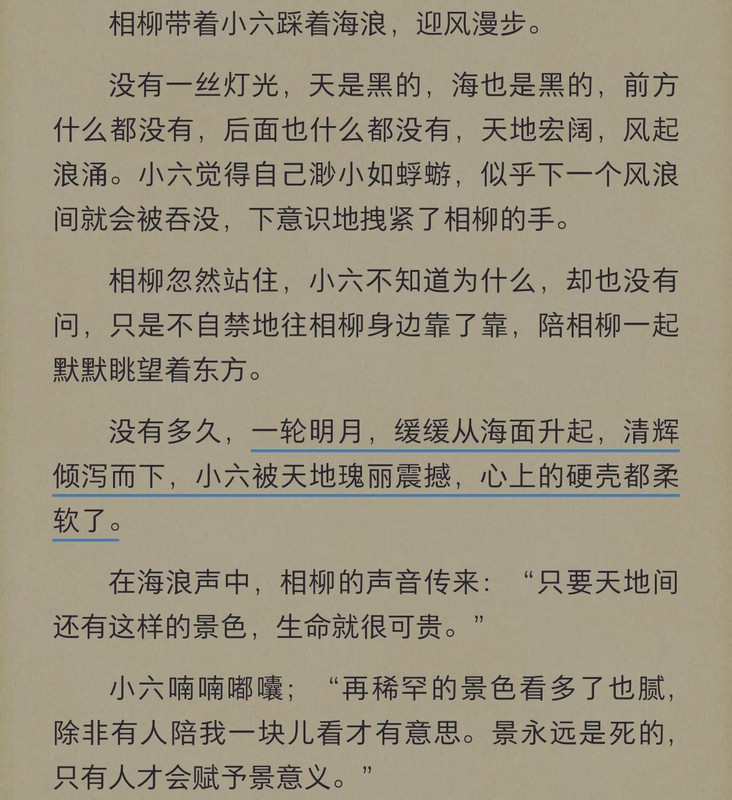
Even the hard shell has softened.
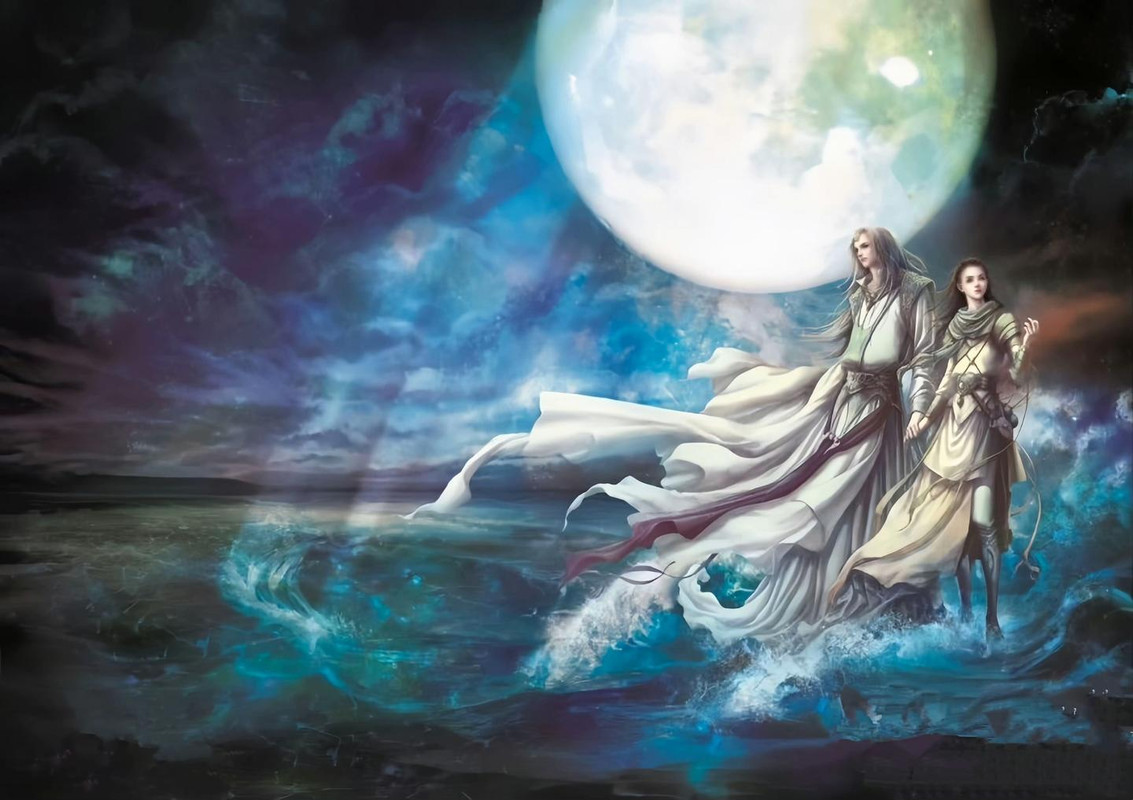
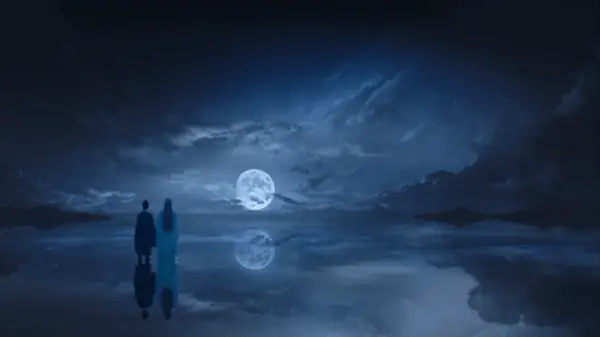
The moon above the sea is the same as the moon in the sky;the person before my eyes is the one in my heart.
[Original text from Love in a Fallen City by Zhang Ailing (Eileen Chang):
The moon above the sea is the same as the moon in the sky;the person before my eyes is the one in my heart.
The heart has always been that of a bystander,but when the moment comes, one becomes the person in the play.
Explanation:
Even though we know that everything in this world is ultimately an illusion—like flowers in a mirror or the moon reflected on water—and that forcing it is futile, when the person we love stands before us, we still become infatuated, still hold on tightly.
One may believe they’ve seen through the chaos and entanglements of the mortal world with clarity, but when it’s their turn, they become like a character in a play—unable to see the truth clearly, helplessly falling deeper and deeper, unable to escape.]
② Attempt to persuade Xiangliu to surrender ends in failure
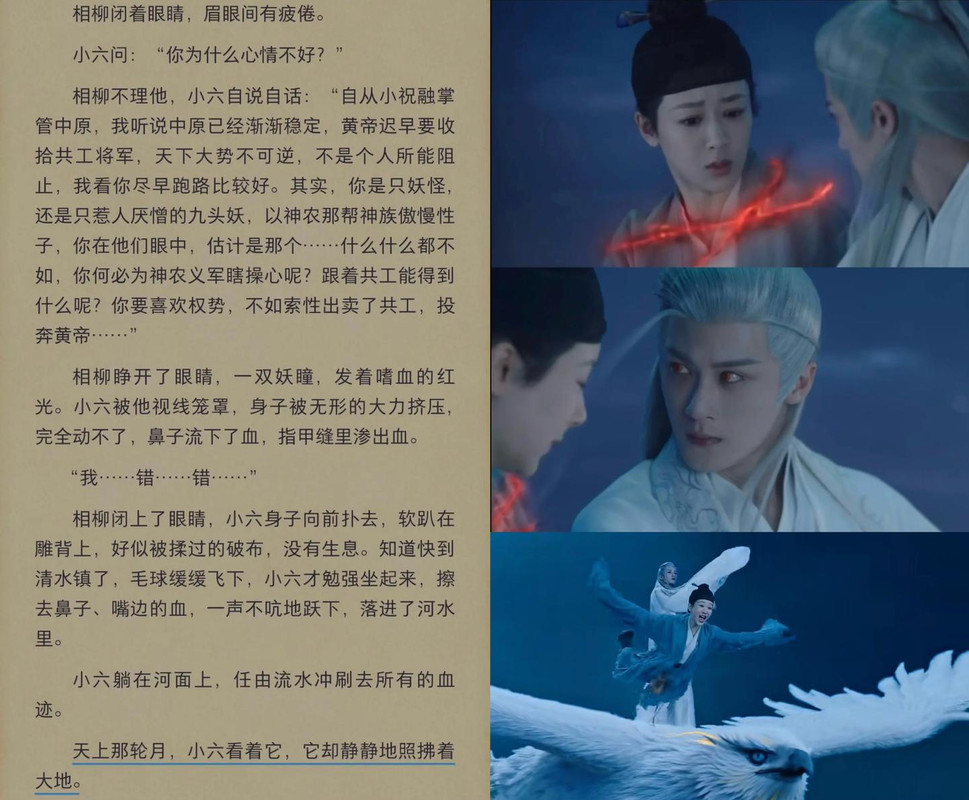
I had intended to offer my heart to the bright moon,but alas, the moon shines over the ditch.
③ Gazing at the moon, longing for someone
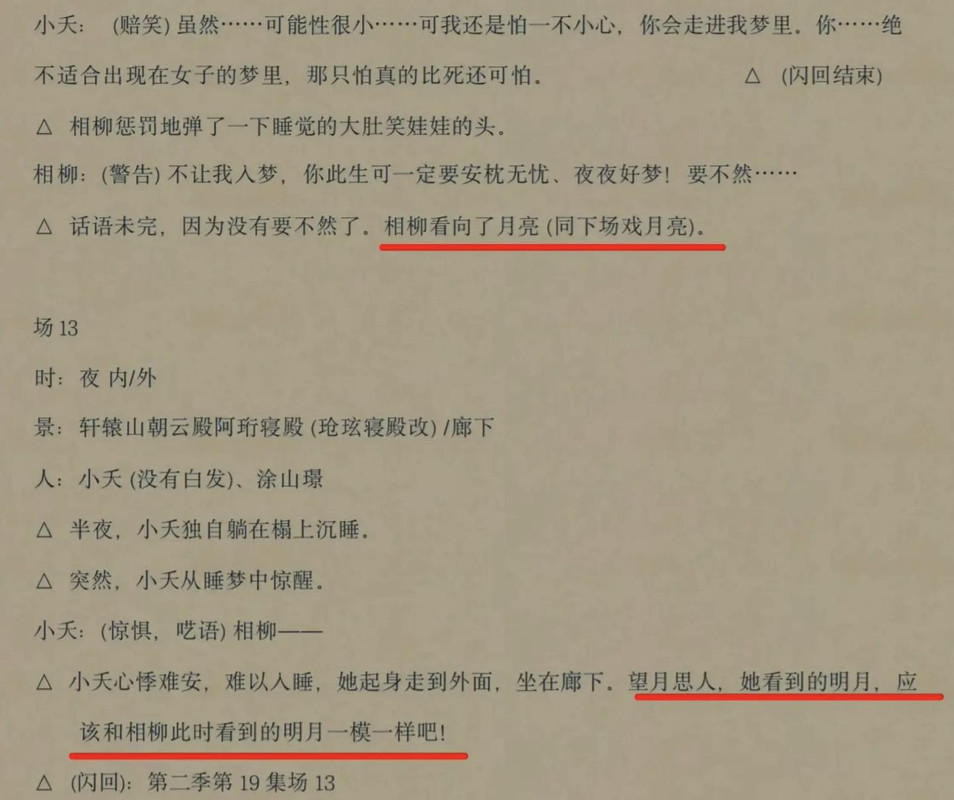
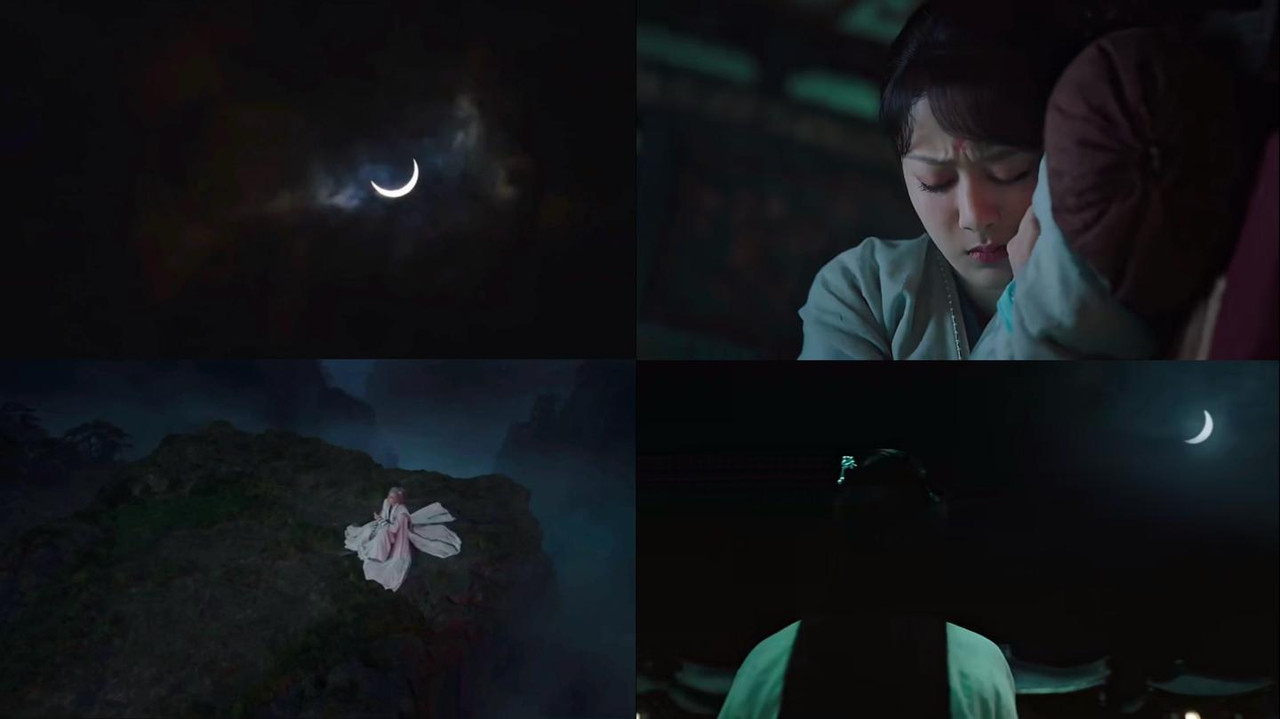 Wishing us lasting peace and happiness,and to share the beauty of the moon even when a thousand miles apart.
Wishing us lasting peace and happiness,and to share the beauty of the moon even when a thousand miles apart.
(But… these two moons don’t exactly look identical, do they?
Are we sure it’s the same one?)
❸ Octopus / Nine-headed Demoness
① Octopus
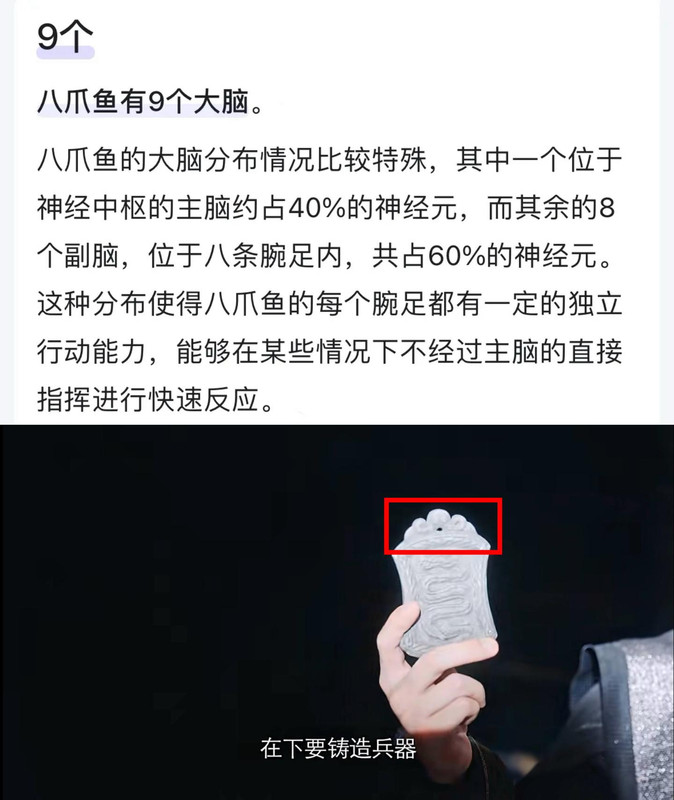 [ An octopus has nine brains.
[ An octopus has nine brains.
The distribution of an octopus's brains is quite unique. One central brain, located in the nervous system's control center, contains about 40% of the total neurons. The other eight auxiliary brains are located in each of its eight arms, collectively containing the remaining 60% of the neurons.
This distribution allows each arm of the octopus to have a certain degree of independent movement, capable of reacting quickly in some situations without direct commands from the central brain.]
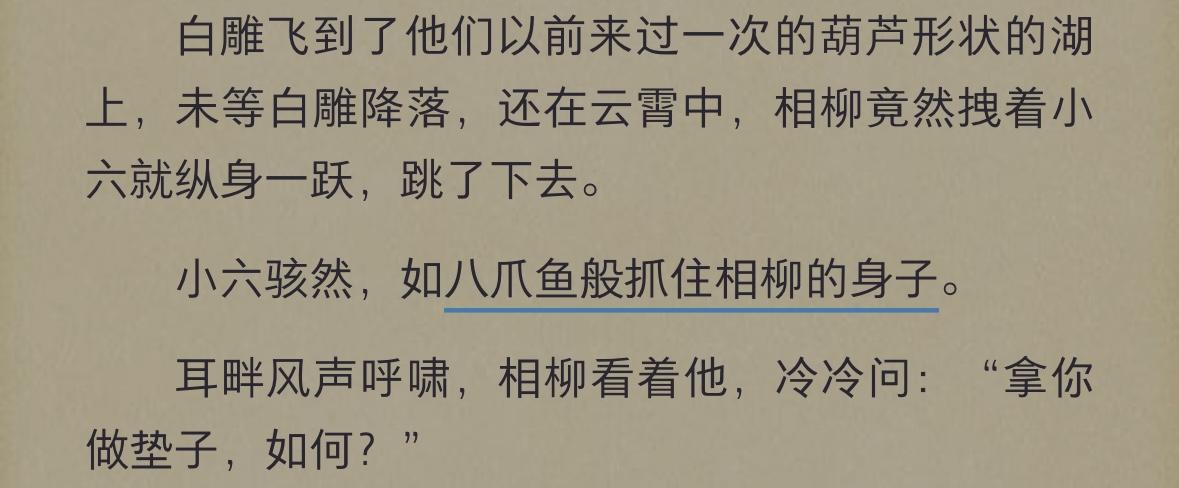
Xiao Liu was shocked and clung to Xiangliu’s body like an octopus.
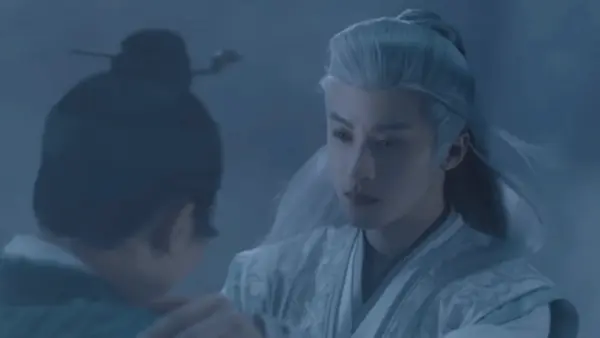
② Nine-headed Demoness
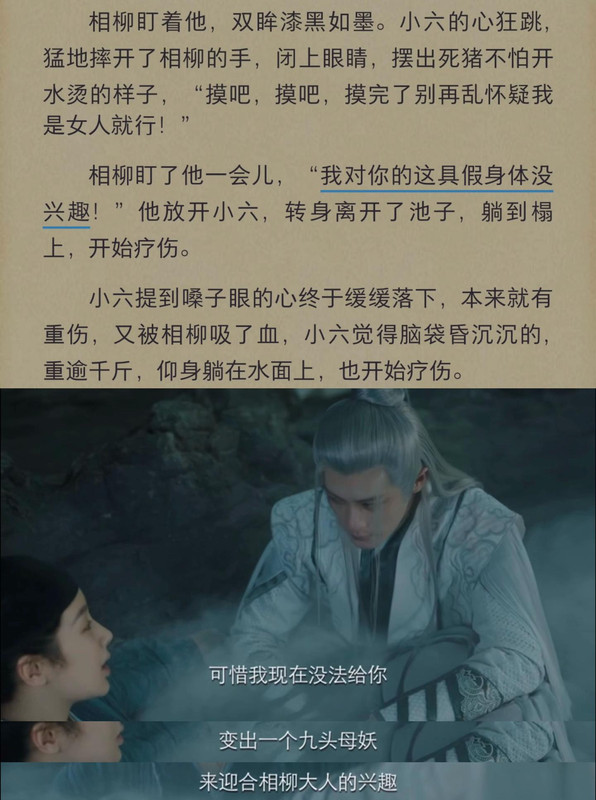
Xiaoyao’s Nine-Headed Demoness transformation plan
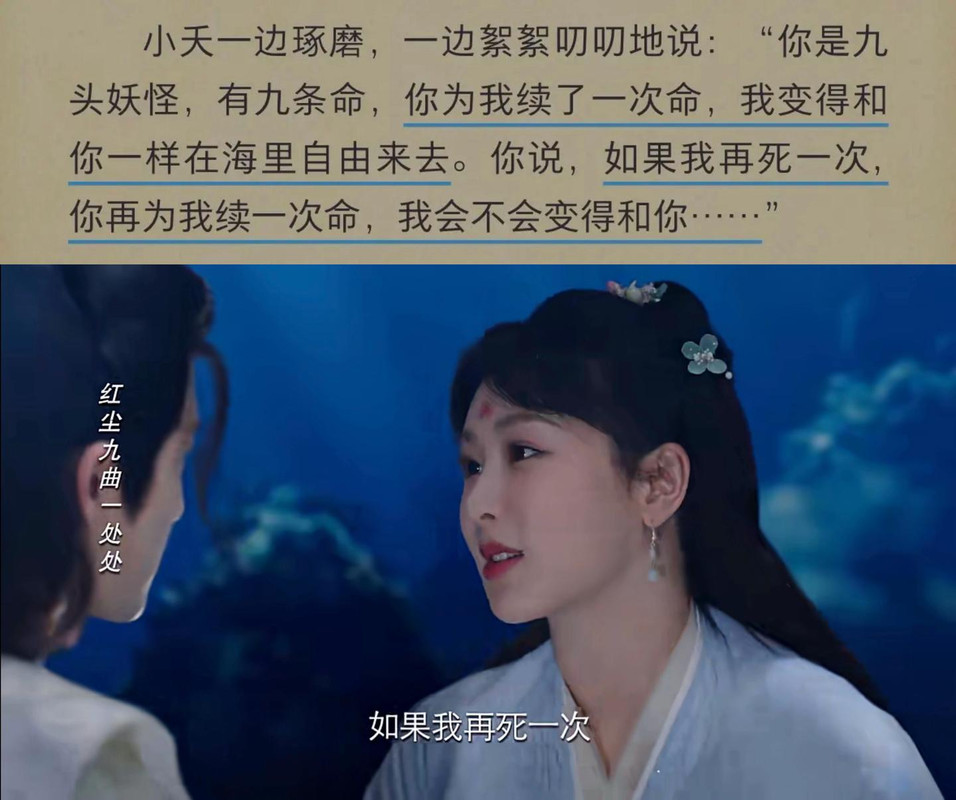
One more death, and the Nine-Headed Demoness transformation plan will be complete.
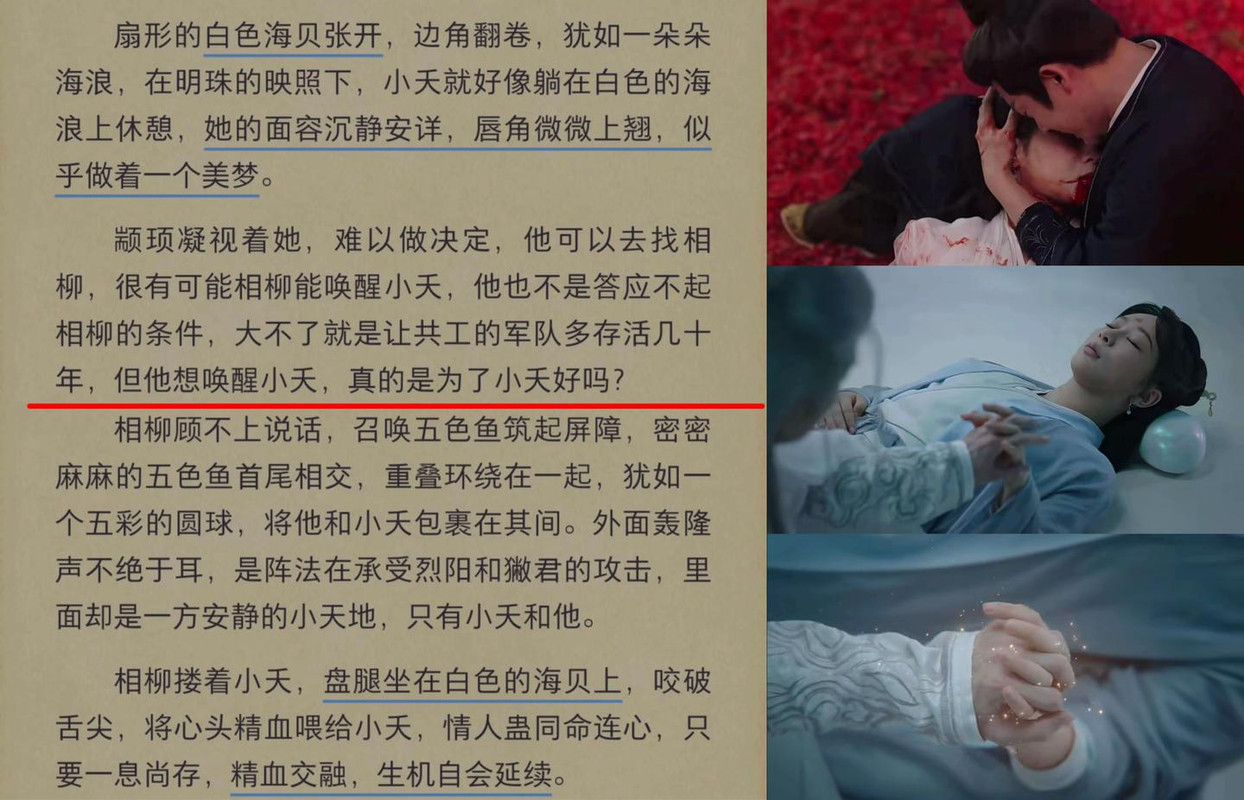
Dreaming sweetly inside a seashell—and the dream comes true.
◐ Joint property

▽–Why could Xiaoyao so easily say, “Die once more,” and tell Xiangliu to extend his life?
•Because Xiaoyao believes that since they planted the Lover’s Gu in each other, they are like a married couple—sharing one life, and thus she has equal rights to manage their joint property… (don’t question Sister Yao’s way of thinking).

She also has nine lives—what belongs to Xiangliu, belongs to her.
❹ Walking Through the “Four Seasons”
① Walking through the four seasons with you
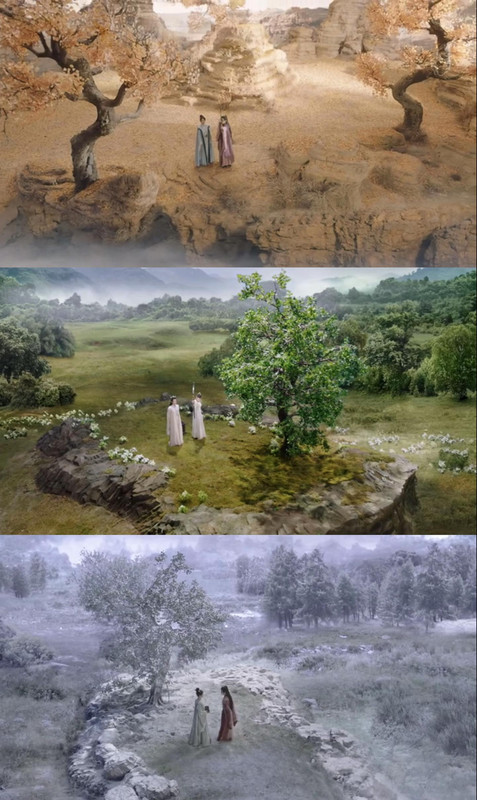
Three seasons
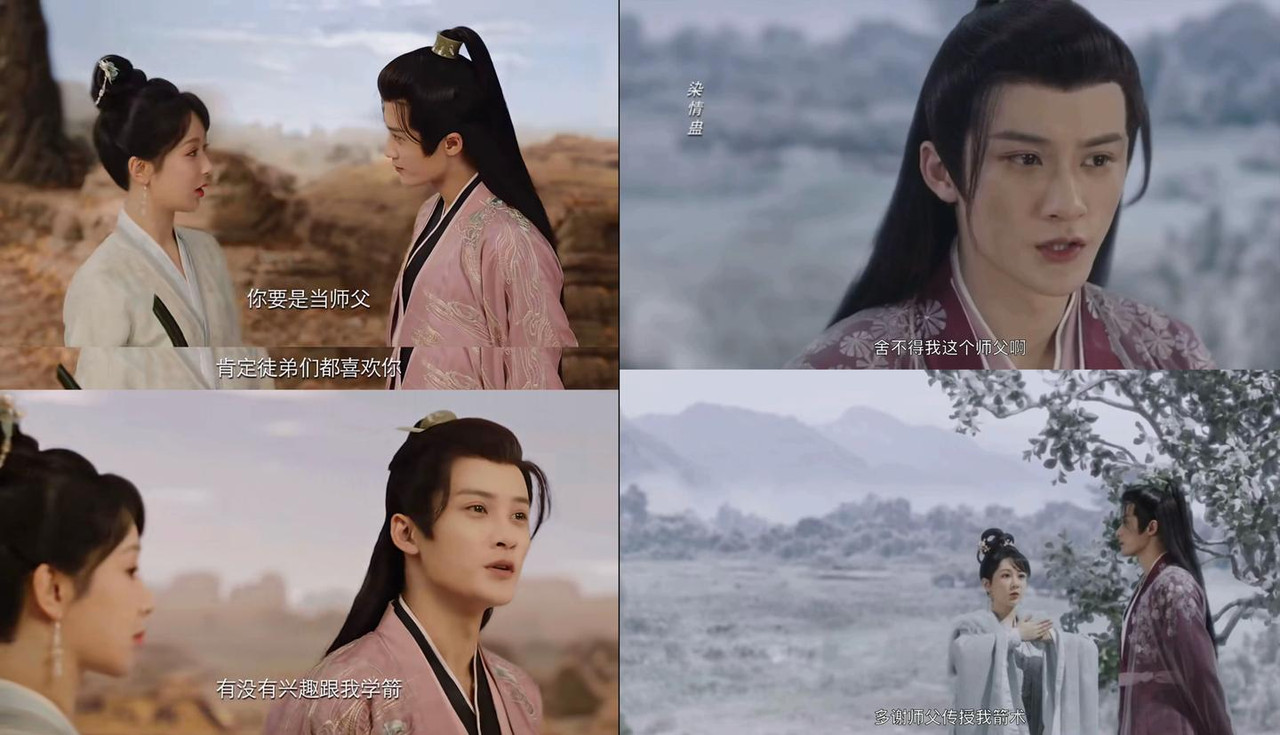
Secret confession: The disciple has feelings for the master
……
② In the blink of an eye vs. As if each day were a year
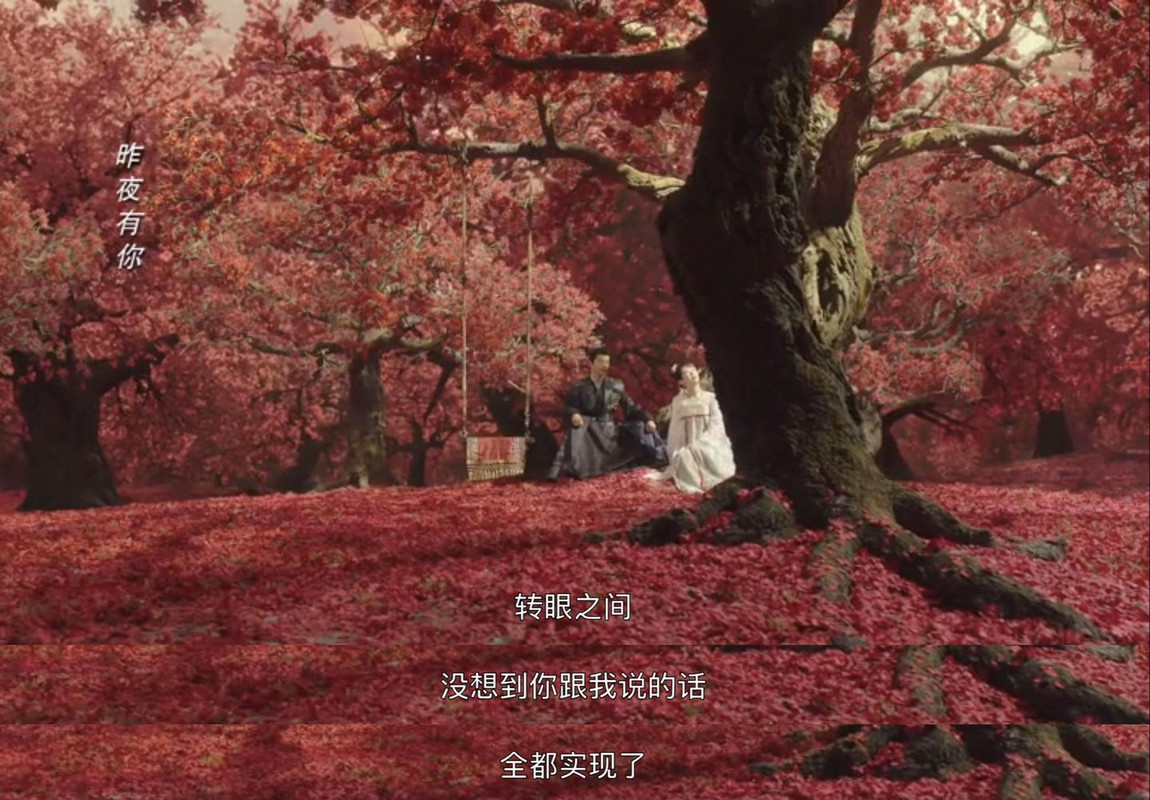
Xiaoyao’s 37 years: joyful days, time flew by quickly.
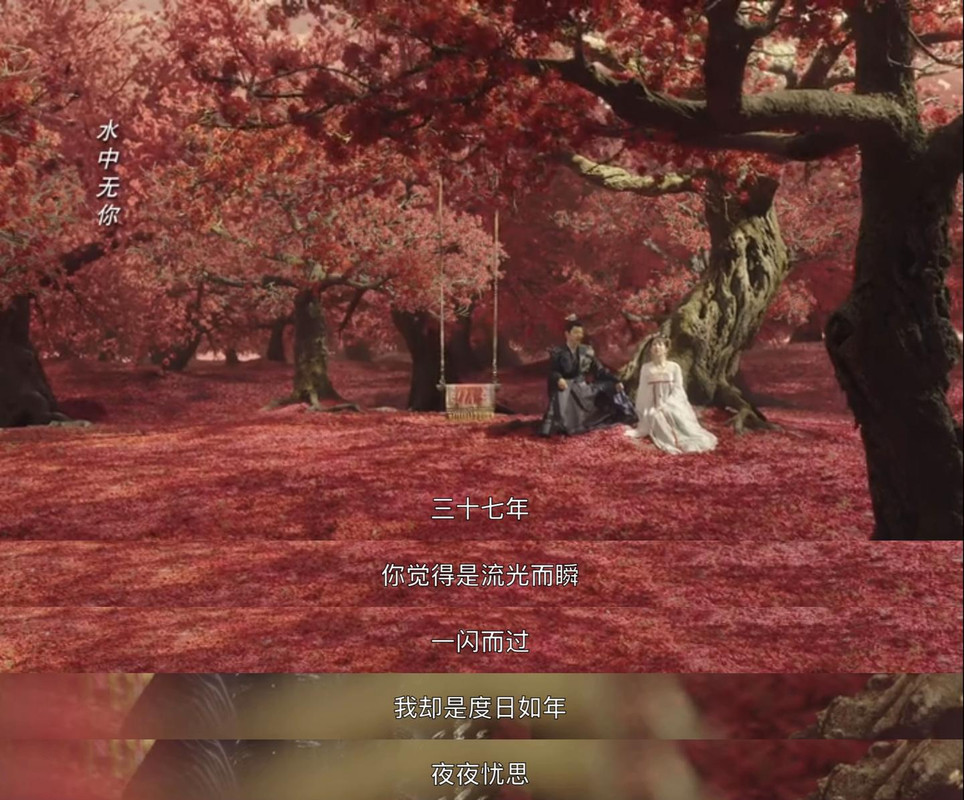
Cangxuan’s 37 years: days of suffering, each day felt like a year.
• Lirong Shop
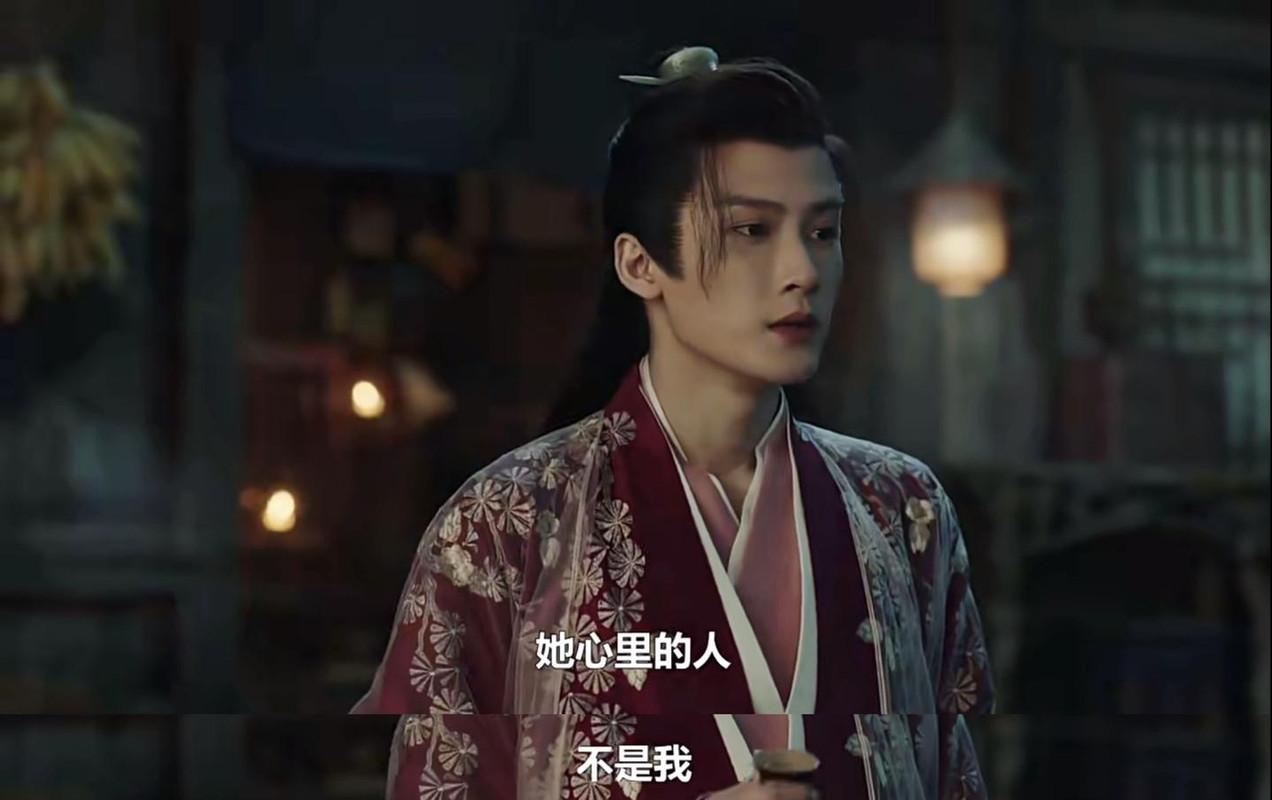
The one in her heart isn’t me (the most important person in her heart is cangxuan).
Here, “the person in her heart” is written to contrast with “the person she wants to see,” reflecting the shift in Xiaoyao’s mindset and choices...
(The drama version made some adjustments to cangxuan’s feelings toward Xiaoyao...)
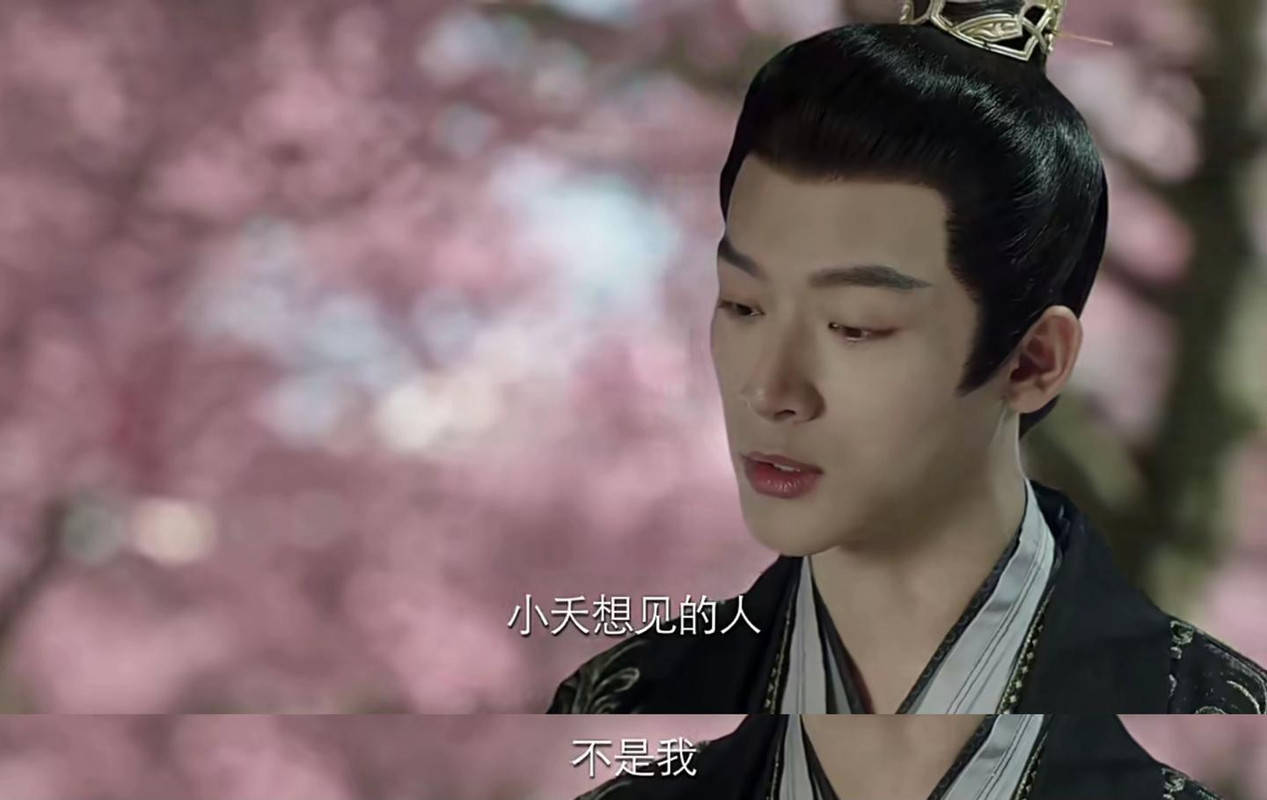
The person Xiaoyao wants to see isn’t me (the one she wants to see is Xiangliu).
①④ Song of White Hair / Li Bai
The brocade waters flow northeast,
Rippling waves rock a pair of mandarin ducks.
The male nests in the trees of the Han palace,
The female plays in the fragrant Qin grass.
Better to die a thousand deaths and have my silken wings shattered,
Than to endure separation in the clouds, torn apart in midair.
At this moment, Lady A Jiao is burning with jealous grief,
Sitting alone in the long gate palace, sorrowing till dusk.
If only the lord’s favor for me were deep,
Why would I begrudge spending gold to buy poems and prose?
When Sima Xiangru wrote a poem and received gold,
He, a man, embraced novelty and grew fickle at heart.
One day, he went to marry the girl from Maoling,
And Lady Wenjun composed the “White Hair Song” in response.
The waters that flow east will never return west,
Fallen flowers part from the branches, ashamed to return to the old forest.
Dodder vines are indeed heartless,
Swaying and tumbling with the wind.
Who made the creeping maidenhair bind,
Clinging forcefully without consent?
Two grasses can share one heart,
But human hearts are not as faithful as grass.
Do not roll up the dragon-hair mat,
Let him tangle his life in new threads.
Leave behind the amber pillow,
Perhaps a dream of him may still come.
Spilled water cannot be scooped back into a full cup,
The one who abandons me will not return again.
In ancient times, the favored never betrayed one another,
But now, I see only the tomb at Qingling Terrace.

[Li Bai’s “White Head Song” shares the same theme as the ancient poem “White Head Song” traditionally attributed to Zhuo Wenjun — both express the sorrow of an abandoned woman and a longing for steadfast love from a woman’s perspective.
However, Li Bai’s version differs from the ancient poem in that it incorporates the story of Empress Chen of Emperor Wu of Han, who spent a thousand gold pieces to buy a composition from Sima Xiangru in an attempt to regain his favor.]
["I would rather die a thousand deaths and have my silken wings shattered,
than bear to be separated like clouds parting in the sky."]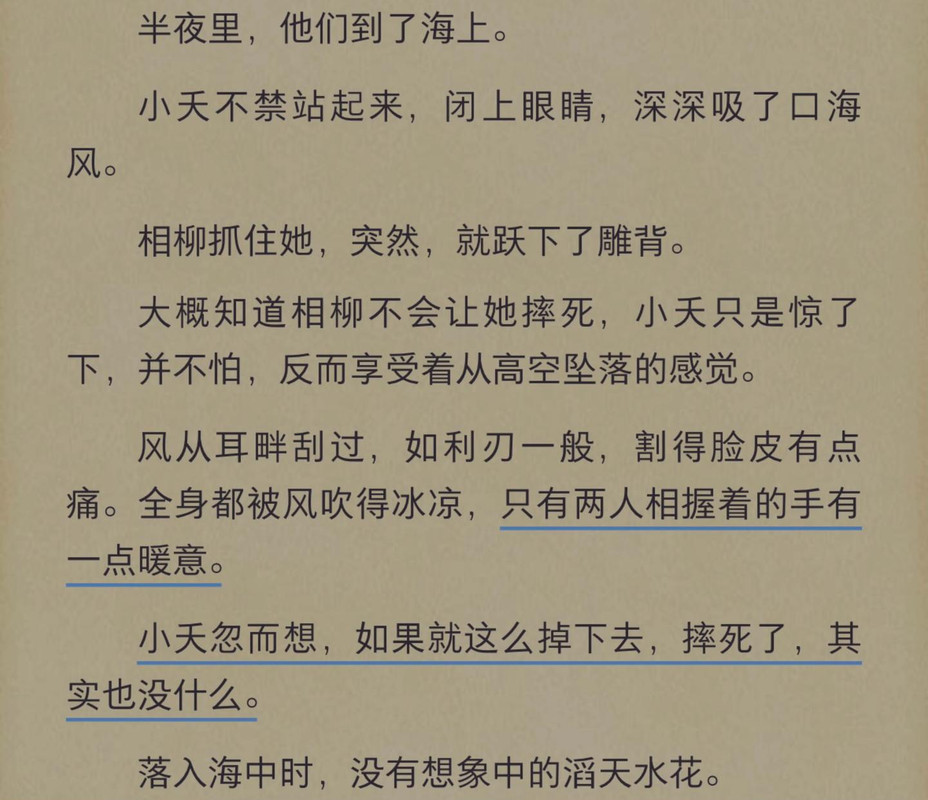
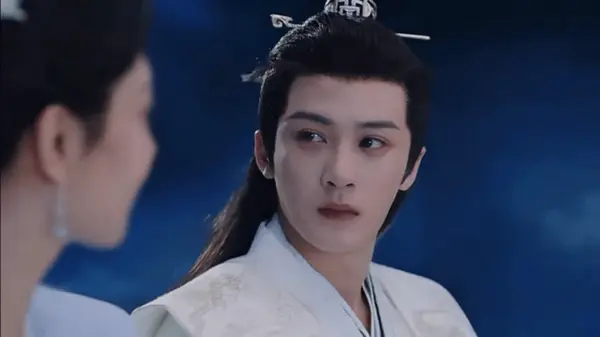
["Even two blades of grass share one heart; human hearts are not as united as grass."]
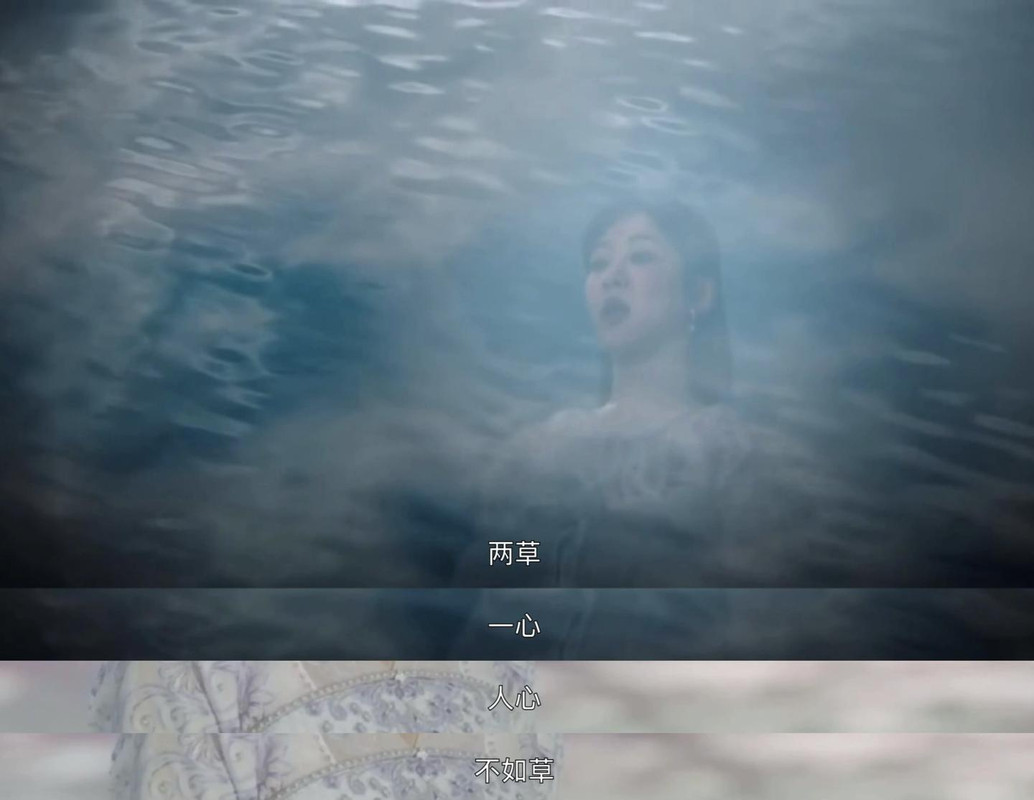 Even plants and trees can love each other with one heart; compared to that, the human heart is not even as faithful as grass and trees.
Even plants and trees can love each other with one heart; compared to that, the human heart is not even as faithful as grass and trees.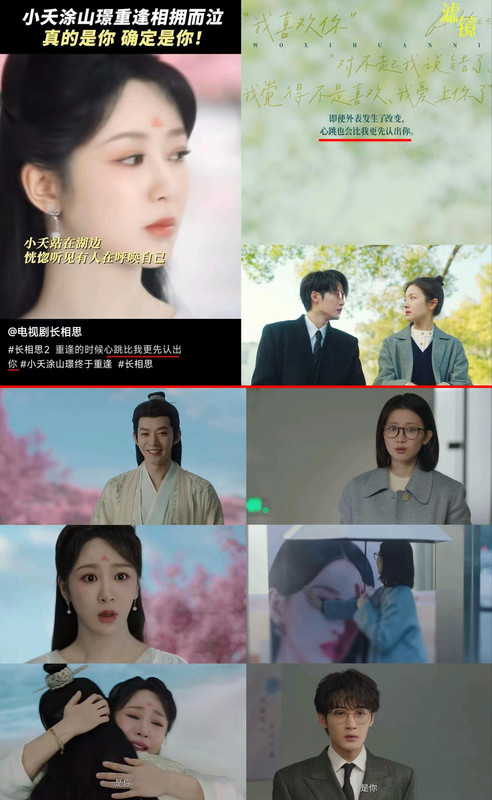 When we reunited, my heartbeat recognized you before I did.
When we reunited, my heartbeat recognized you before I did.
⑥ Zheng Feng · Wild Vines and Grasses / Book of Songs (Shijing)
In the wild there are creeping grasses,glistening with dewdrops.
In the wild there are creeping grasses,the dewdrops glisten and flow.
There is a beautiful person, graceful and elegant.By chance we meet—may we go forth together,in goodness and harmony.
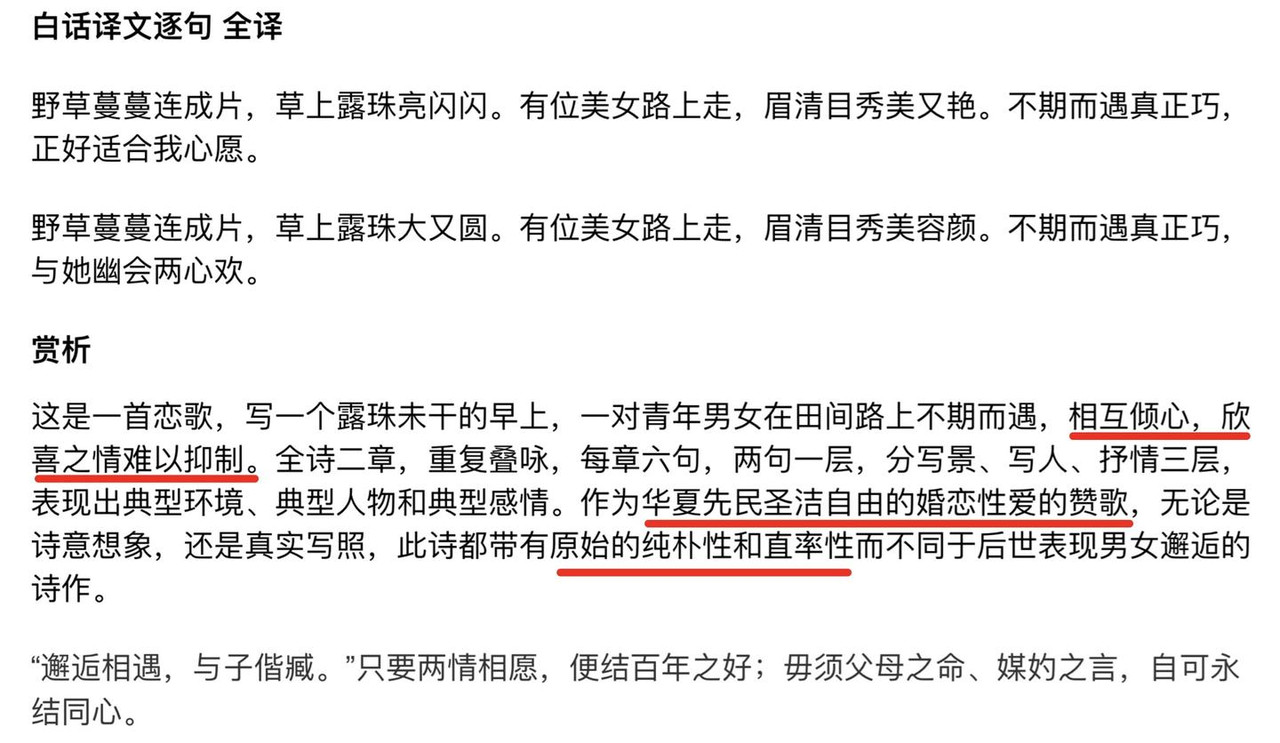
[Vernacular Translation – Line-by-Line into English:
Wild grasses spread and tangle across the fields,Dewdrops on the grass sparkle and shine.
A beautiful woman walks along the road,With delicate brows and bright eyes, radiant and lovely.
A chance encounter, truly a coincidence,Just what my heart has longed for.
Wild grasses spread and tangle across the fields,Large, round dewdrops rest upon the grass.
A beautiful woman walks along the road,With delicate brows and bright eyes, her beauty shines.
A chance meeting, perfectly timed,Being with her, our hearts are filled with joy.
Appreciation / Analysis:
This is a love song describing an early morning when the dewdrops have yet to dry.
A young man and woman unexpectedly cross paths along a country road and are instantly drawn to each other—Their joy and affection are difficult to contain.
The poem is composed of two stanzas, each with six lines.
Each pair of lines forms a layer—first depicting the setting, then the characters, and finally expressing emotion.
It portrays a classic scene, classic characters, and classic emotions.
As a tribute to the sacred and free love and marriage customs of the ancient Chinese people,whether taken as poetic imagination or a reflection of reality,this poem carries a sense of original purity and directness that distinguishes it from later literary portrayals of romantic encounters between men and women.
The line "By chance we meet, and may we live well together" expresses the idea that—as long as both hearts are willing, they can form a lasting bond,without needing parental approval or a matchmaker’s arrangement—a true union of hearts can come naturally.]
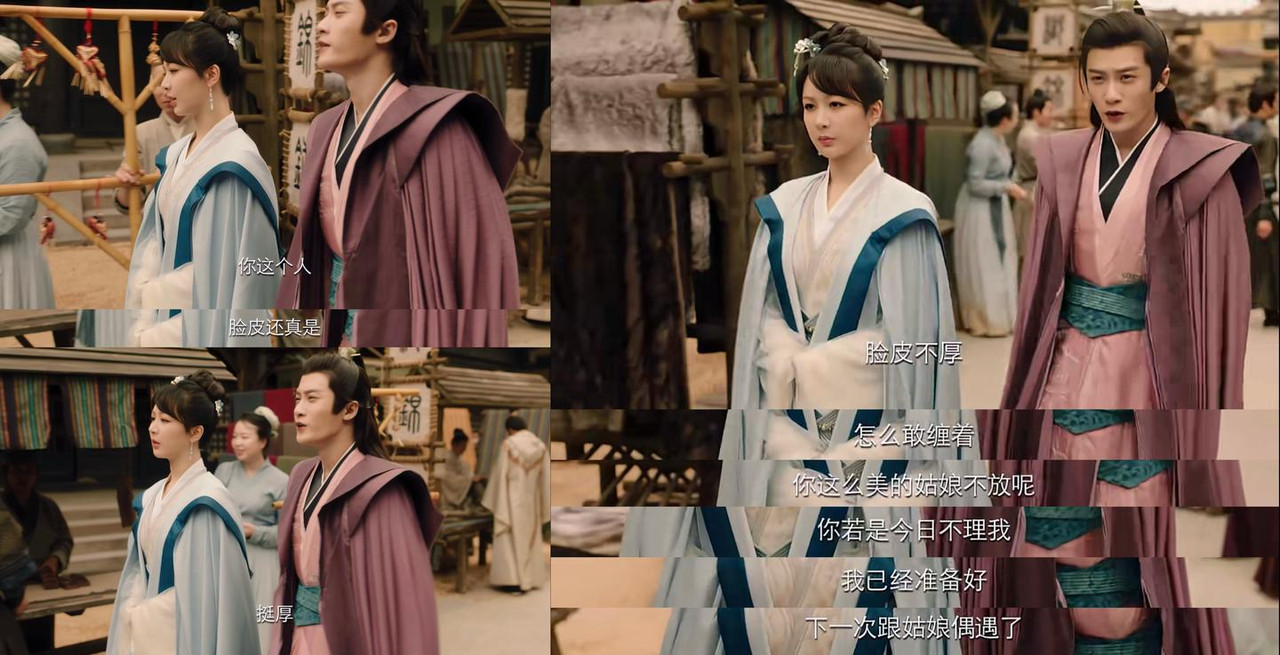
[Xiaoyao:You really are quite thick-skinned.
Xiangliu:Pretty thick.
Xiangliu: If I weren’t thick-skinned,how would I dare cling to such a beautiful lady like you and not let go?
If you ignore me today,I’m already prepared to “accidentally” run into you again next time.]
[A chance encounter with a beautiful woman by the roadside.]
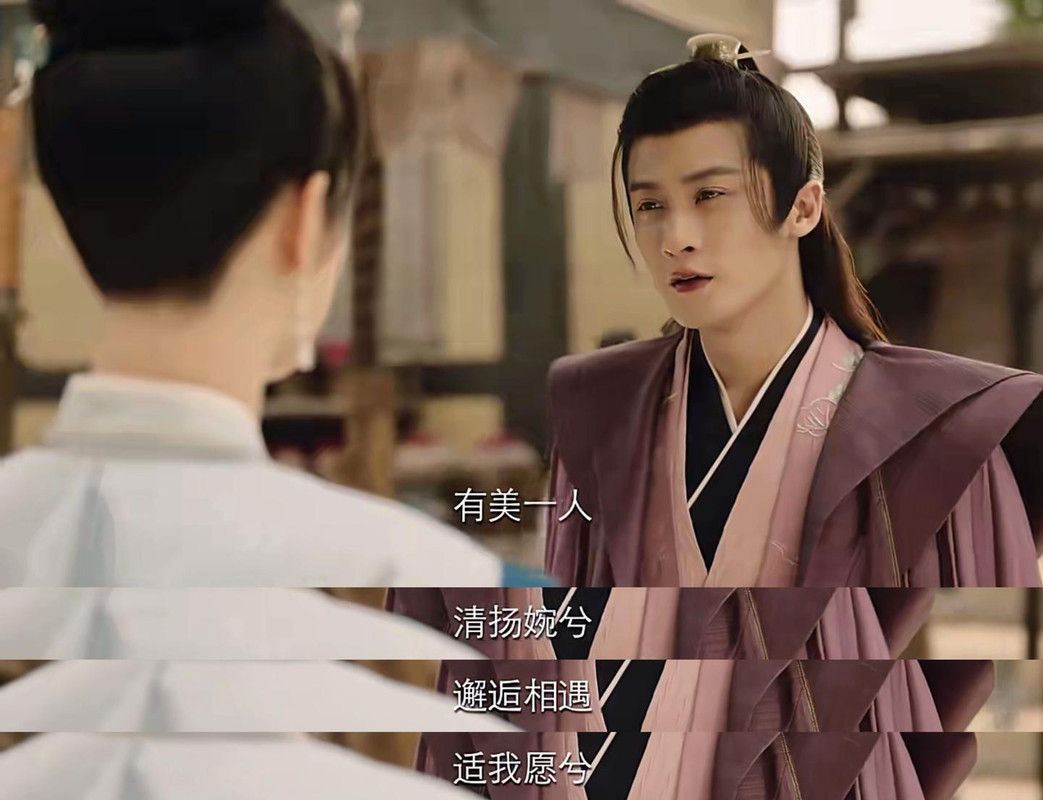
[Xiangliu:There is a beautiful person,Graceful and elegant.By chance we meet,Just as I have wished.]
Has Xiangliu always wanted to “live in harmony with you”?(Implying: Has Liuzi always longed for a lasting union or life together with you?)
❶❸ Xiao Yao’s “lotus-themed items”
(Lotus represents Xiang Liu — see Directory_1-❹-②)
The prop team of the drama followed the hidden storyline, and there are many “lotus-themed items” that Xiao Yao collects and uses… (There are some lotus props I can’t quite identify — everyone can try spotting them in the drama. I’ll also check what other creators have discovered.)
• Lotus-shaped dish and plate
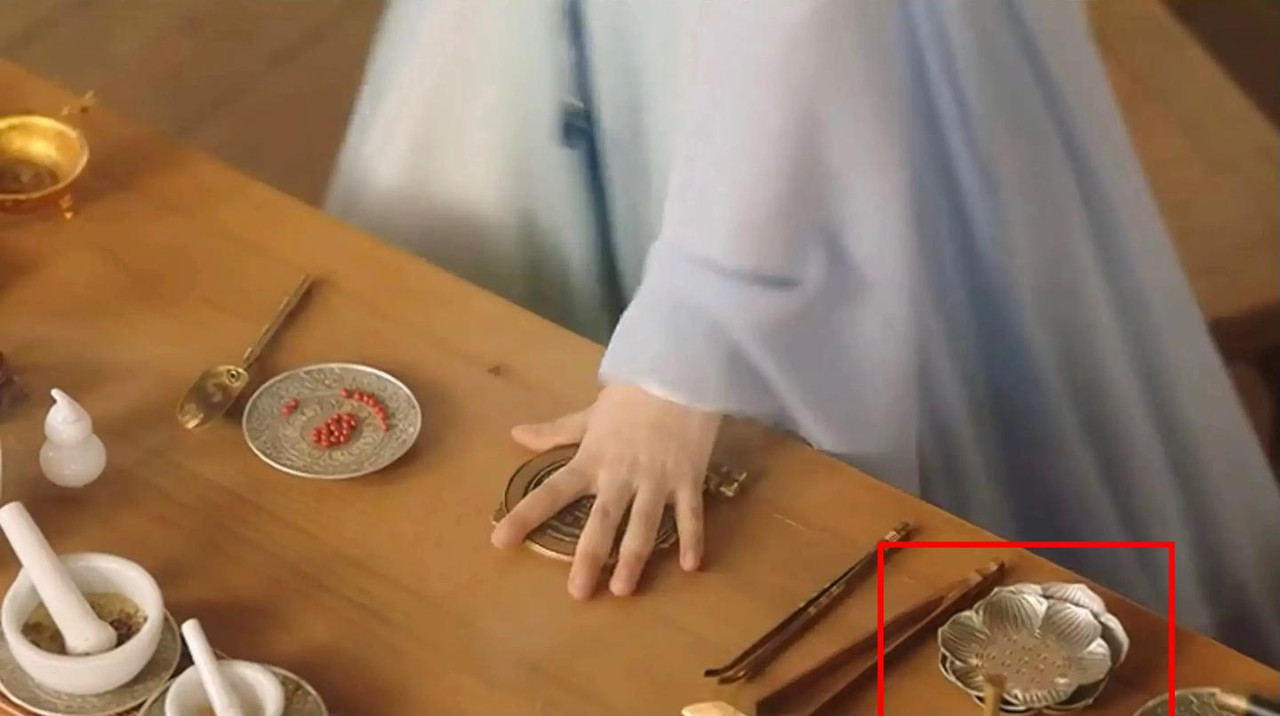
• Pearl lotus hairpin
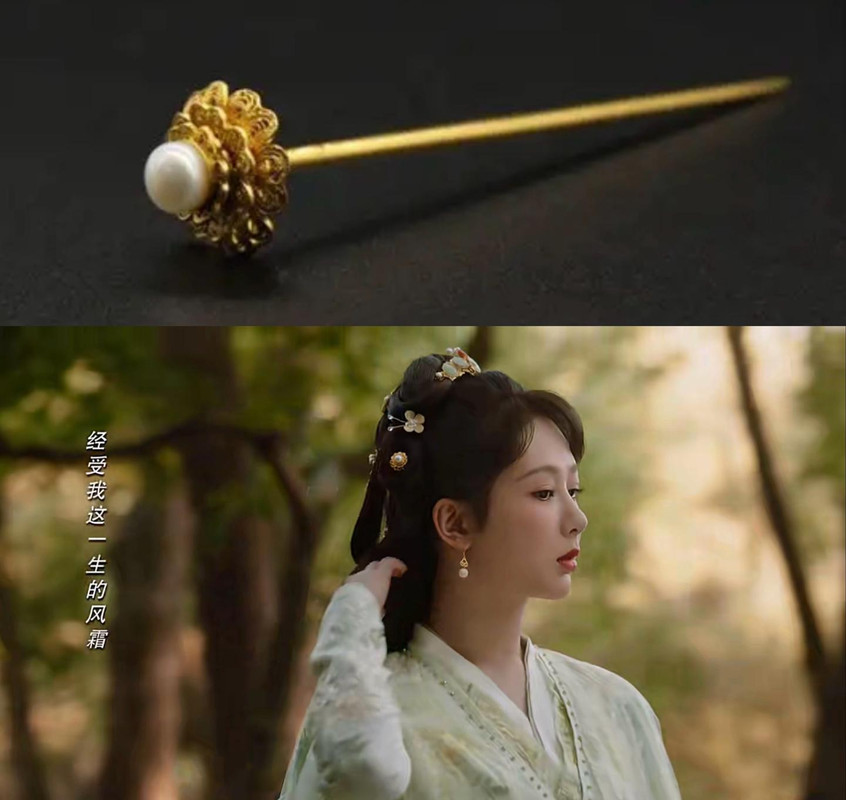
From the internet
• Lotus tassel hairpin
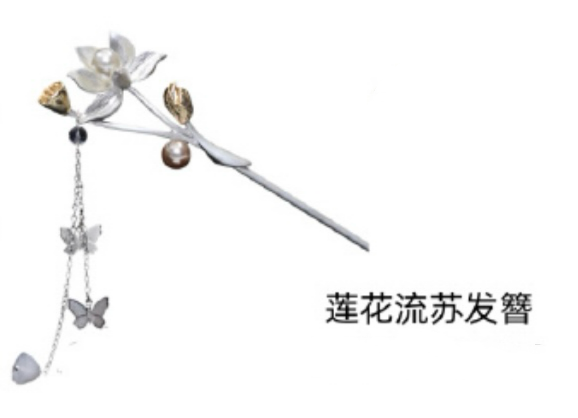
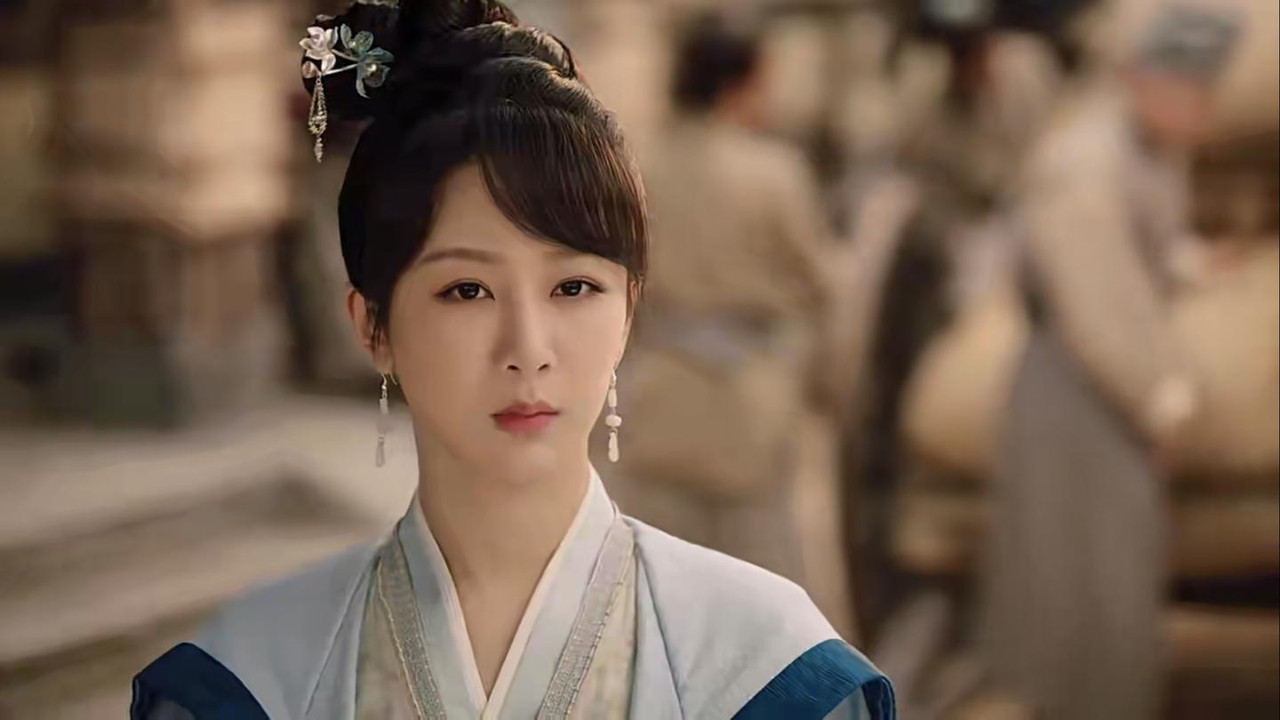
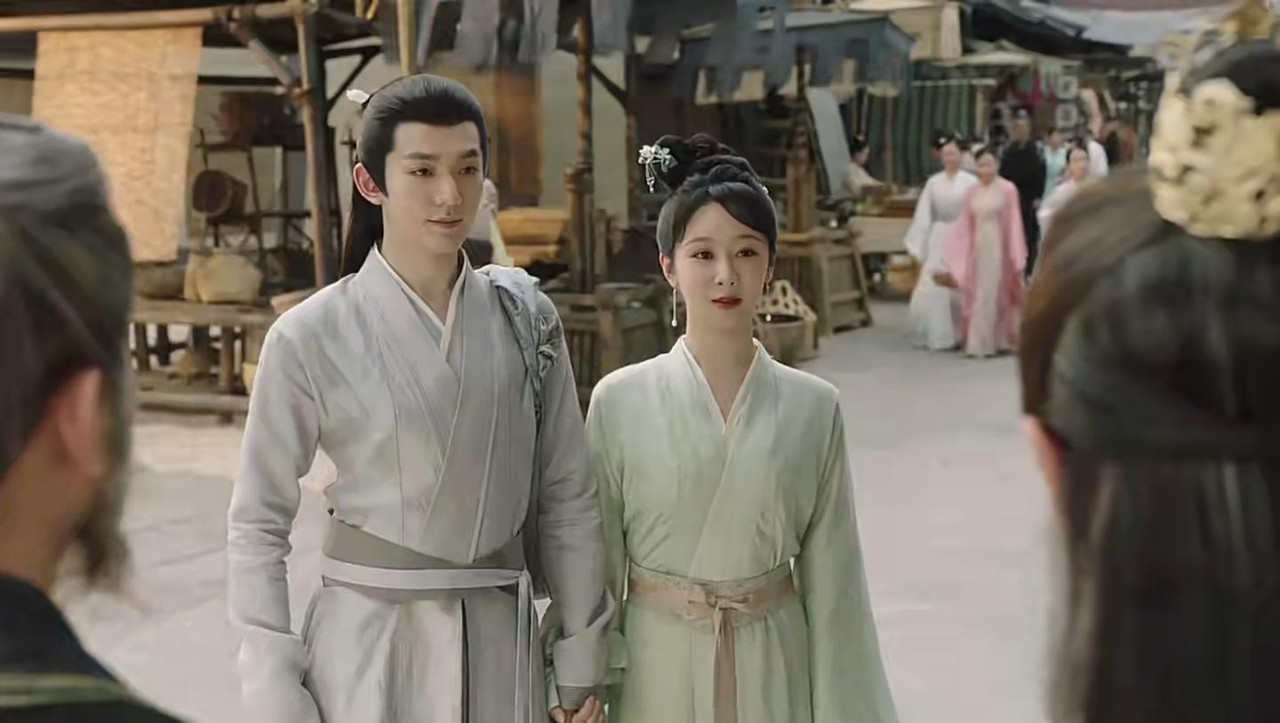
• Lotus-patterned handkerchief
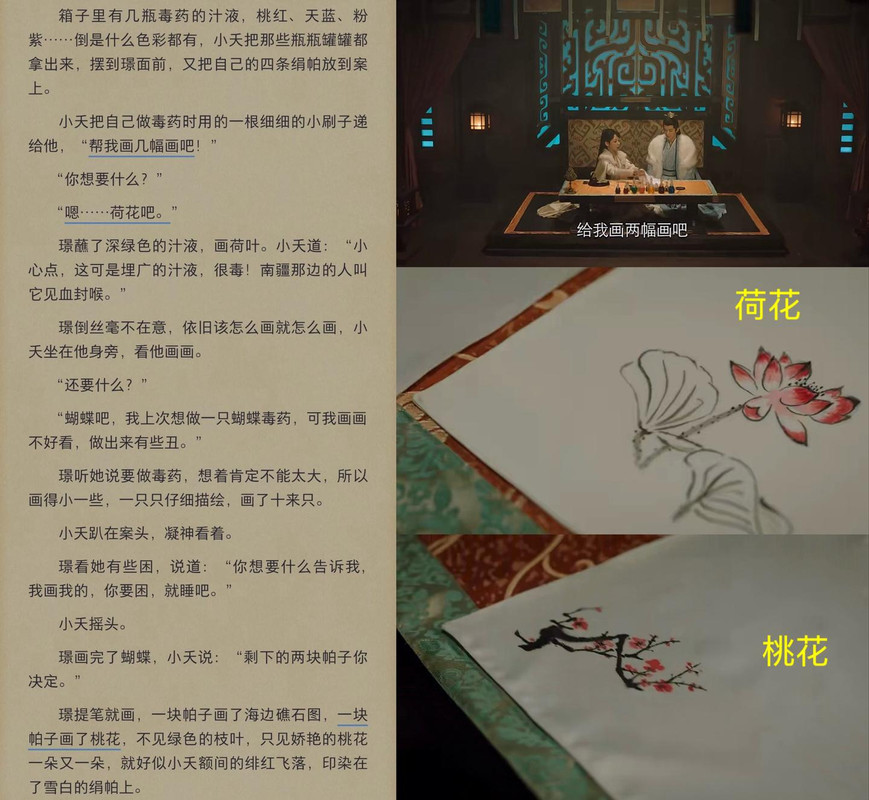
Ask Tushan Jing to paint lotuses, preparing to make lotus poison.
• Golden frog and lotus leaf hairpin
This lotus leaf hairpin appears frequently with various outfits.
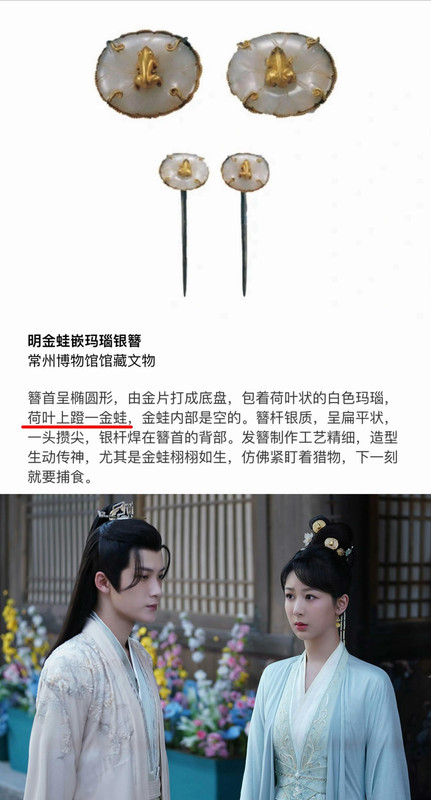
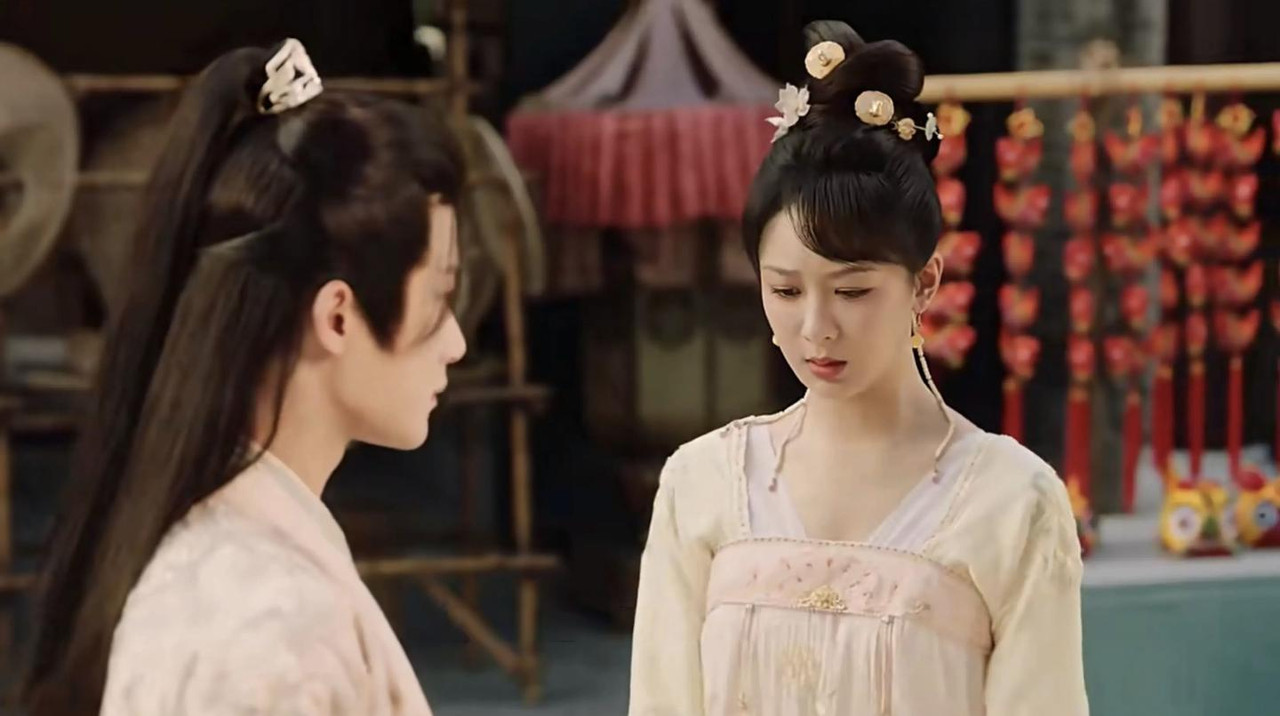
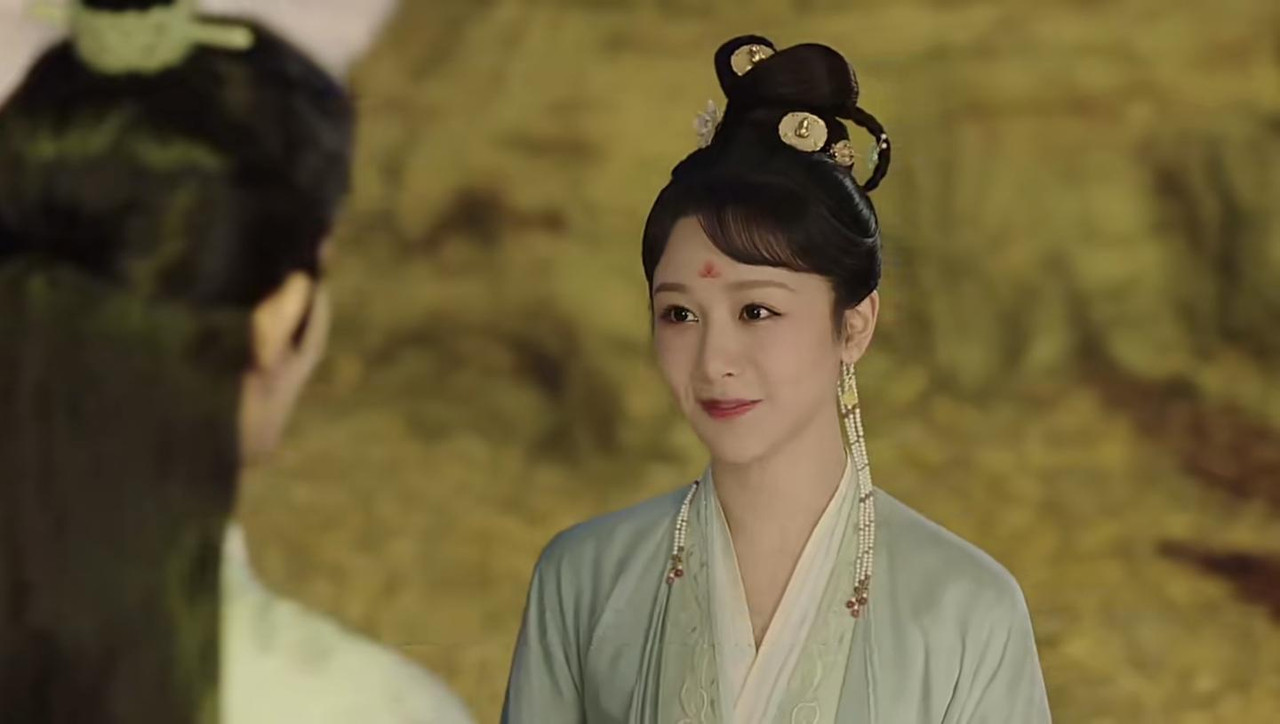
• Lotus-shaped box
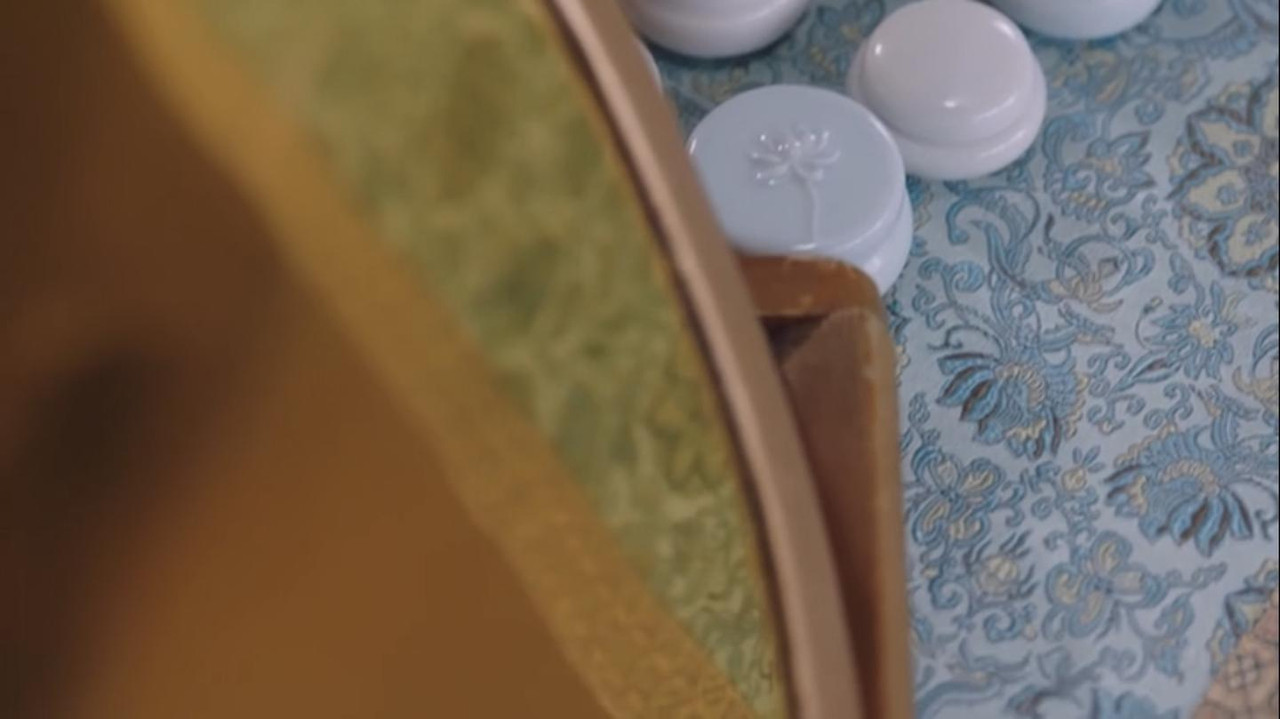
Lid carved with lotus design (from netizens)
• Lotus seedpod hairpin
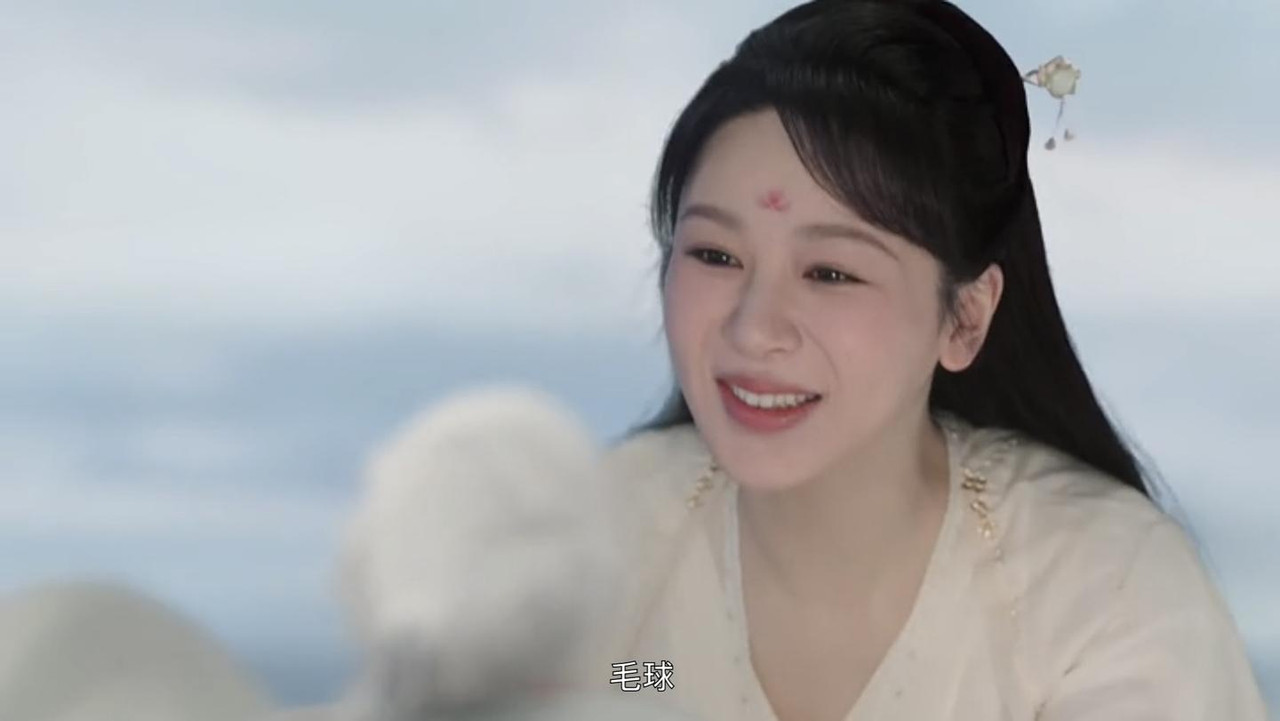
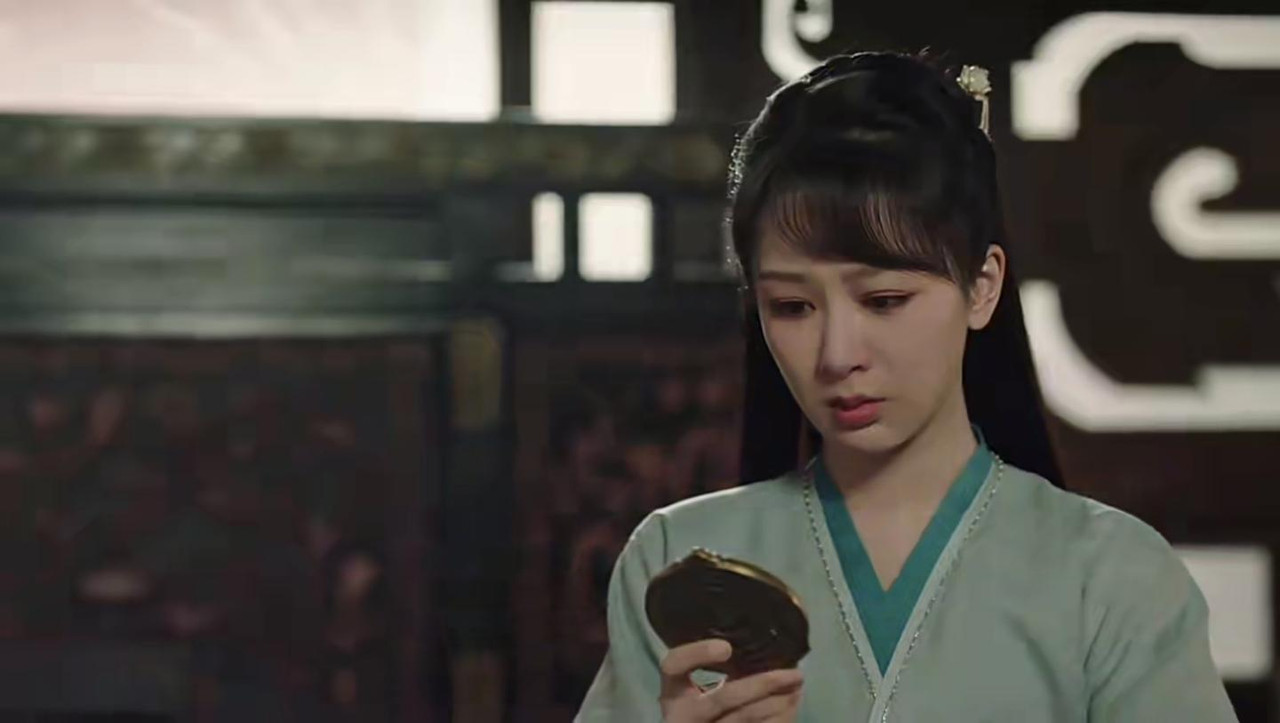
• Lotus-themed wedding attire
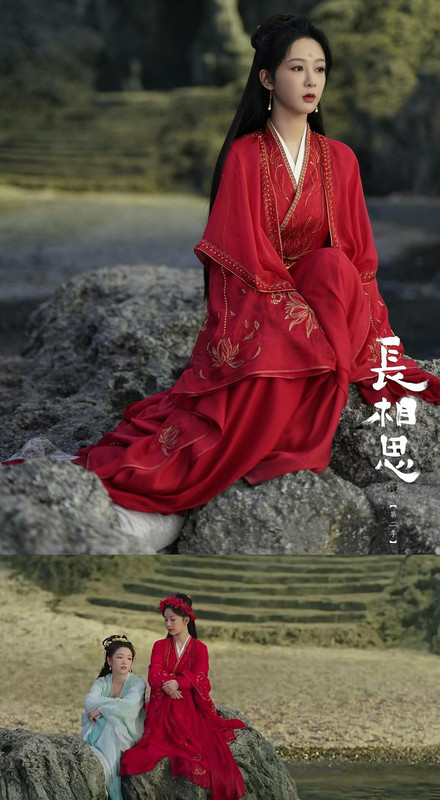
Is that a lotus flower on Xiaoyao and Xiangliu’s wedding outfit?
• Auspicious cloud lotus seedpod earrings
These lotus earrings also appear quite frequently.
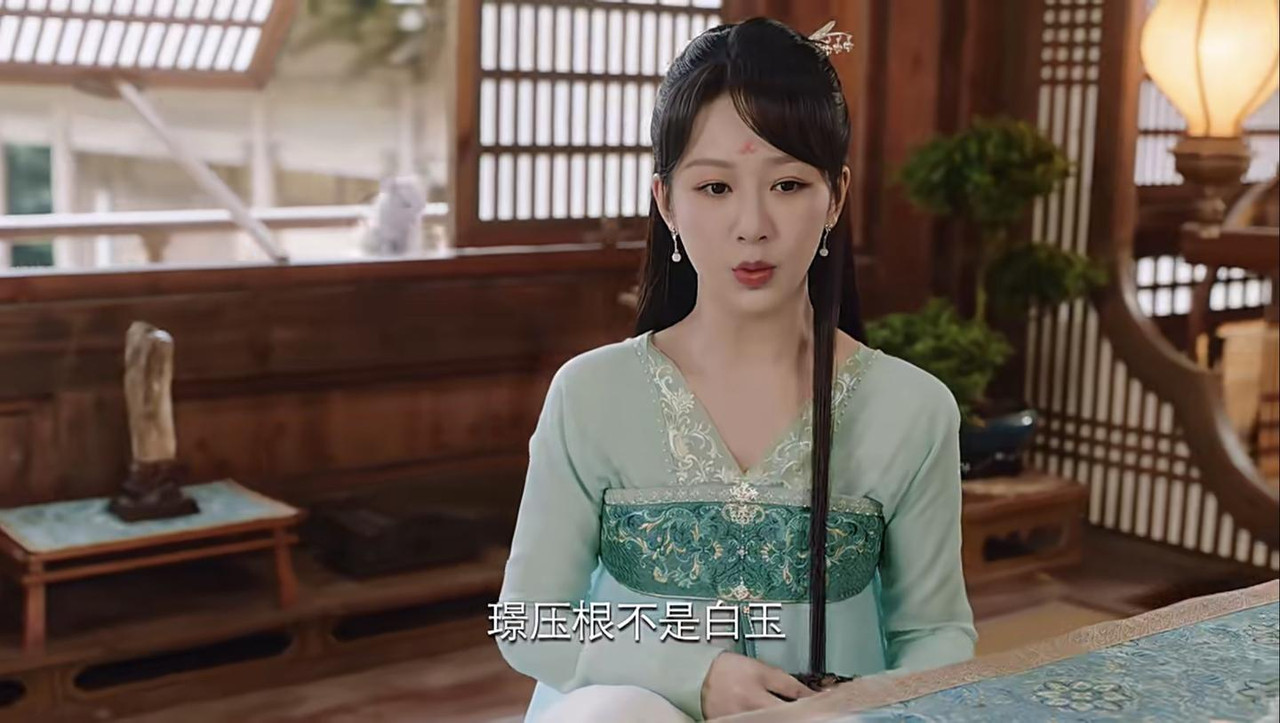
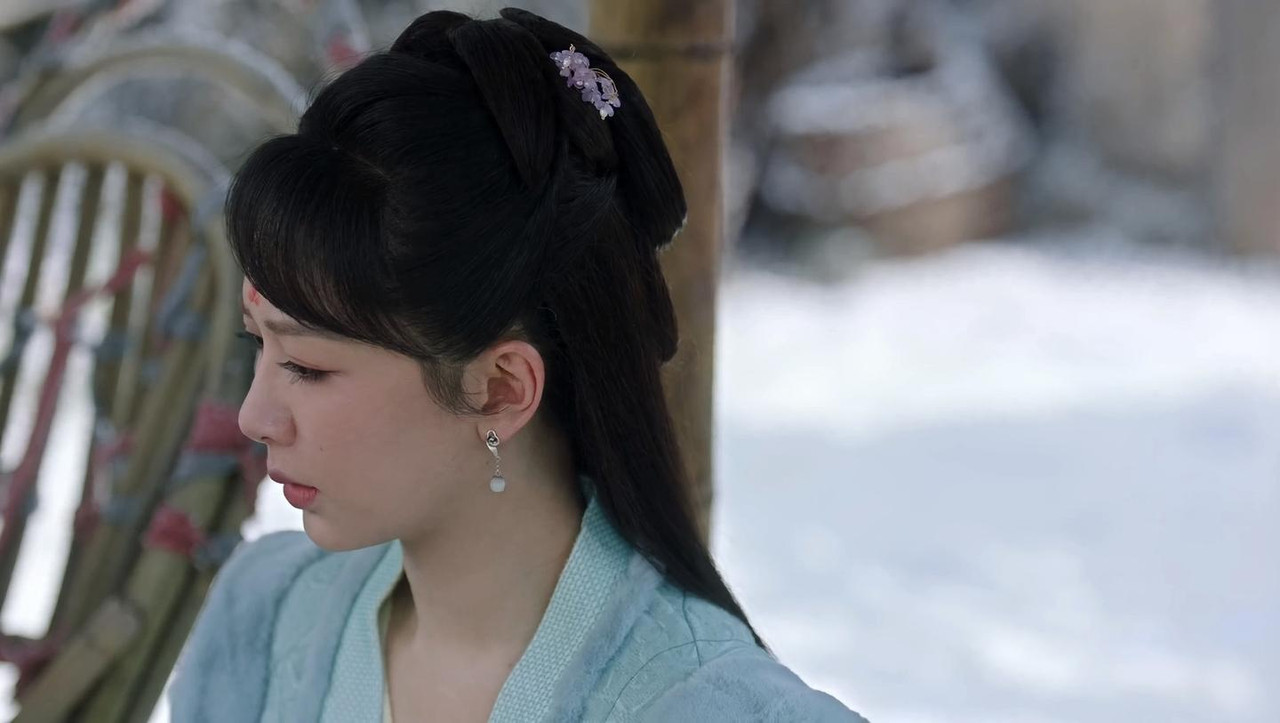
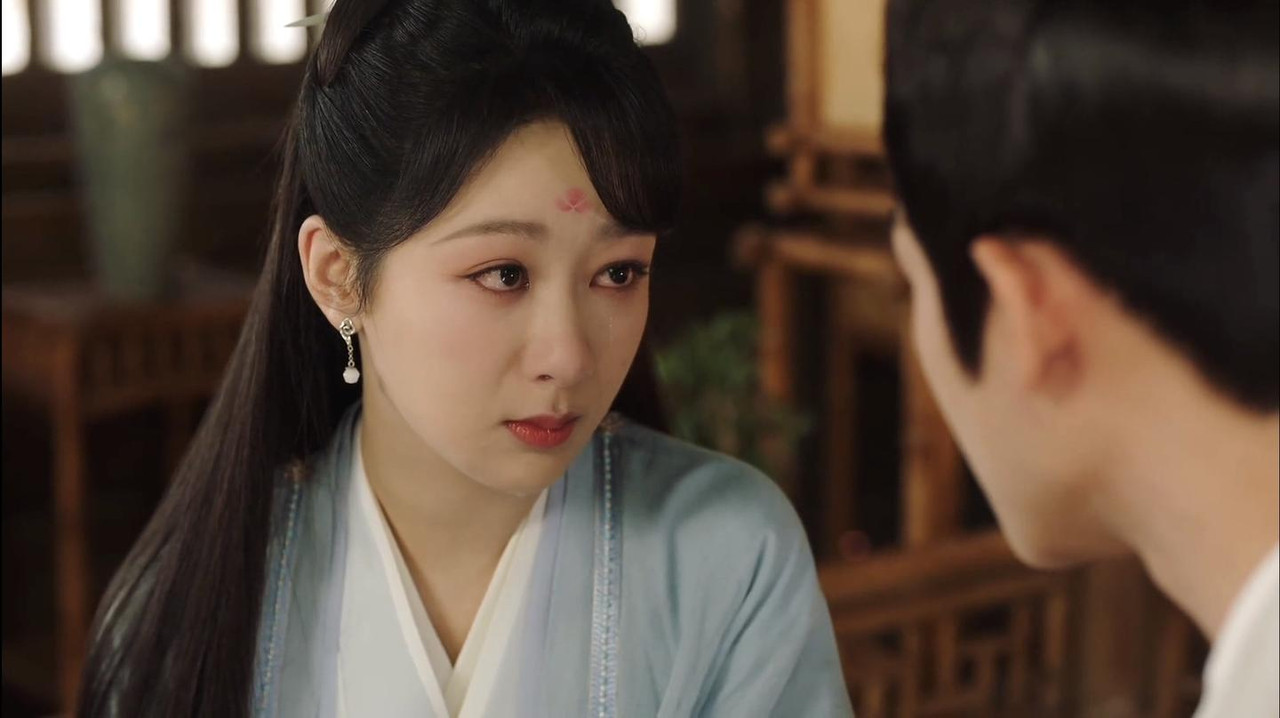
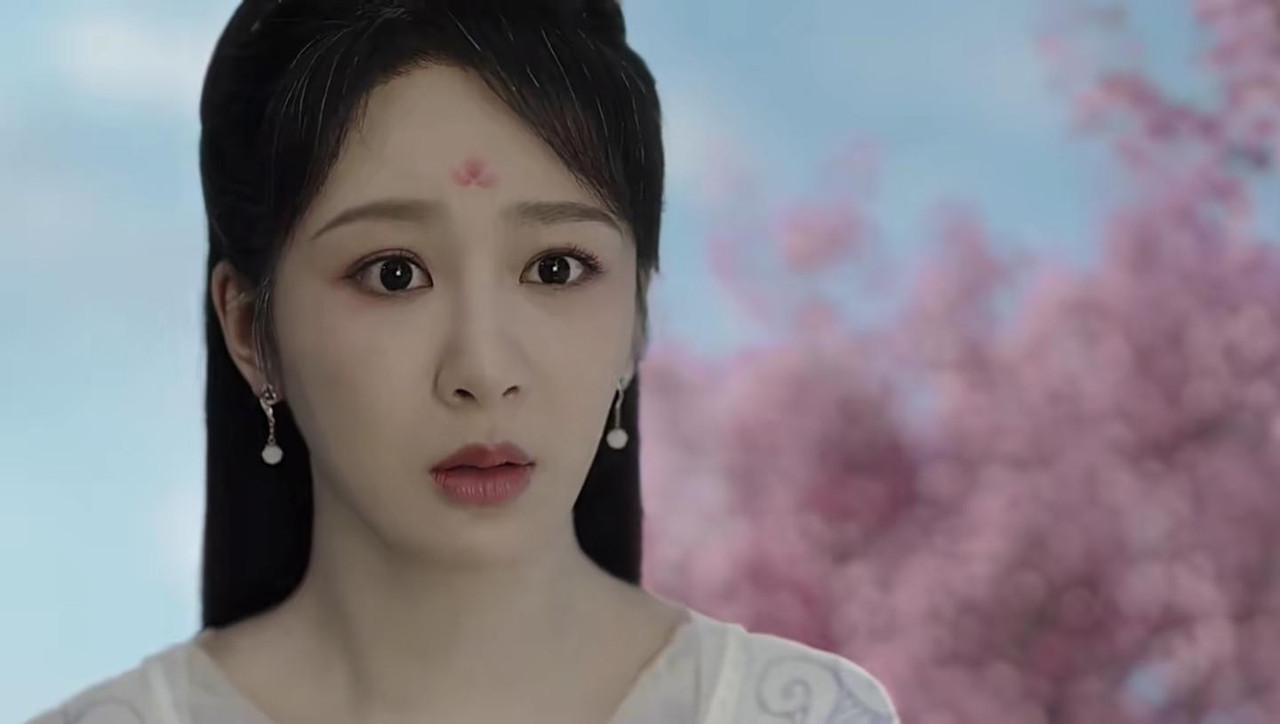
❶❶ Into the Dream
The drama version added a scene where Xiangliu enters Xiaoyao's dream in Qingshui Town.
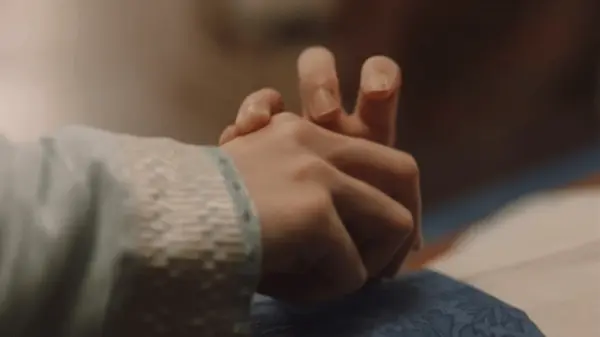
So far in the drama version, no other characters seem to be involved with dreams?
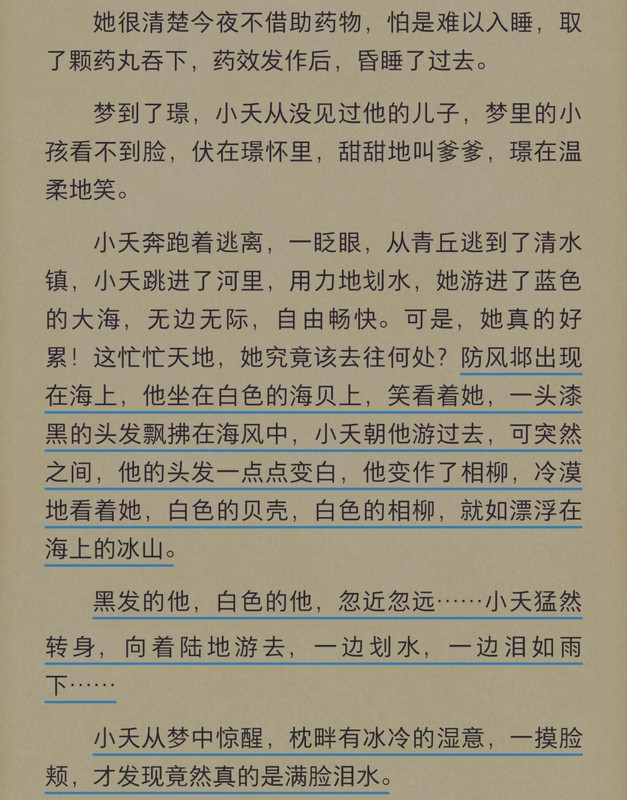
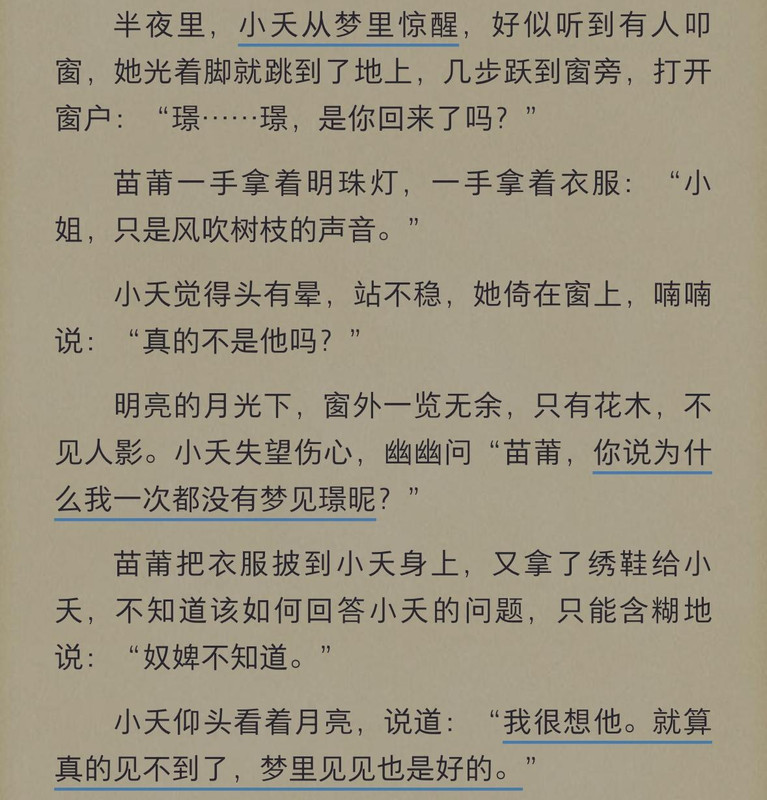
Tushan Jing was "dead," and she said she never dreamed of Jing even once—so who did she dream of?
How many times has she met him in her dreams? To the point she wonders if it was really just a dream?
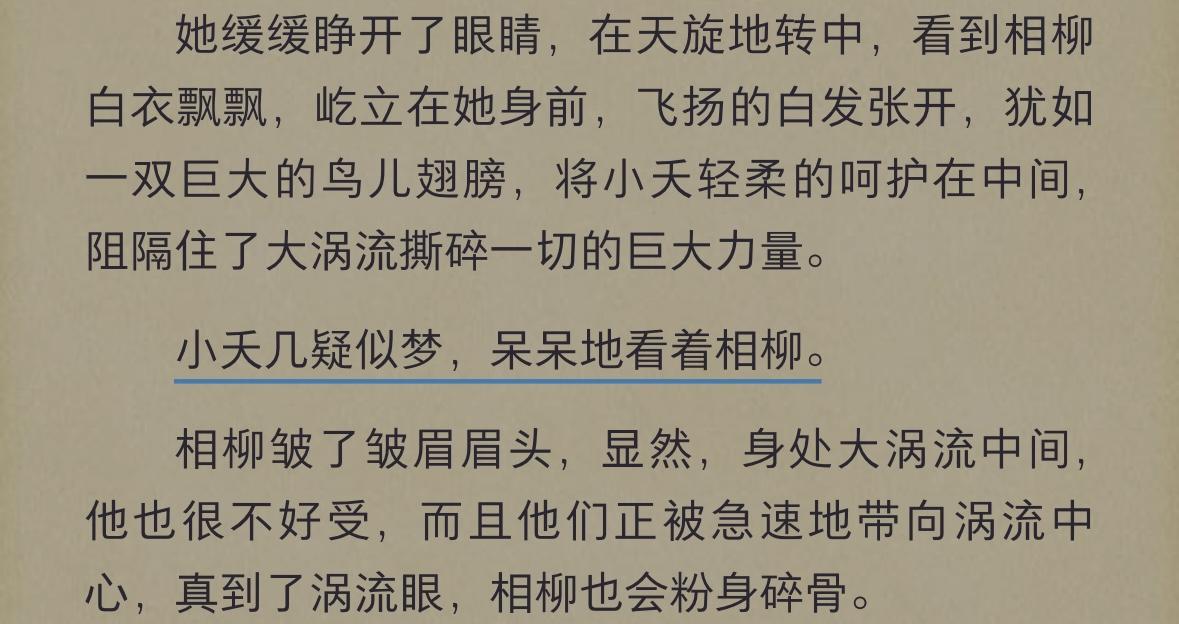 Meeting Xiangliu in the great whirlpool—she almost thought it was just a dream.
Meeting Xiangliu in the great whirlpool—she almost thought it was just a dream.
As shown in the drama version.
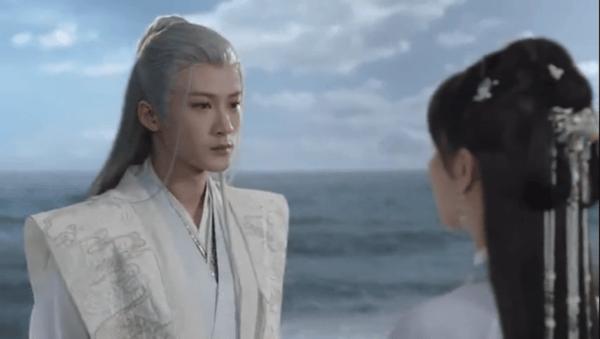
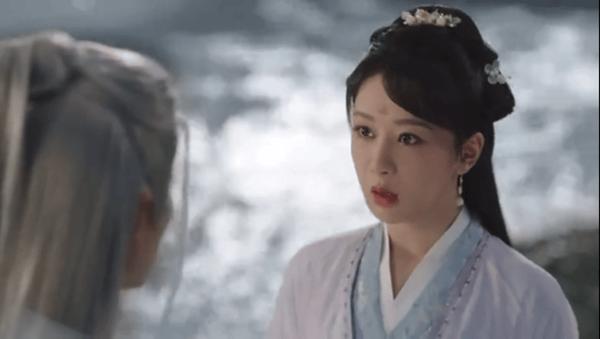 Almost felt like a dream.
Almost felt like a dream.
The drama version adds a scene where she dreams of Xiangliu (before he dies in battle).
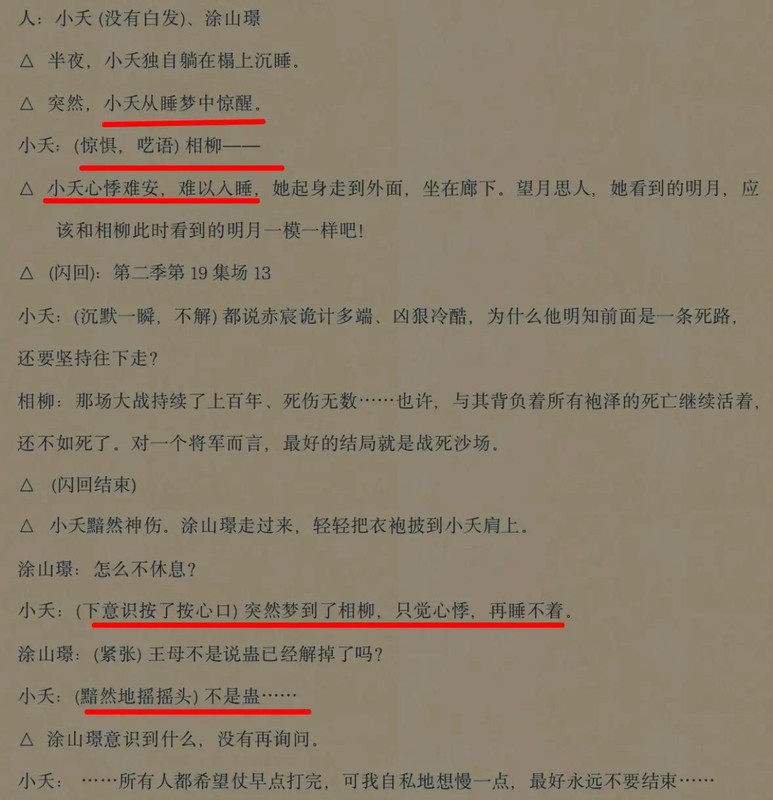
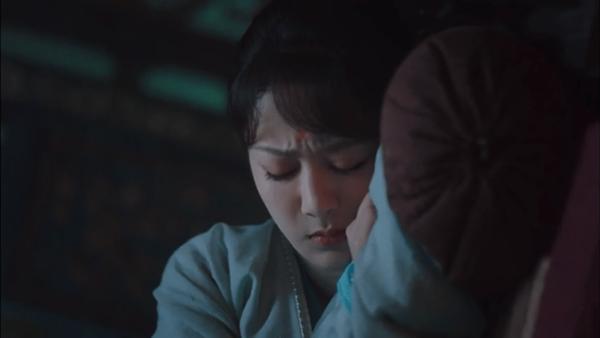
◐ Tushan Jing’s duck neck.
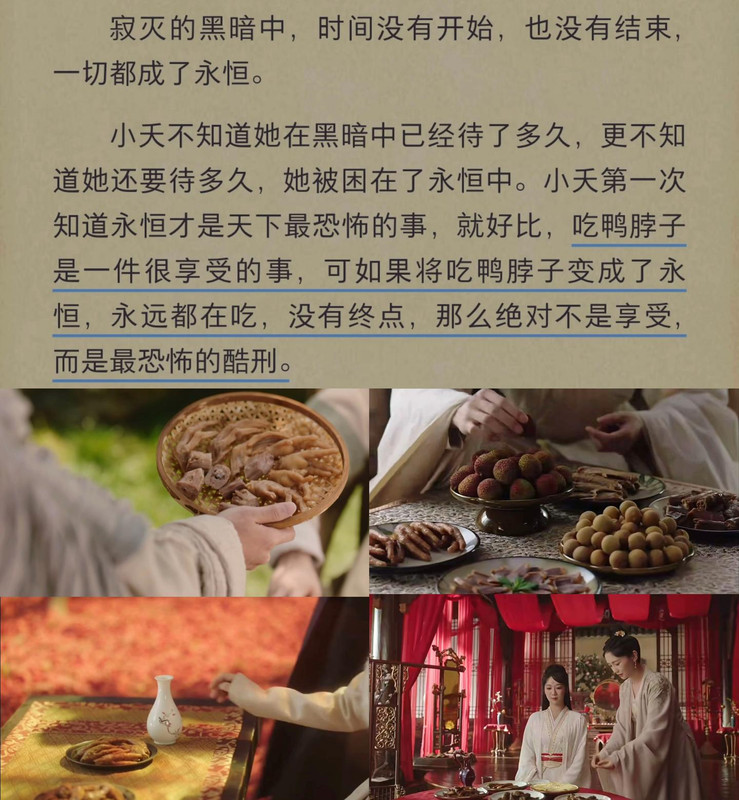
"Having to eat duck necks forever would be torture."
[It was the first time Xiaoyao realized that eternity is the most terrifying thing in the world. It’s like eating duck neck—something enjoyable at first. But if eating duck neck became eternal, if she had to eat it forever with no end, then it would no longer be a pleasure, but the most horrifying form of torture.]
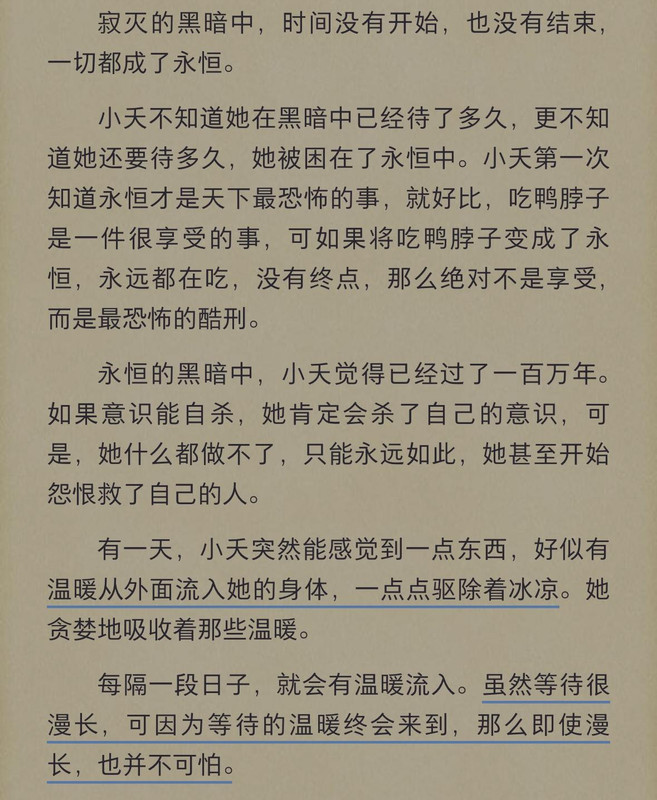
Only the warmth given by Xiangliu can make the waiting less terrifying.
[One day, Xiaoyao suddenly felt something— as if warmth was flowing into her body from the outside, gradually dispelling the cold. She absorbed that warmth greedily.
Every now and then, the warmth would return. Although the wait was long, because she knew the warmth she longed for would eventually come, the long wait no longer felt frightening.]
• A discussion between Xiaoyao and Xiangliu about “that man” (the image content is purely my imagination, please don’t take it seriously ❌)
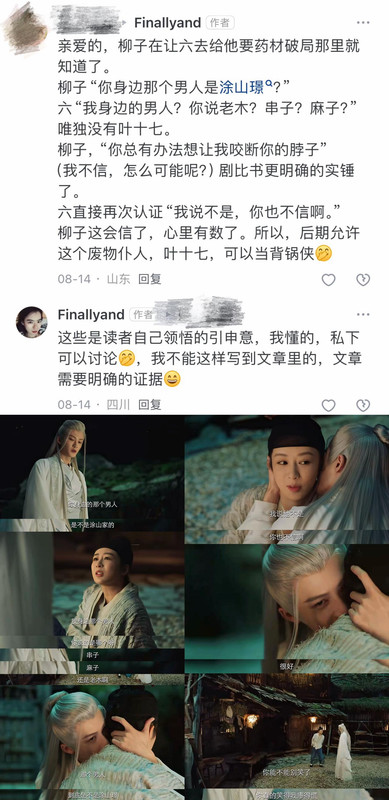
Just for fun, don’t take it seriously.
3️⃣ To destroy you mentally.
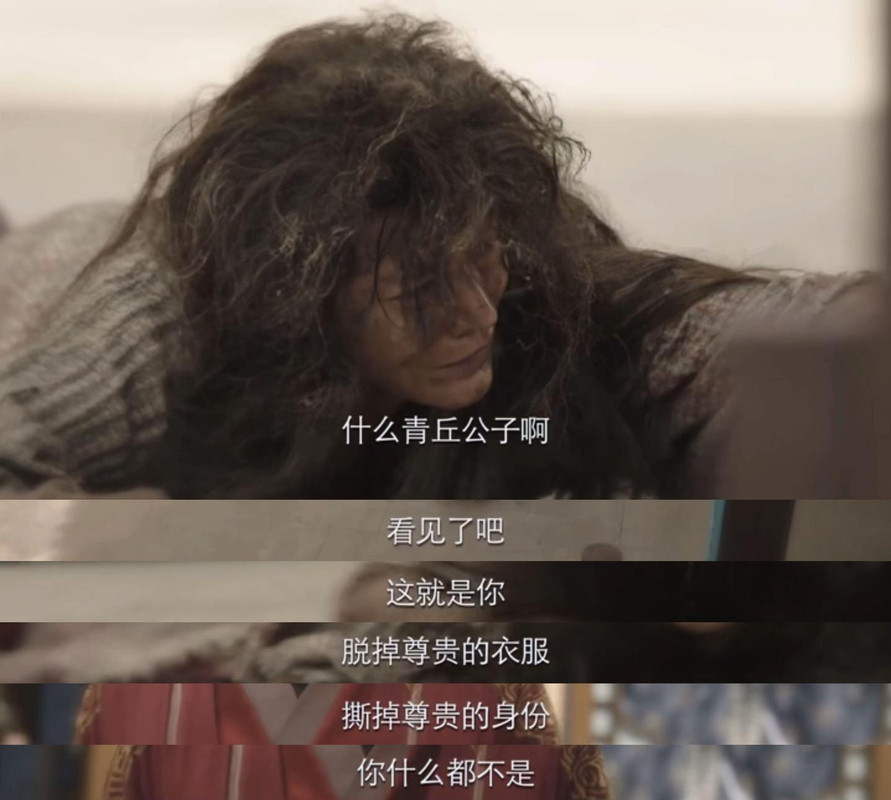
(Tushan Jing officially makes his appearance here, but it is also his end—because "Jing" is forever someone who is dead.)
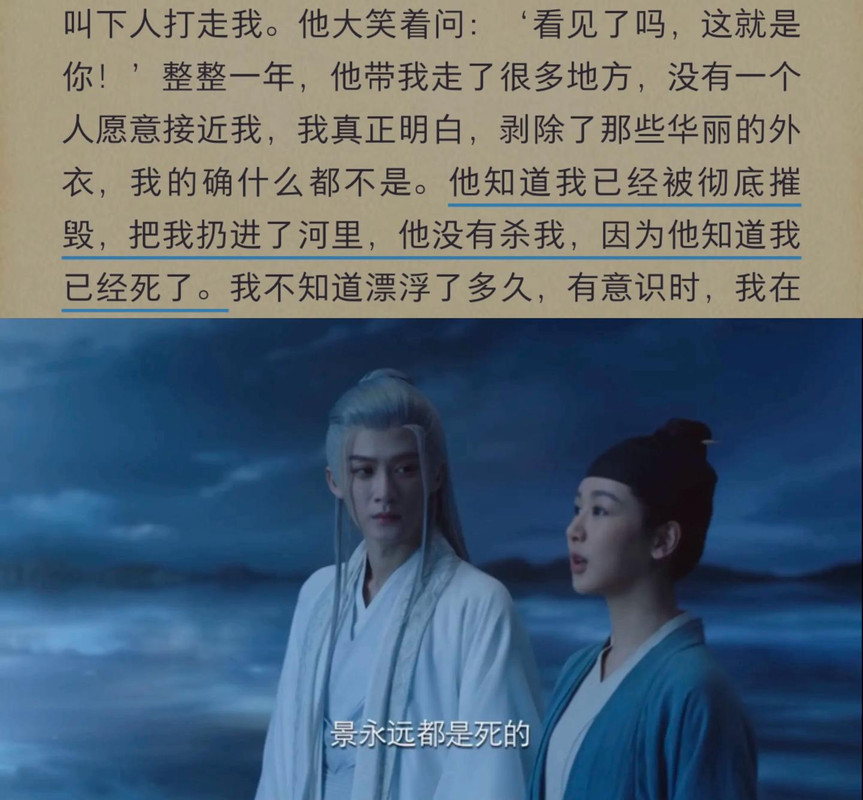
Double entendre.
[Explanation of the Double Meaning:
- Literal Meaning:
When Xiangliu says, “只要这世上还有这样的景色” (“As long as such scenery still exists in the world”), he is talking about the beauty of the world—the peaceful moment and the moon they are admiring together.
A typical response would echo the word “scenery” (景色).
- Hidden Meaning / Wordplay – "Jing" as a Symbol of Death:
Xiaoliu replies, “景永远是死的” (“Jing will always be lifeless”).
Here, she doesn’t respond with the meaning of “scenery” (景色), but instead refers to Tushan Jing—whose name, “璟”, is a homophone of “景.”
→ Her line subtly means: “Tushan Jing will always be dead "]
This is a deliberate pun using homophones. The author would never make such a basic linguistic mistake—the only possible explanation is that it was intentional.
Regarding the issue of Tushan Jing's gender, let’s examine a few instances of the “Chunqiu brushwork/Spring and Autumn Annals (subtle and implicit writing style): Tushan Jing — “virtuous and gentle” Calling a young master “virtuous and gentle” — is that really praise for a fox?
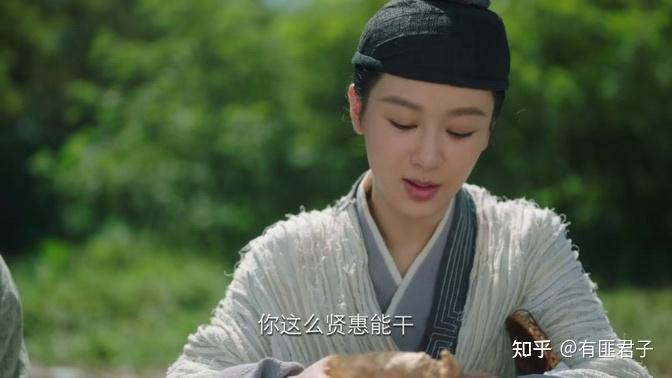
Tushan Jing — skilled in music, chess, calligraphy, and painting.
In ancient China, men typically studied rites, music, archery, charioteering, writing, and mathematics. The phrase "music, chess, calligraphy, and painting" has more commonly been used in modern times to describe the refined accomplishments of noble ladies.
So… is this really praise for the fox?
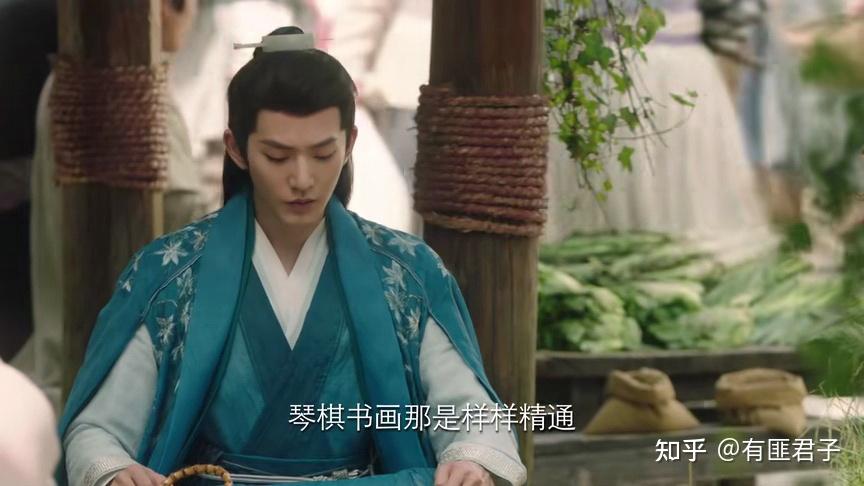
Clinging to you and refusing to let go—because your blushing made me feel like I was still a man.
Falling “in love” with a woman just because she made him feel like a man—does this really reflect the fox’s deep affection?
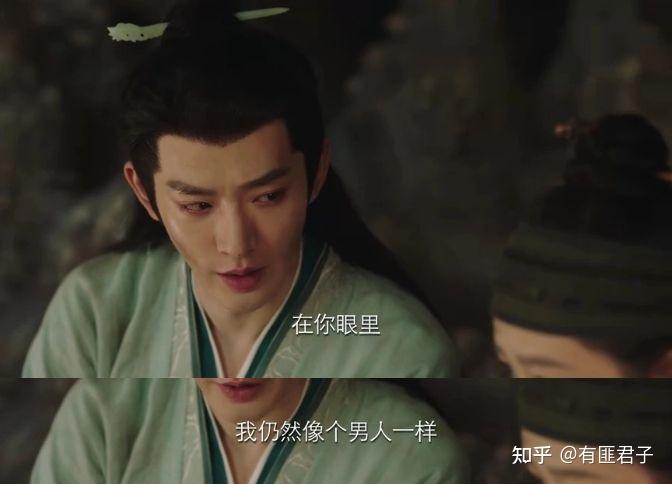
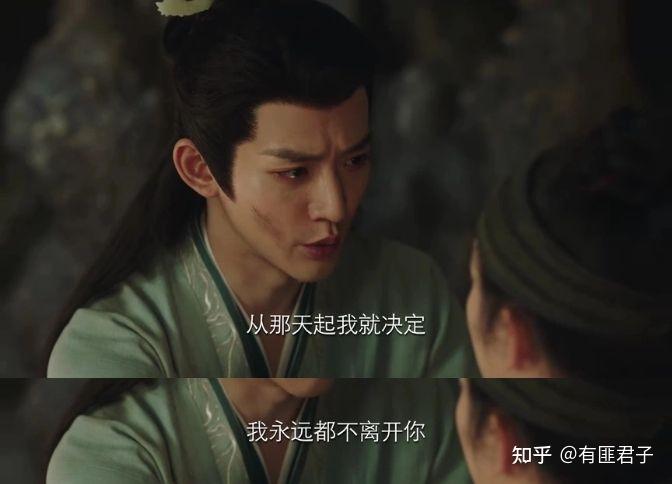
A set of comparisons — “I'm here.”
Is this... highlighting the fox’s weakness?
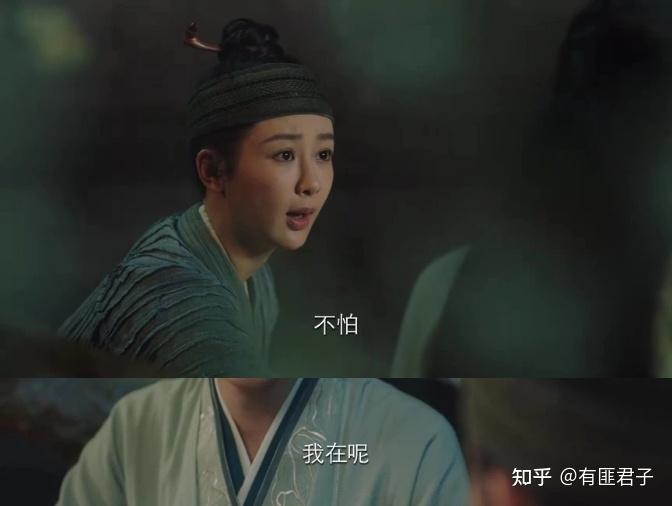
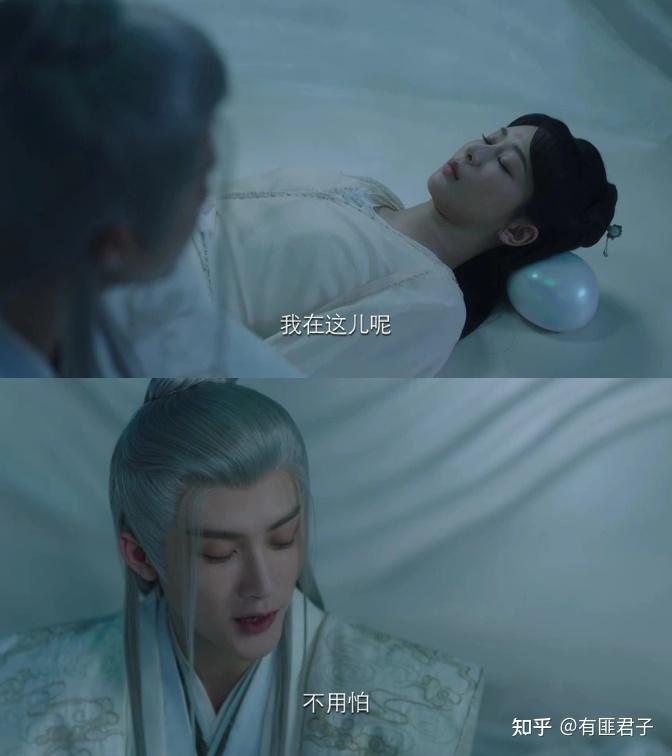
There’s a saying: “Birds of a feather flock together.” Likewise, the people we choose as friends reflect who we are. So, what kind of friends shape what kind of person? Why did Tong Hua choose to make Tu Shanjing and Li Rongchang close companions in the story?
In other words, if Tong Hua really intended for Li Rongchang to be Tu Shanjing’s friend, why didn’t she portray Li Rongchang in a better light? The answer is simple: it was intentional. The author had a purpose.
Tu Shanjing is said to be kind-hearted. But Li Rongchang runs an underground casino—a place where the lives and dignity of slaves are gambled away for profit. Tu Shanjing helps Li Rongchang—has he ever thought about the life and death of those slaves? In the past, he also did business with the Shennong rebels—did he ever consider the suffering of the Xuanyuan people?
That’s why I say: everything comes at a cost. If you want to help your friend, you may have to sacrifice your morals. If you want to manage the Tushan business well, you may have to sacrifice your kindness. So why is it that he couldn’t sacrifice his kindness for Xiaoyao?
It’s not that he couldn’t—but because he knew Xiaoyao was soft-hearted and always tolerant toward him. If he truly couldn’t compromise his kindness, then why did he let Xiangliu help him snatch a bride? He clearly knew how to protect Fangfeng Yiying’s reputation—so why didn’t Xiaoyao’s reputation matter?
Isn’t Xiaoyao’s reputation just as important?
In the end, for someone like Tu Shanjing, the better you treat him, the greedier he becomes.
Tong Hua has always bullied Tushan Jing — always praising him on the surface, while secretly mocking, cursing, teasing, and insulting him without the slightest mercy.
She scolds him so much that even I can’t help but feel sorry for the character.
Recent Discussions
-
Revenged Love OST 逆愛3 minutes ago - NotYourOppa
-
Episodes plot (youku)46 minutes ago - Period_addict
-
BL Drama Lovers Club50 minutes ago - RXinw
-
Role Reversal (RR) Drama Lovers Club2 hours ago - Arclei
-
GL Drama Lovers Club3 hours ago - dora
-
NO MAN EVER LOVE ME3 hours ago - AlfatogodeQFBere
Hottest Discussions
-
NO MAN EVER LOVE ME3 hours ago
-
***Count to 100,000***9 hours ago
-
10 dramas/movies with ____? #48 hours ago
-
♥️Counting game♥️5 hours ago
-
Like, Dislike, Ehh, or No opinion1 hour ago

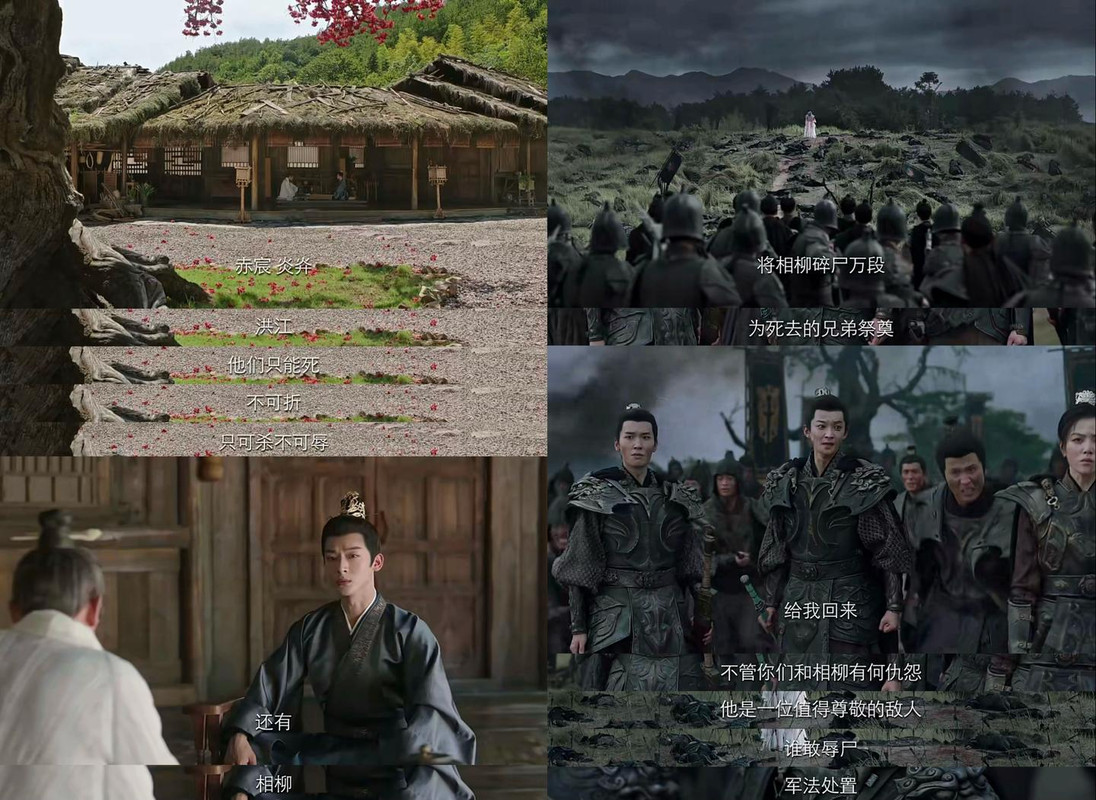
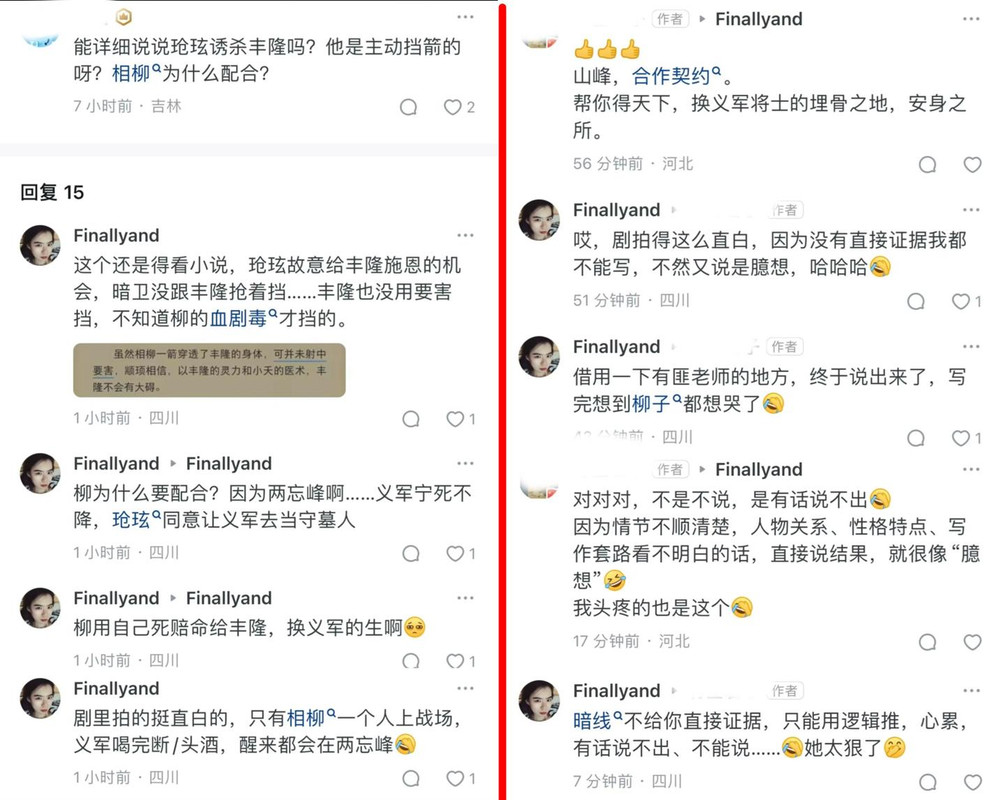
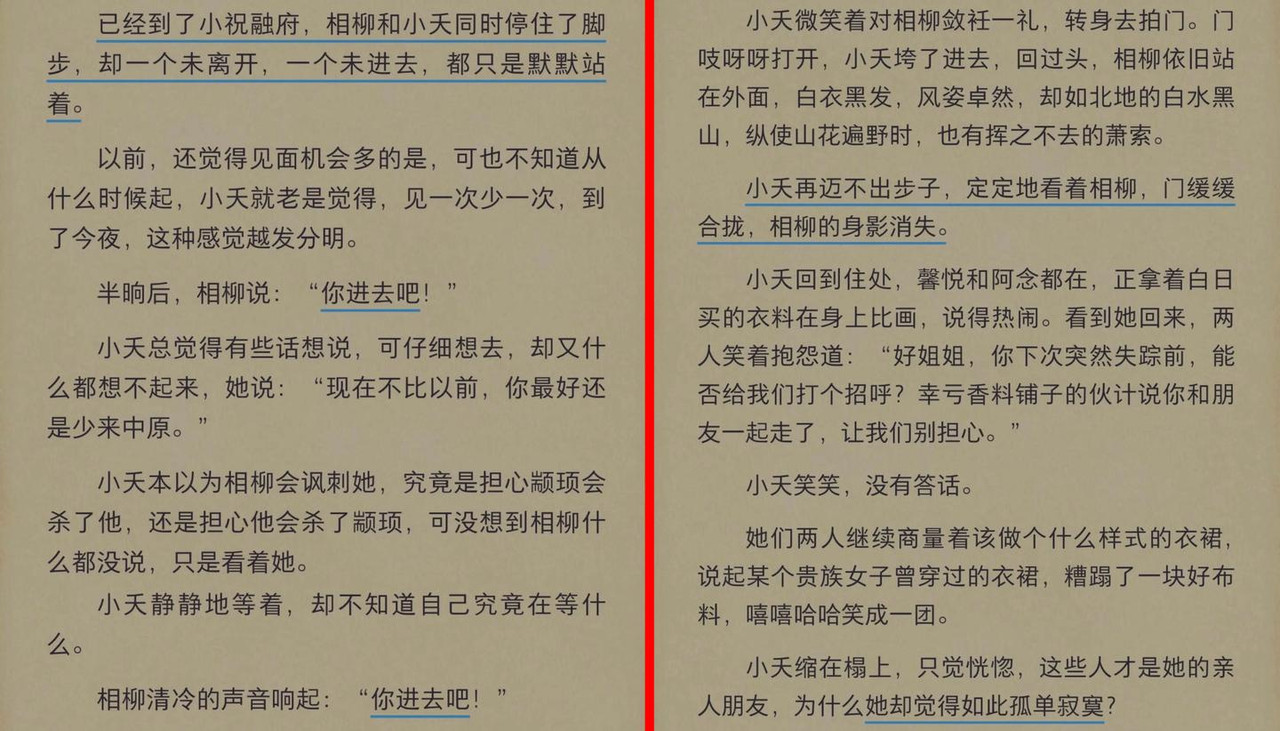 Gazing at each other through the door.
Gazing at each other through the door.
